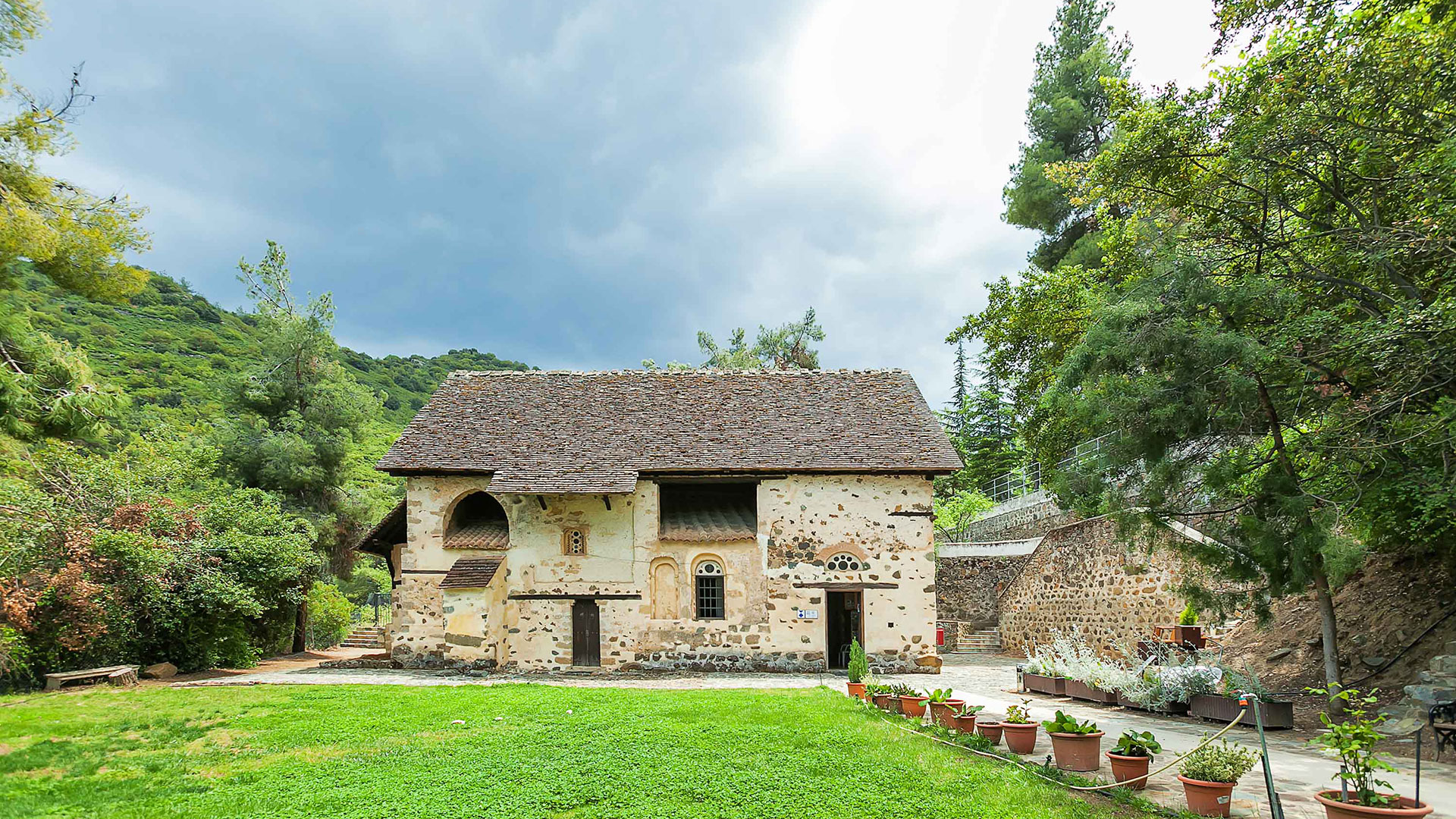
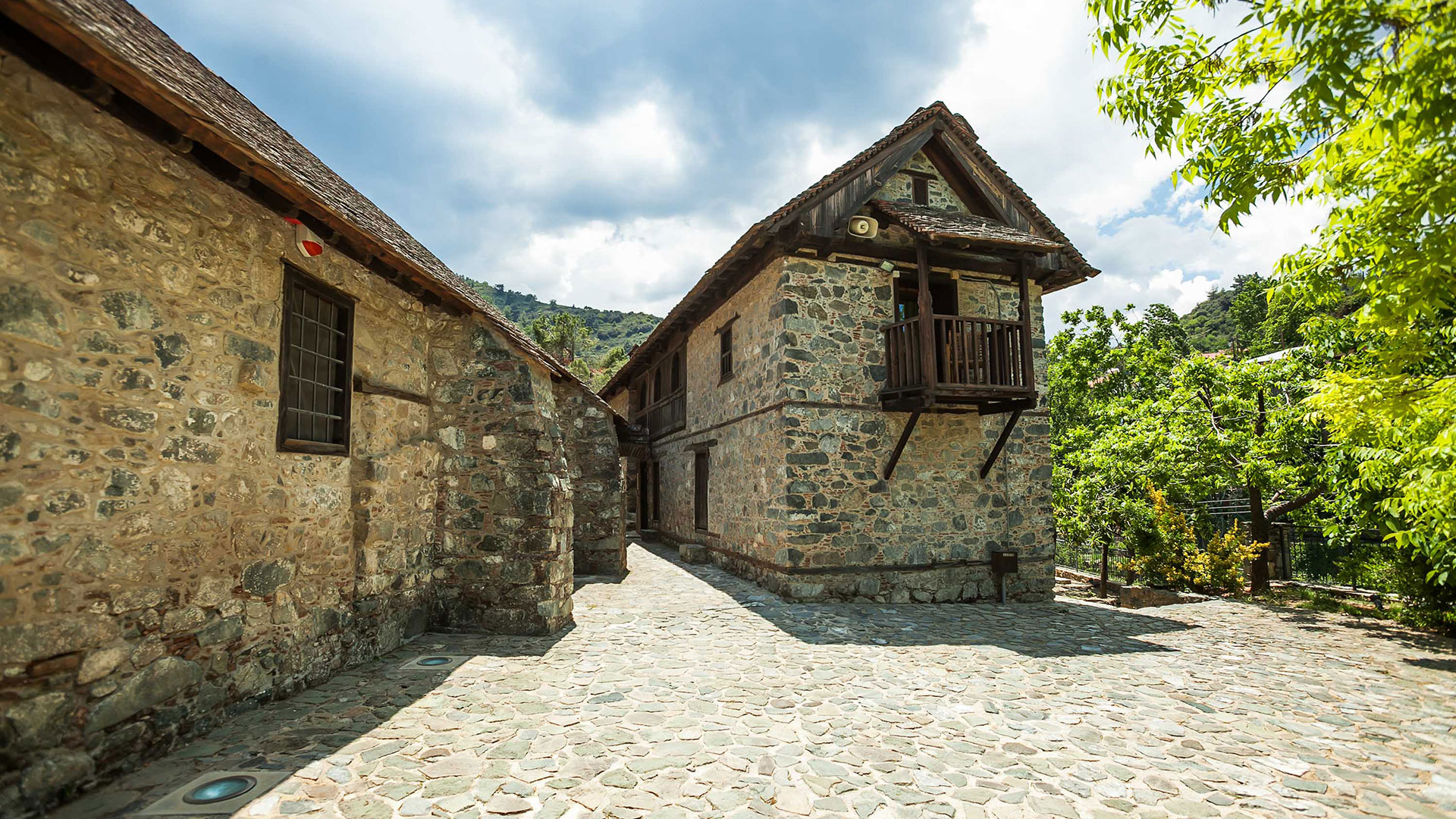
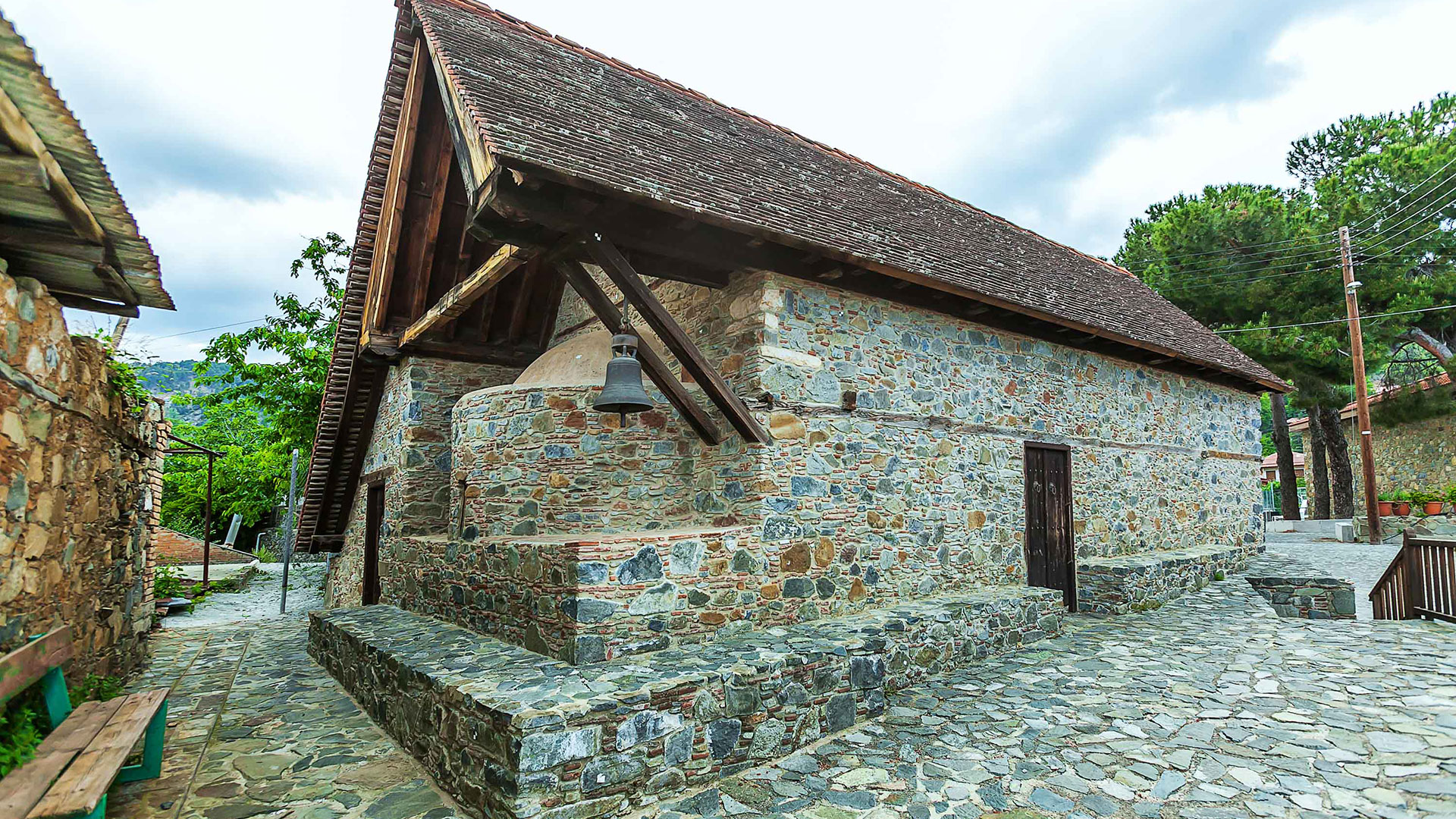
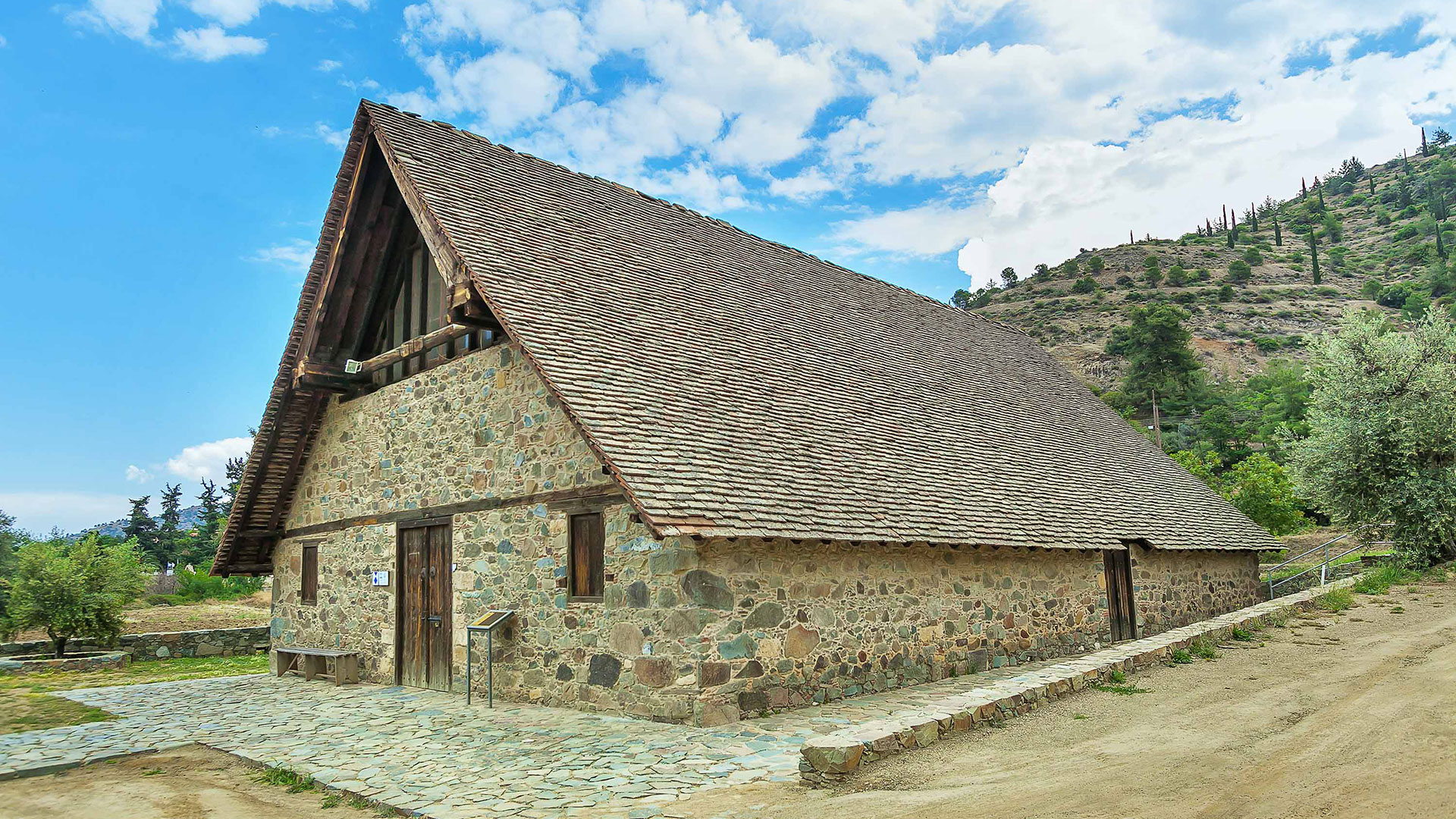
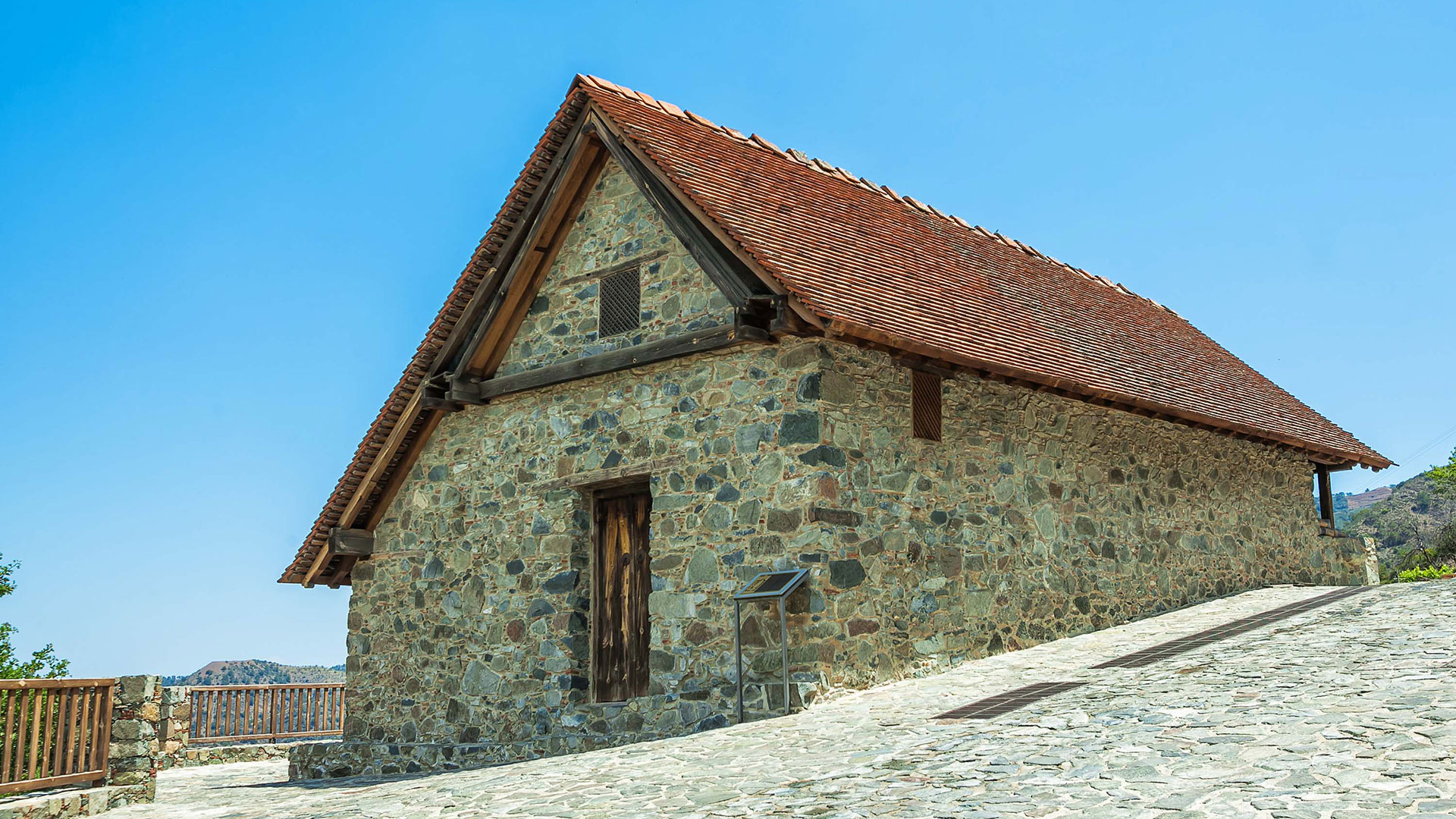
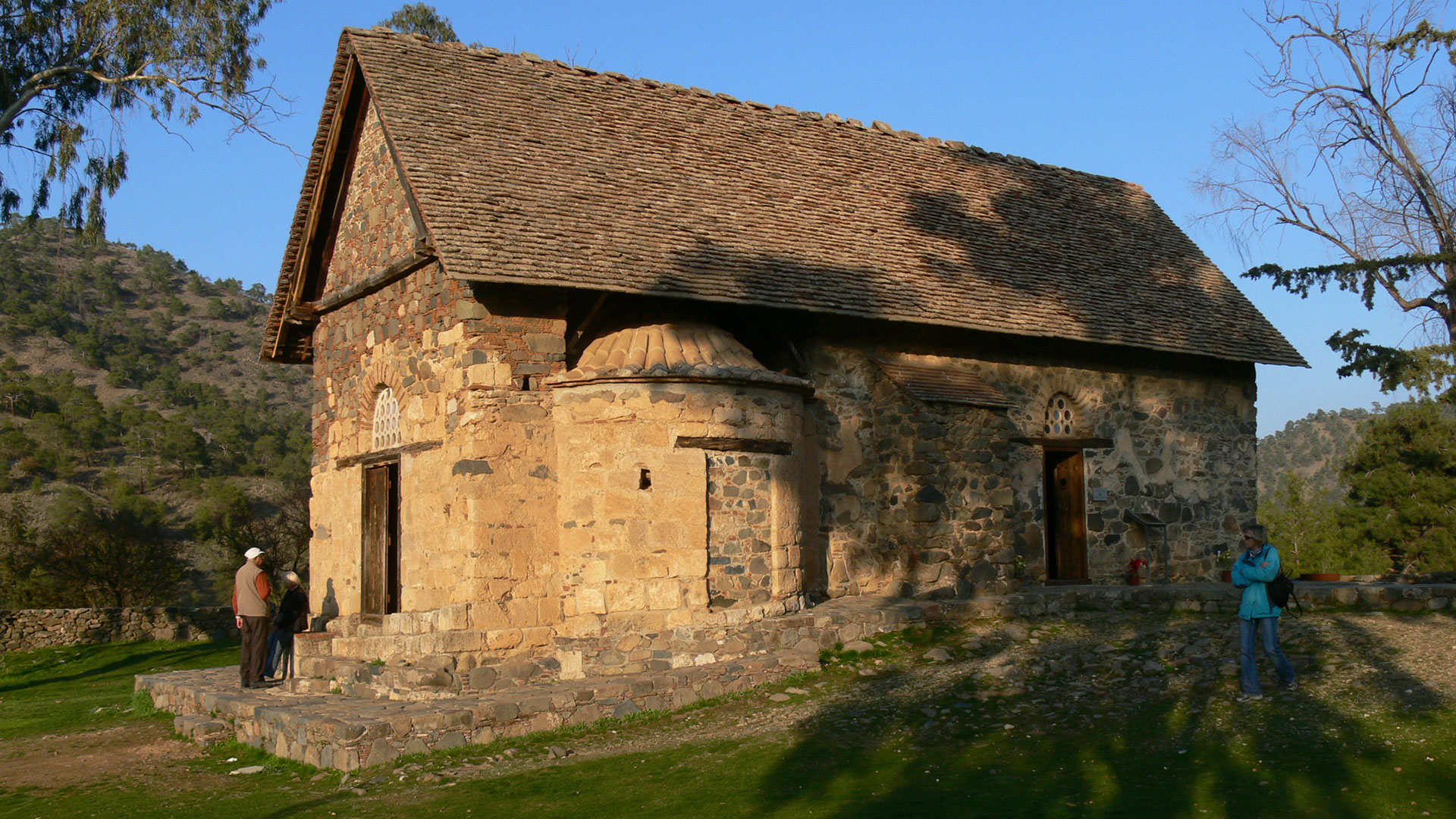
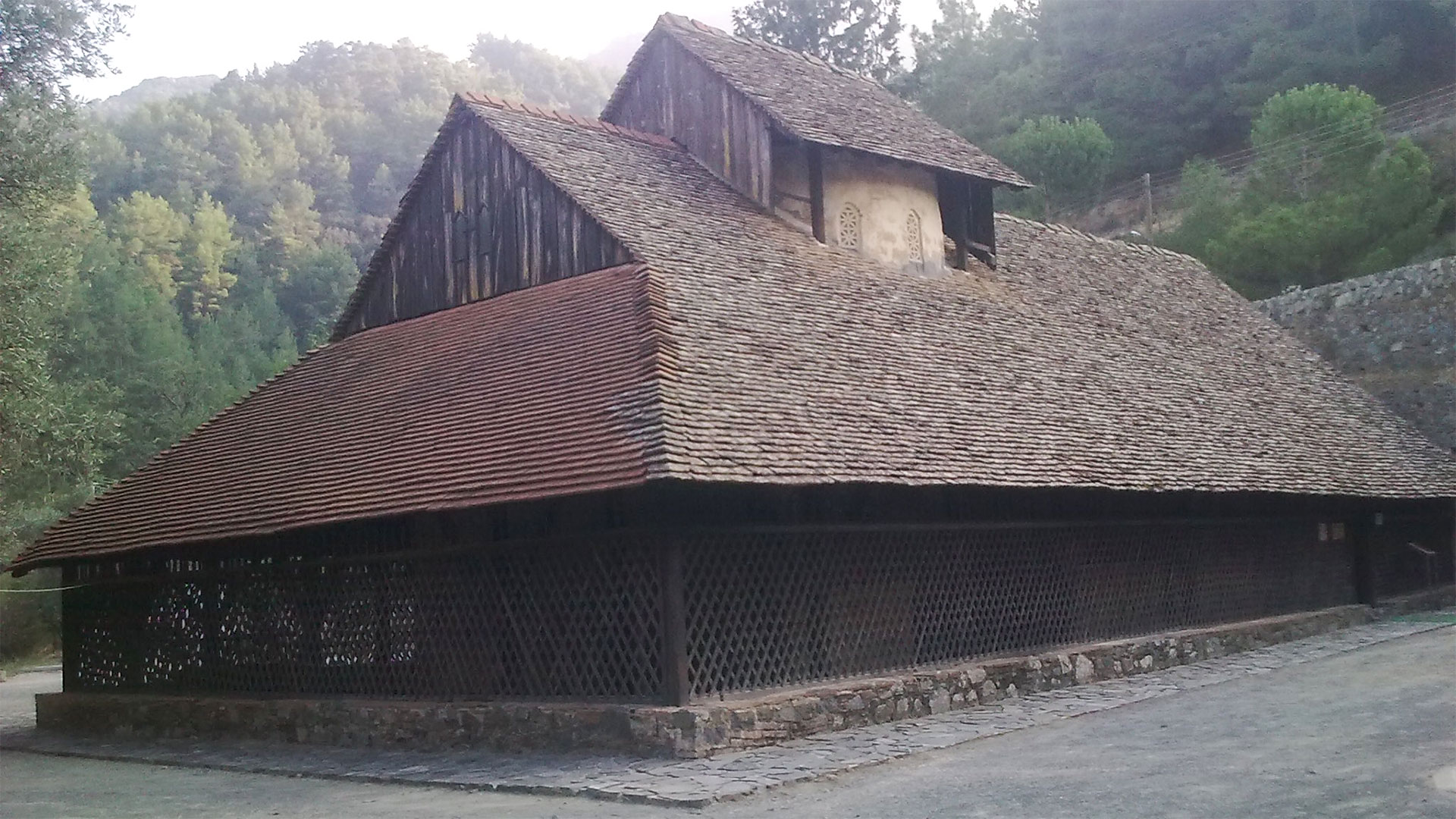
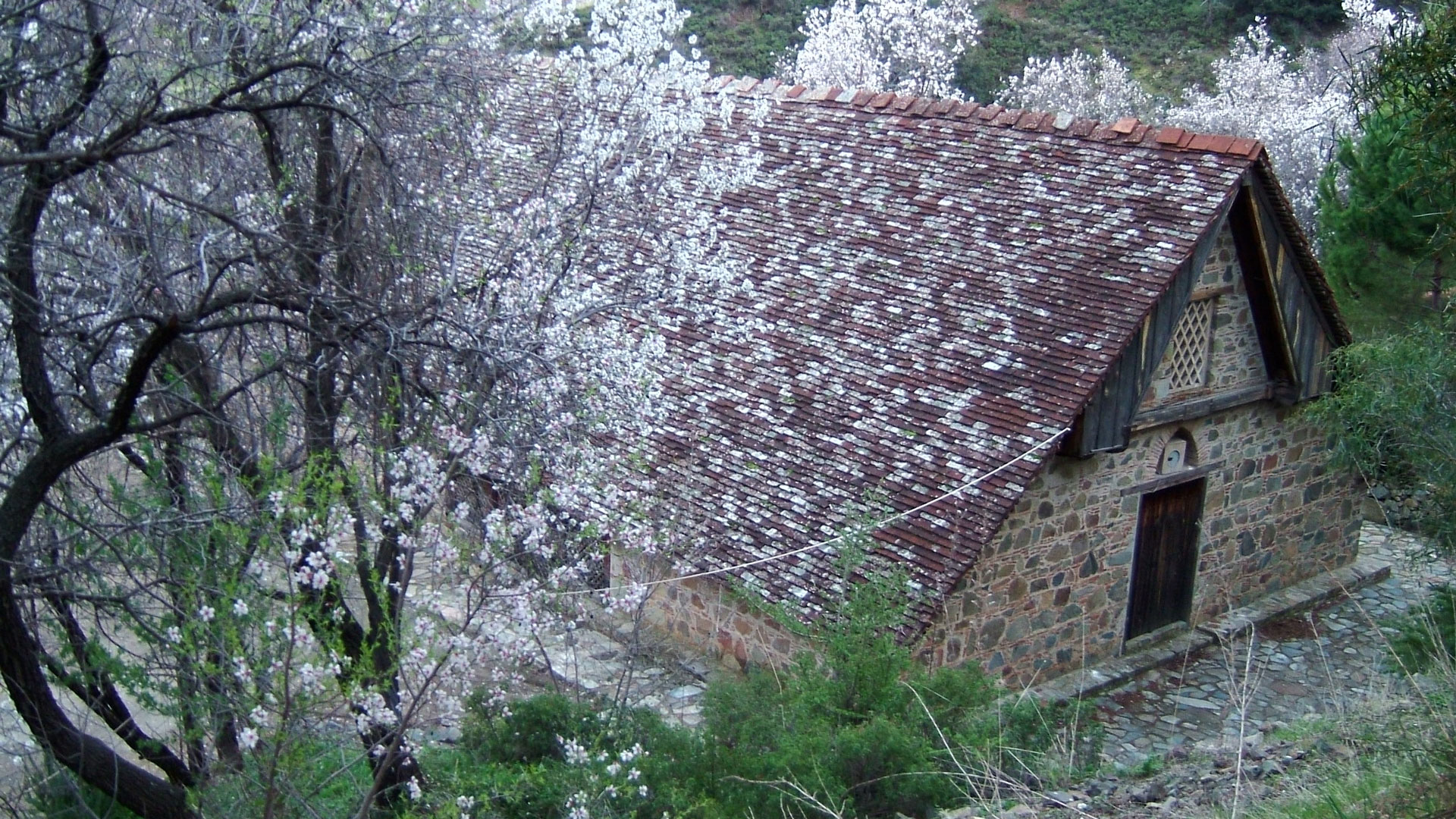
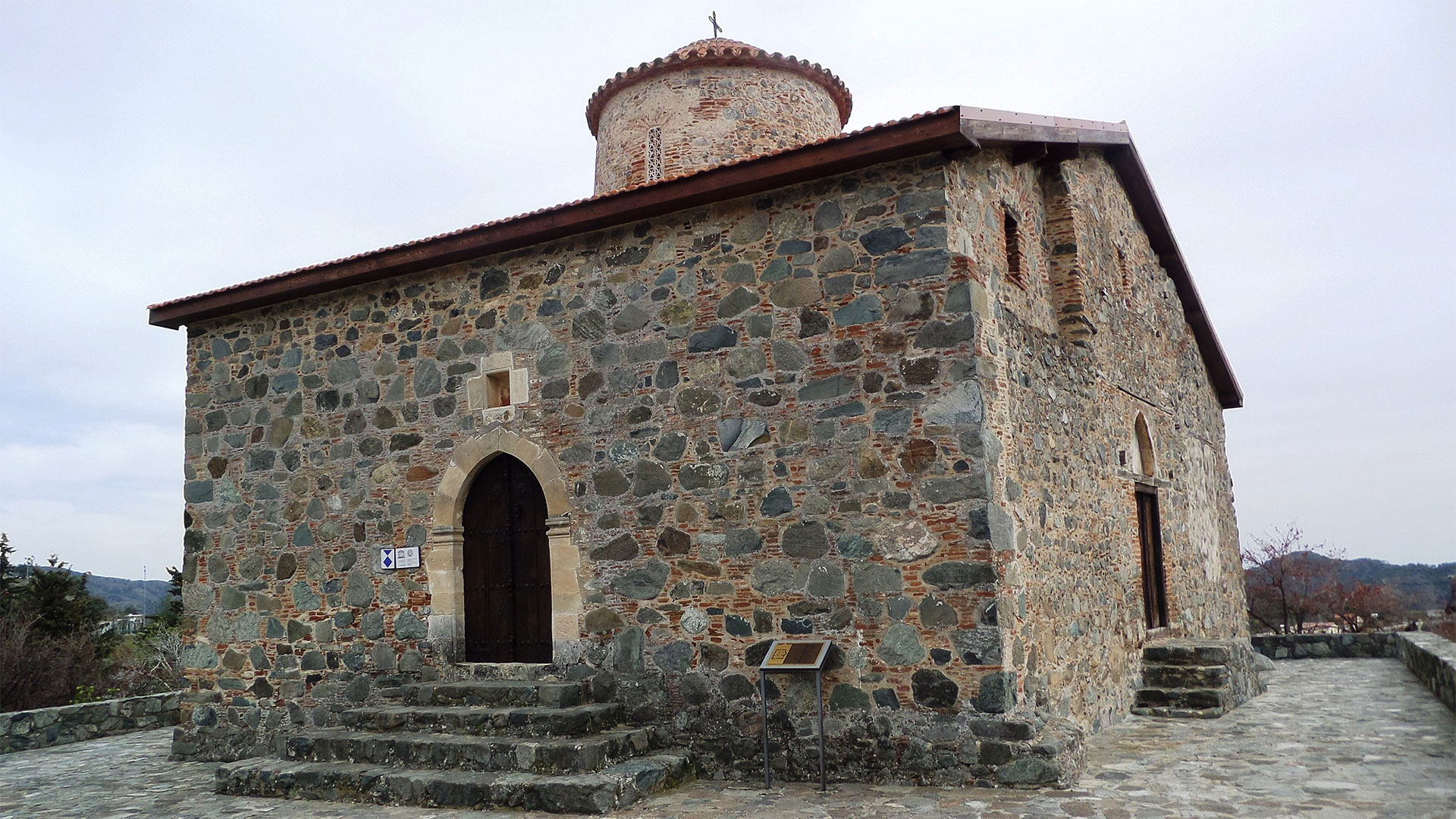
Churchies of Unesco
In the mountains of the Troodos Mountains, in the central part of Cyprus, are some of the most important monuments in the history of Byzantine painting. These are frescoed churches that preserve to this day excellent samples of the various currents of Byzantine and post-Byzantine monumental painting, from the 11th to the 19th century.
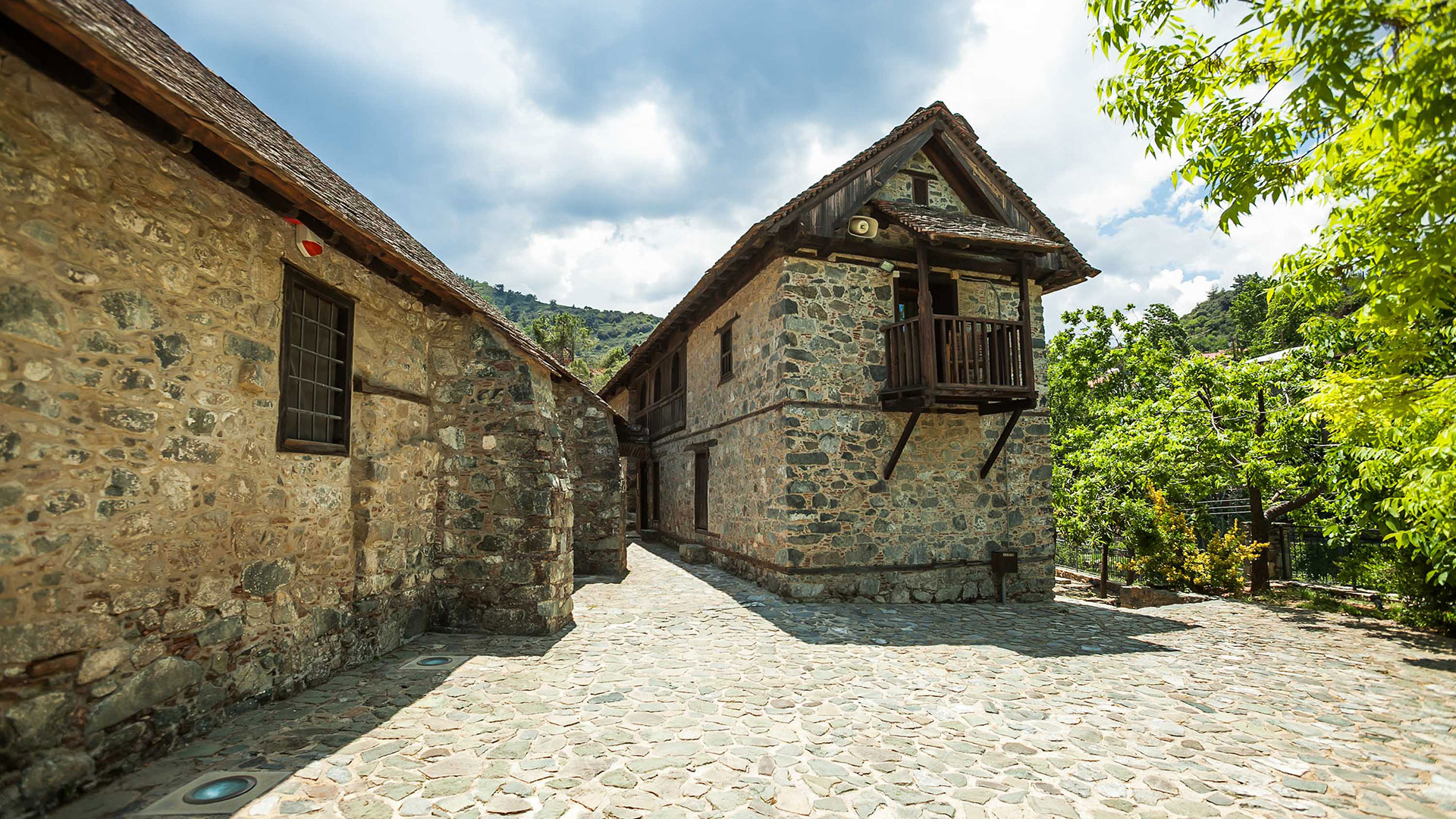
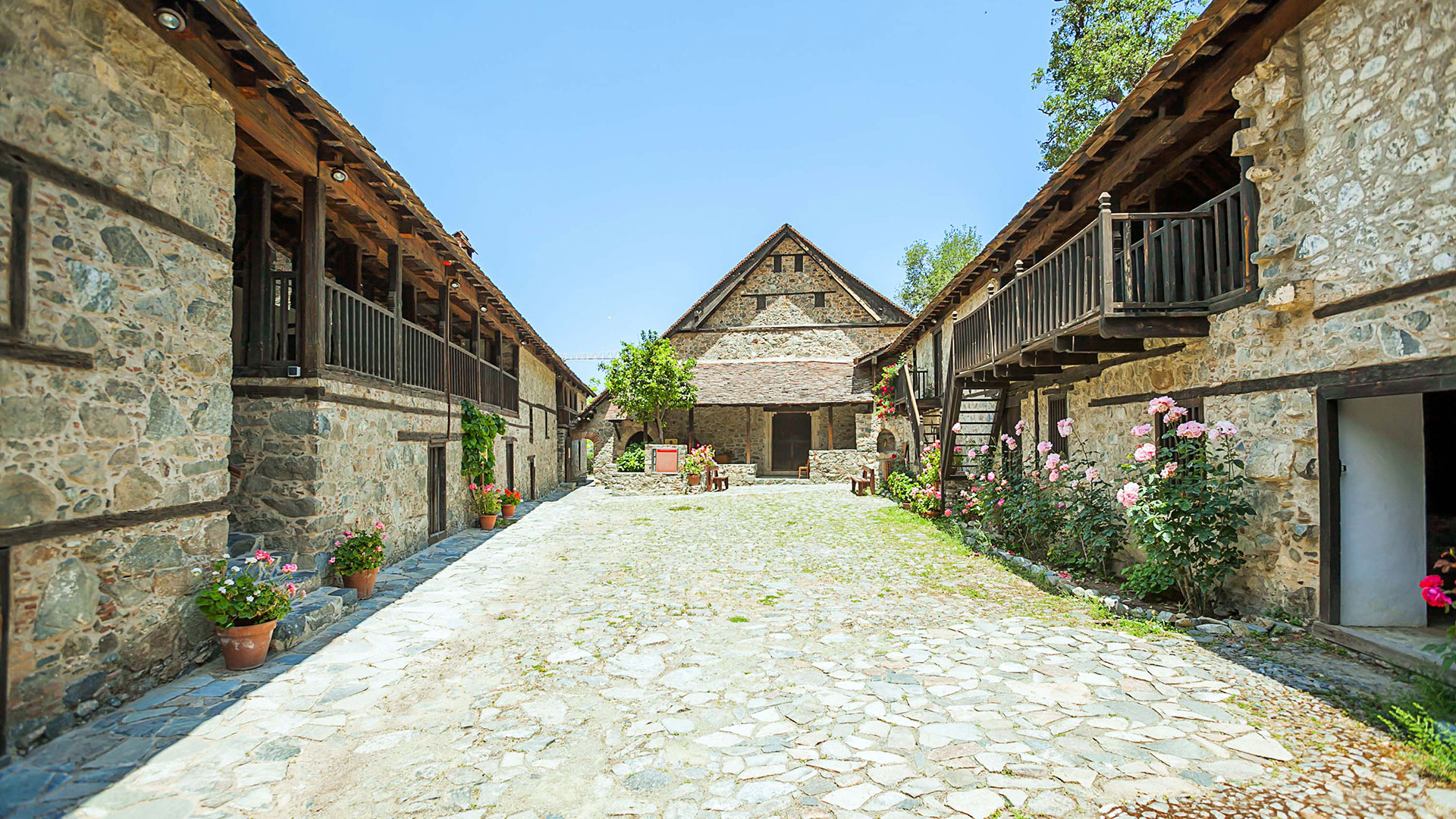
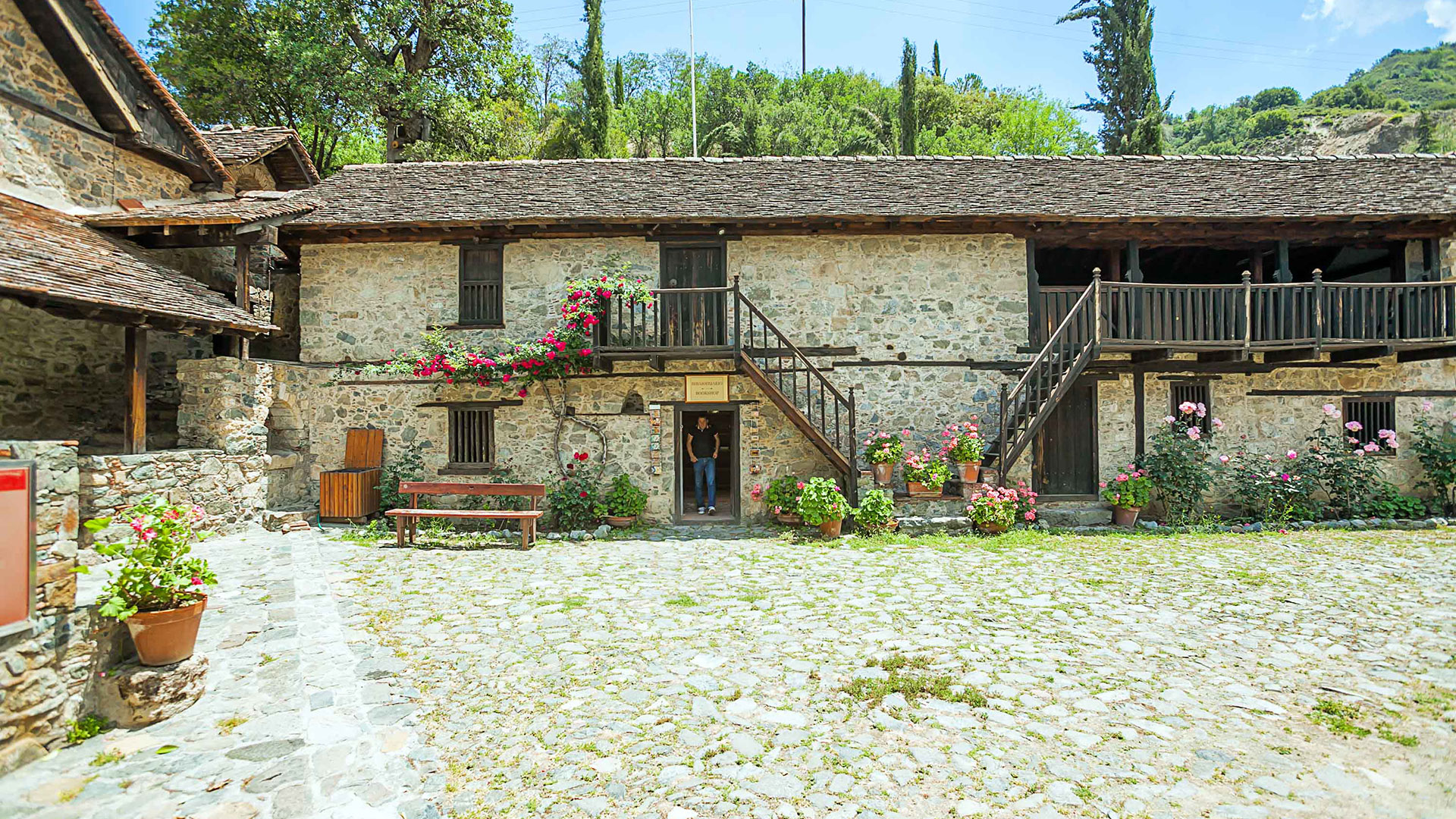
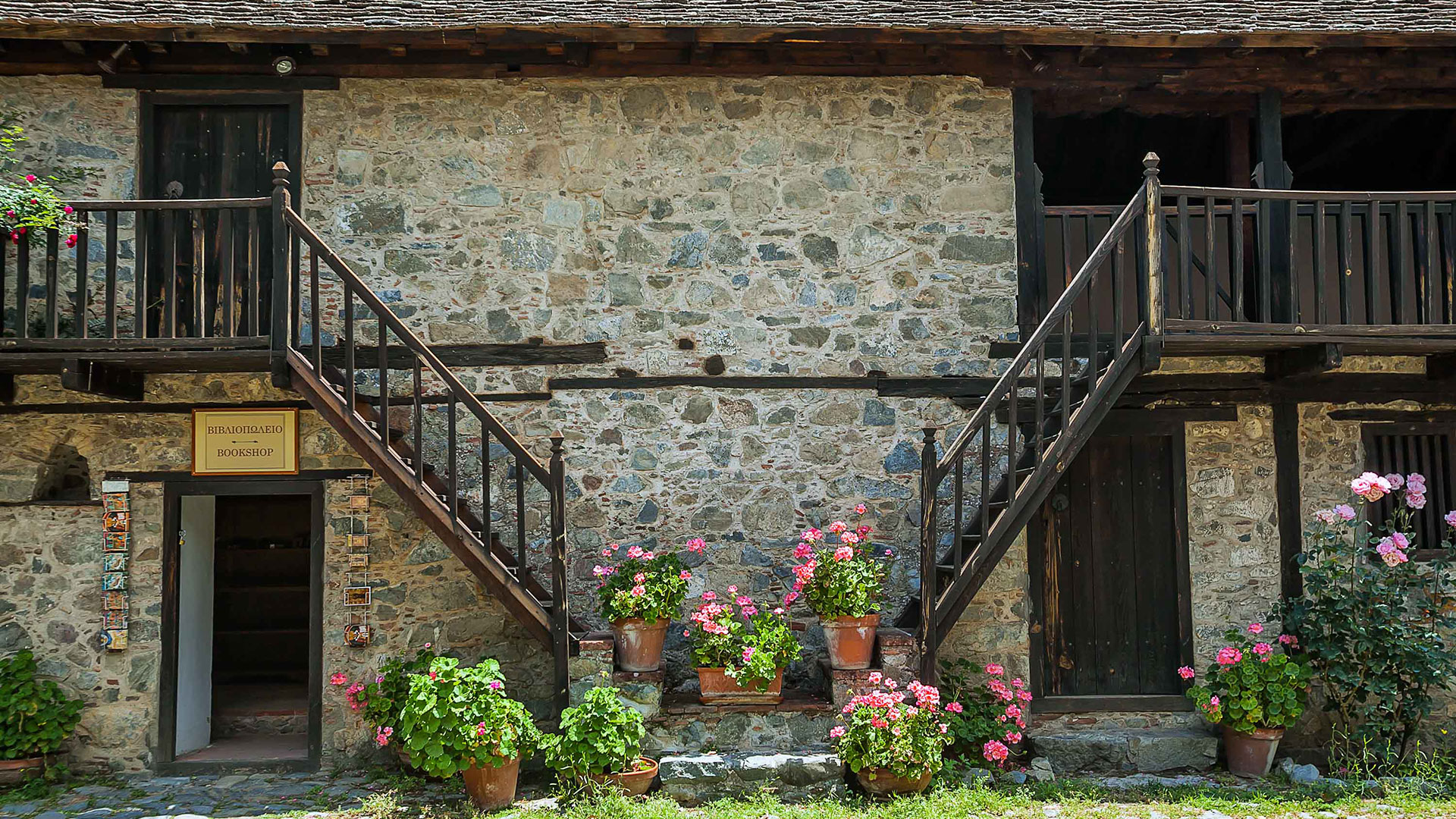
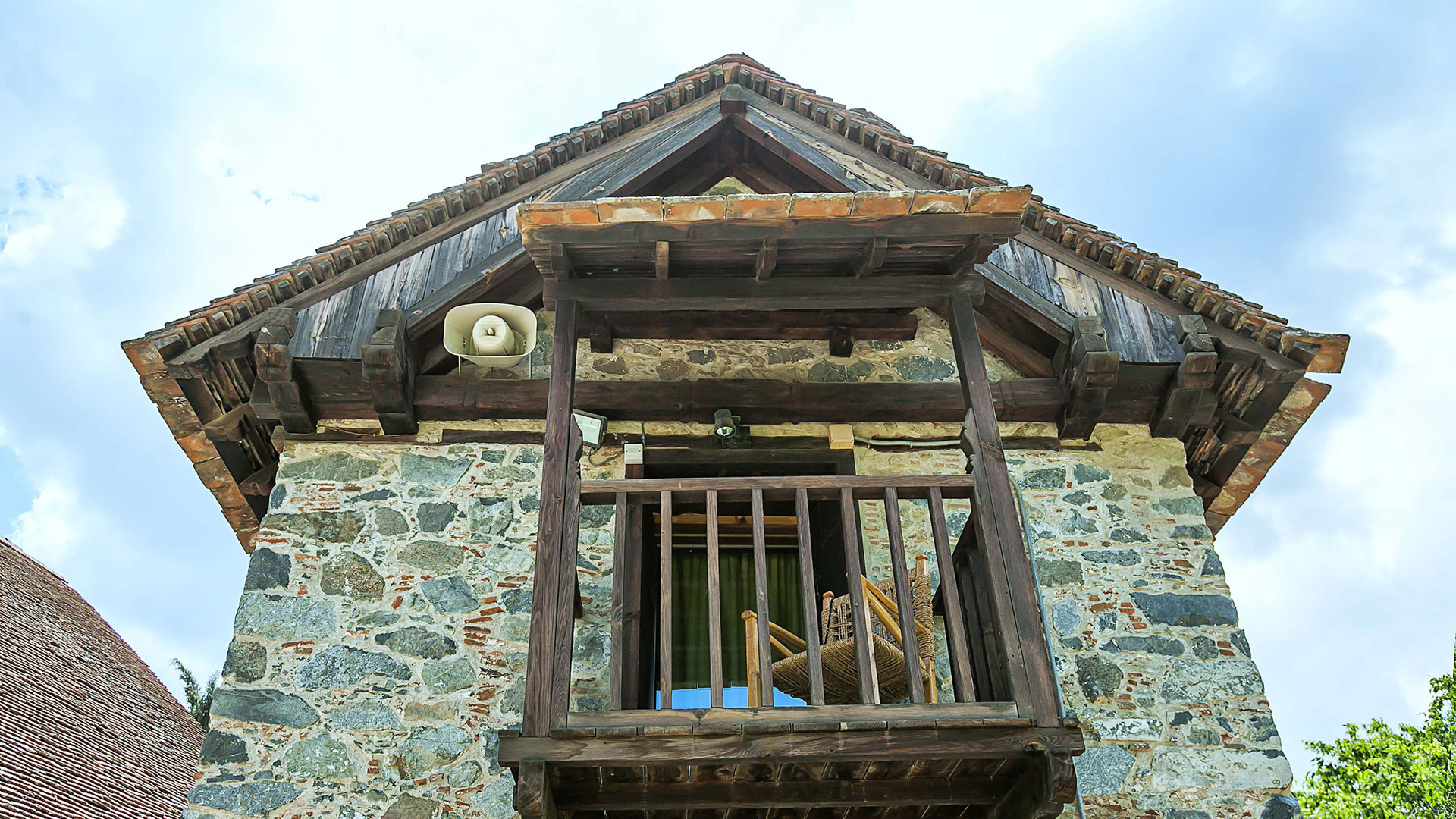
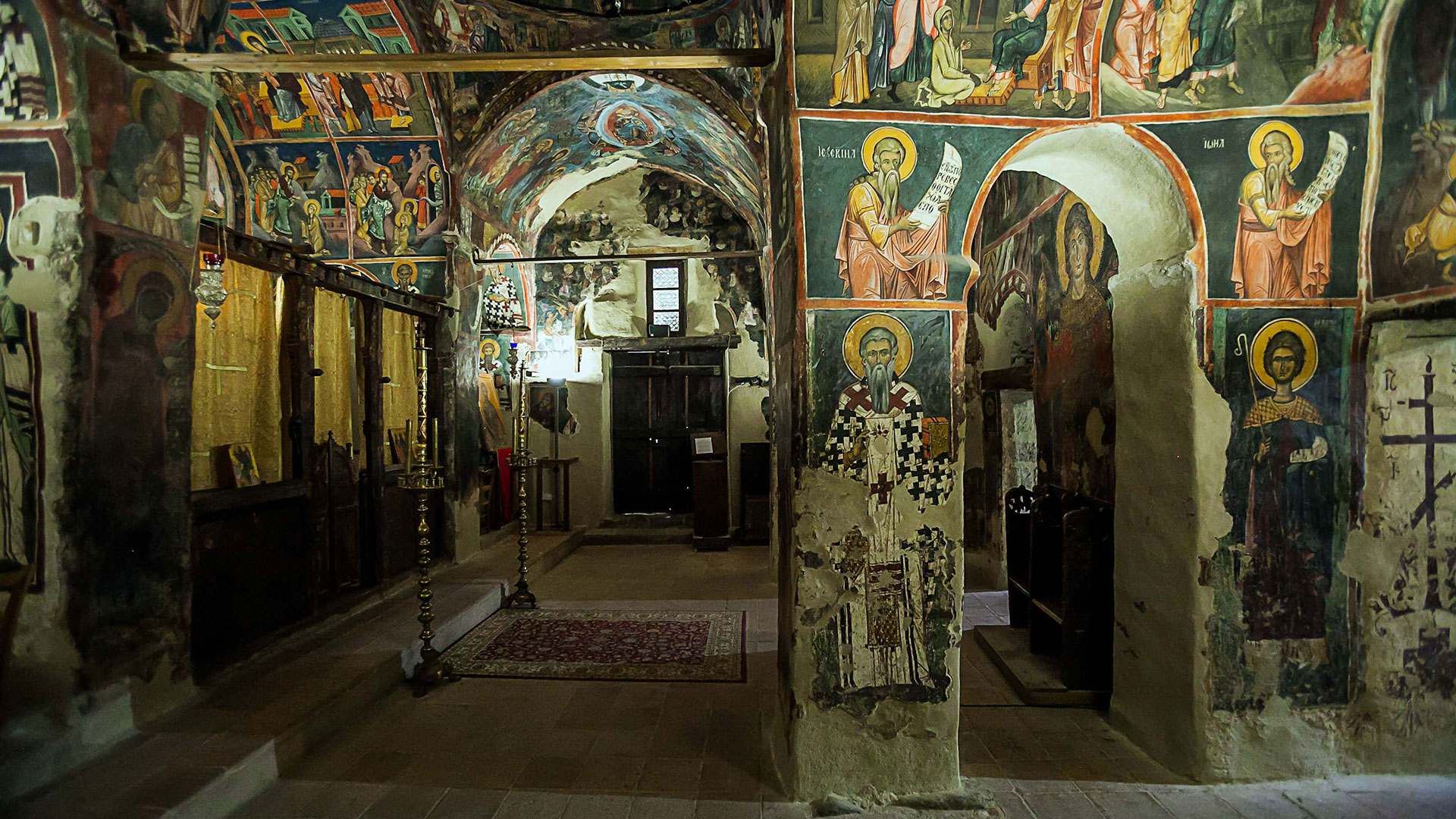
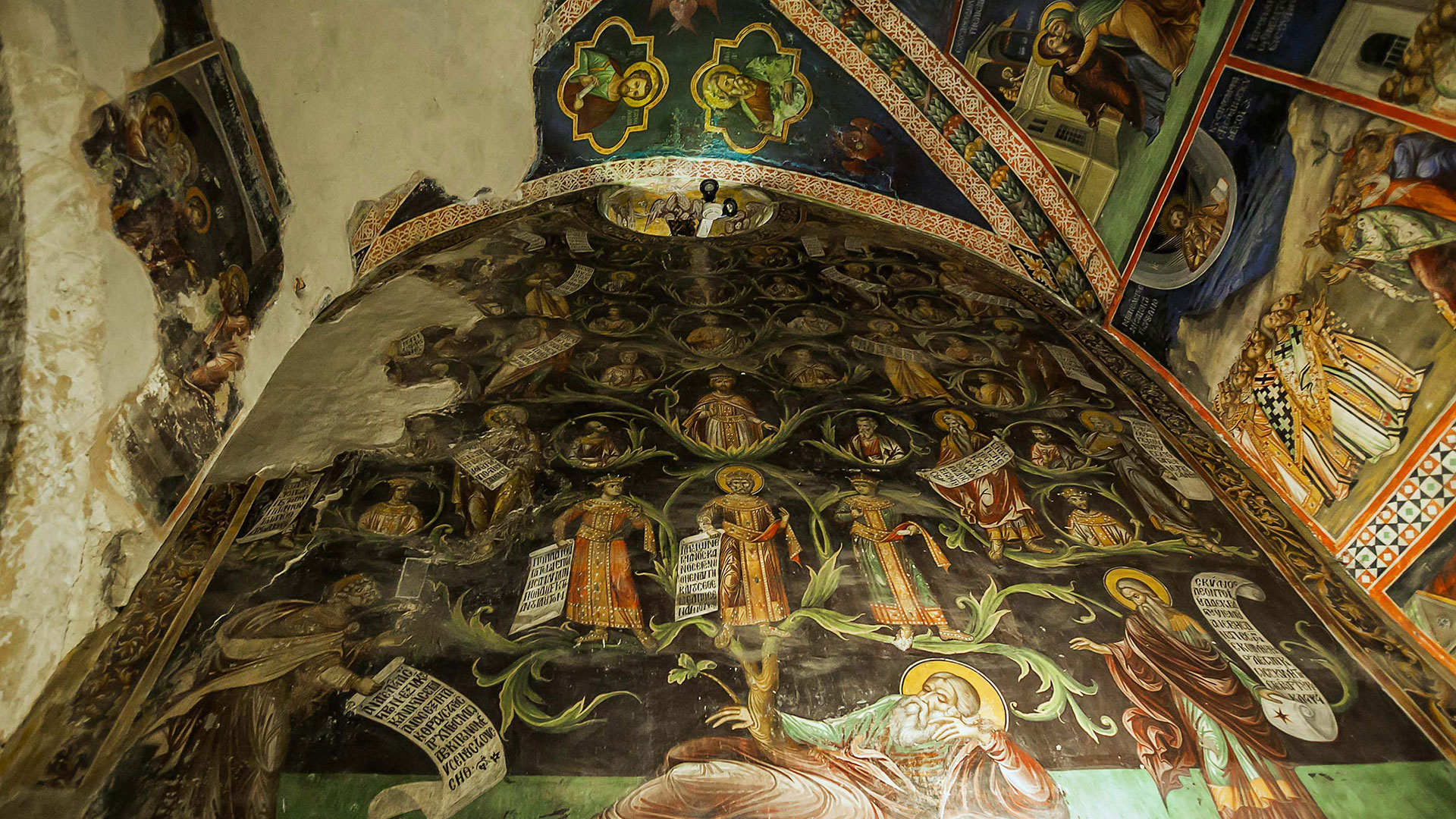
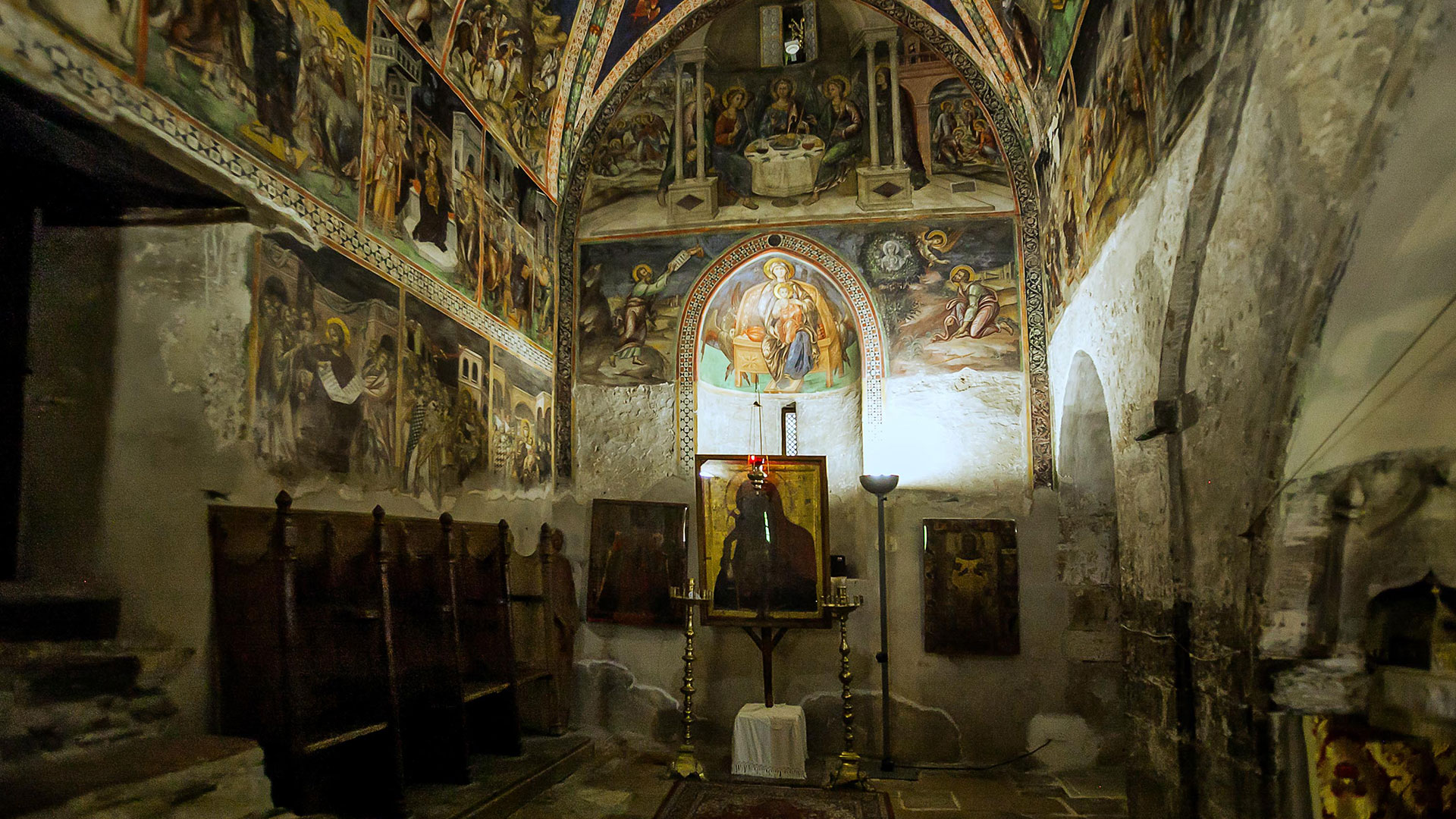
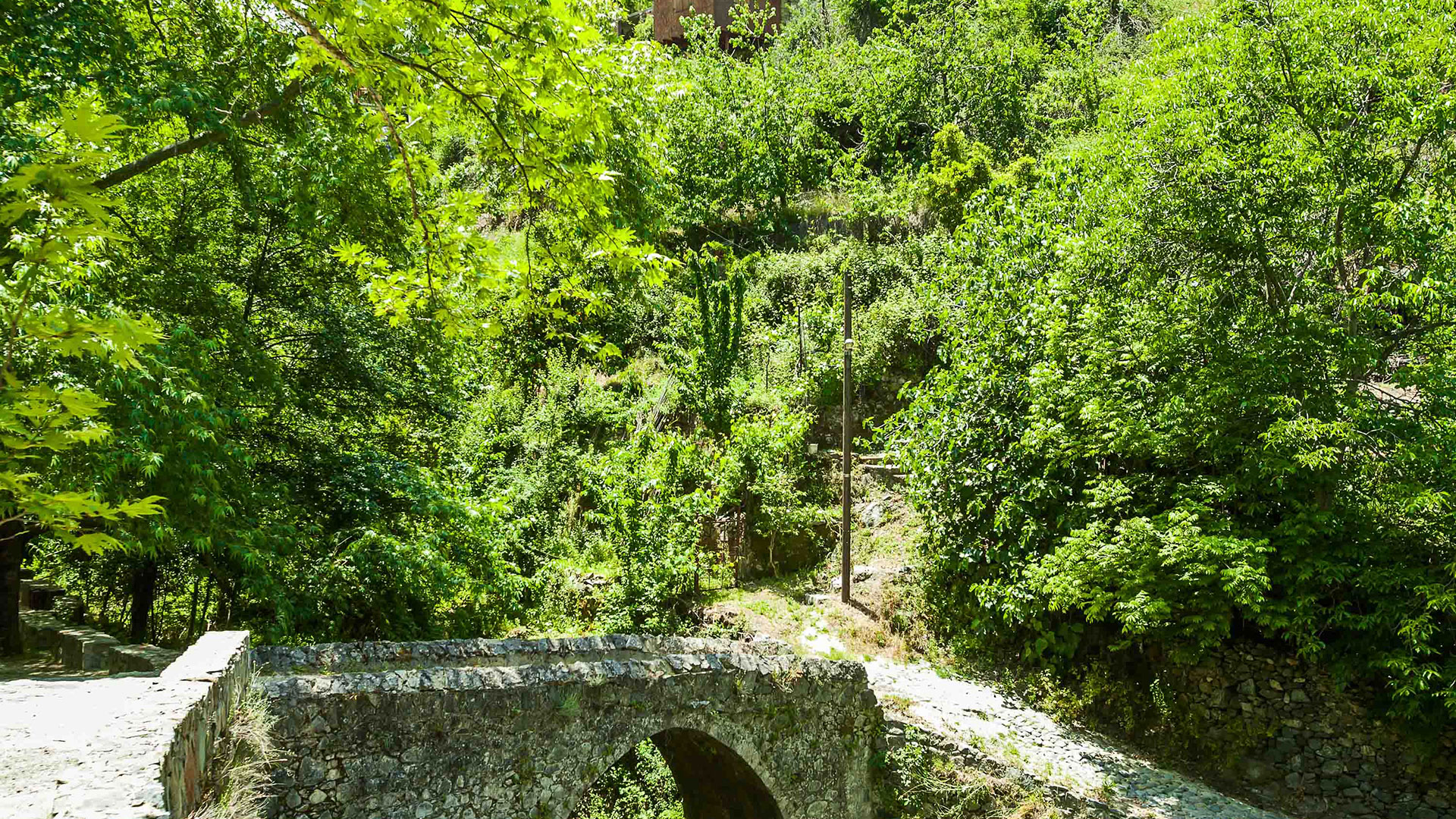
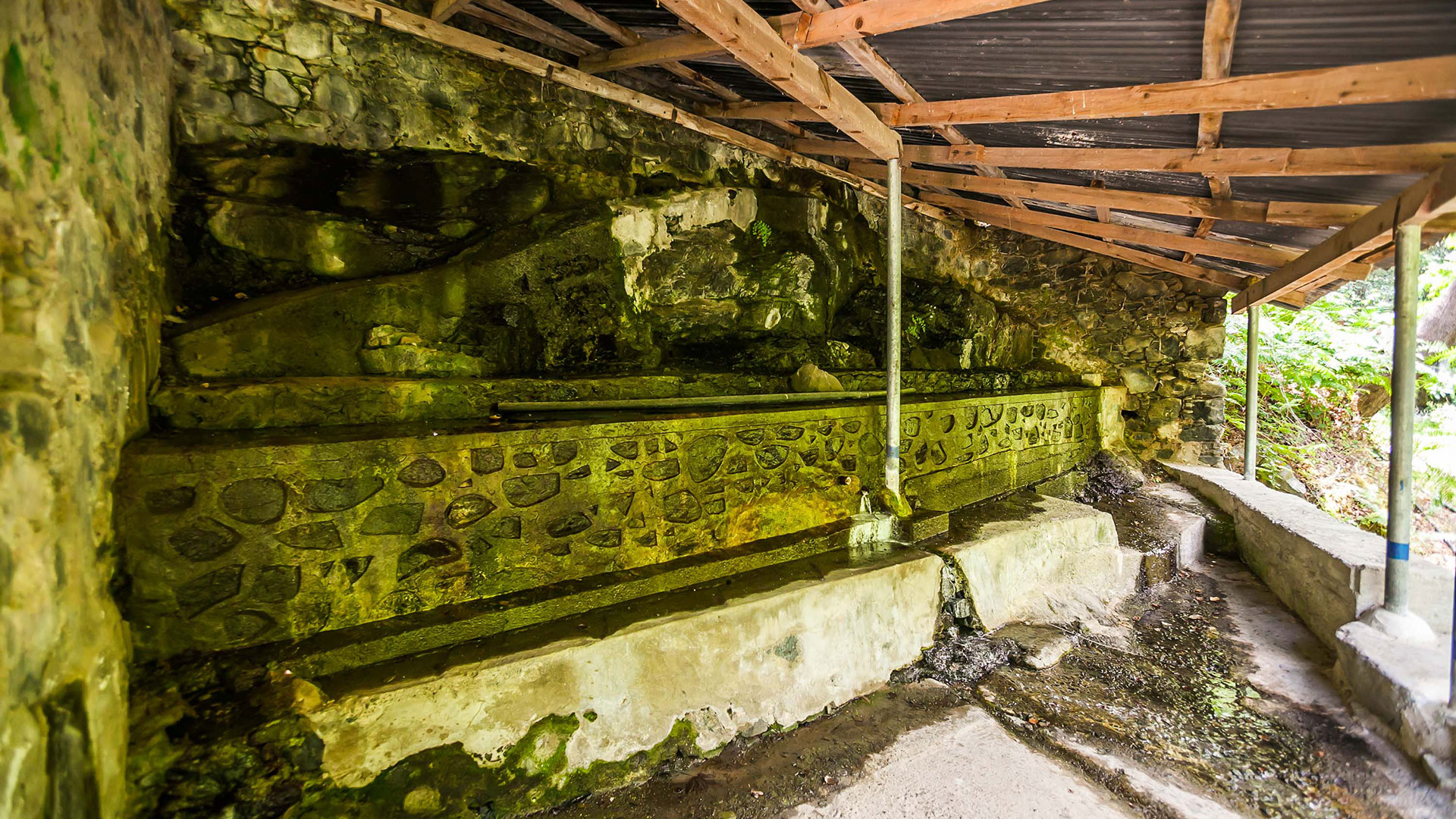
Saint Ioannis Lampadistis
The monastery of Agios Ioannis of Lampadisti is located in the central area of the Troodos mountain range, in the valley of Marathas. It is built on the east bank of the river Setrachos, opposite the village of Kalopanagiotis. It has been on the UNESCO World Heritage List since 1985, along with nine other frescoed Byzantine churches in Troodos. It is not known exactly when the monastery was founded. The katholikon, which is dedicated to Saint Heraklion, dates back to the 11th century. In a 15th century inscription that accompanies portraits of donors on the narthex, the church is mentioned as catholic, ie as the main parish church of the community. We know that the monastery continued to exist until the beginning of the 19th century. Since then it only functions as a temple. In the middle of the 19th century, a room of the monastery buildings was used as a classroom for the children of Kalopanagiotis and the surrounding villages.
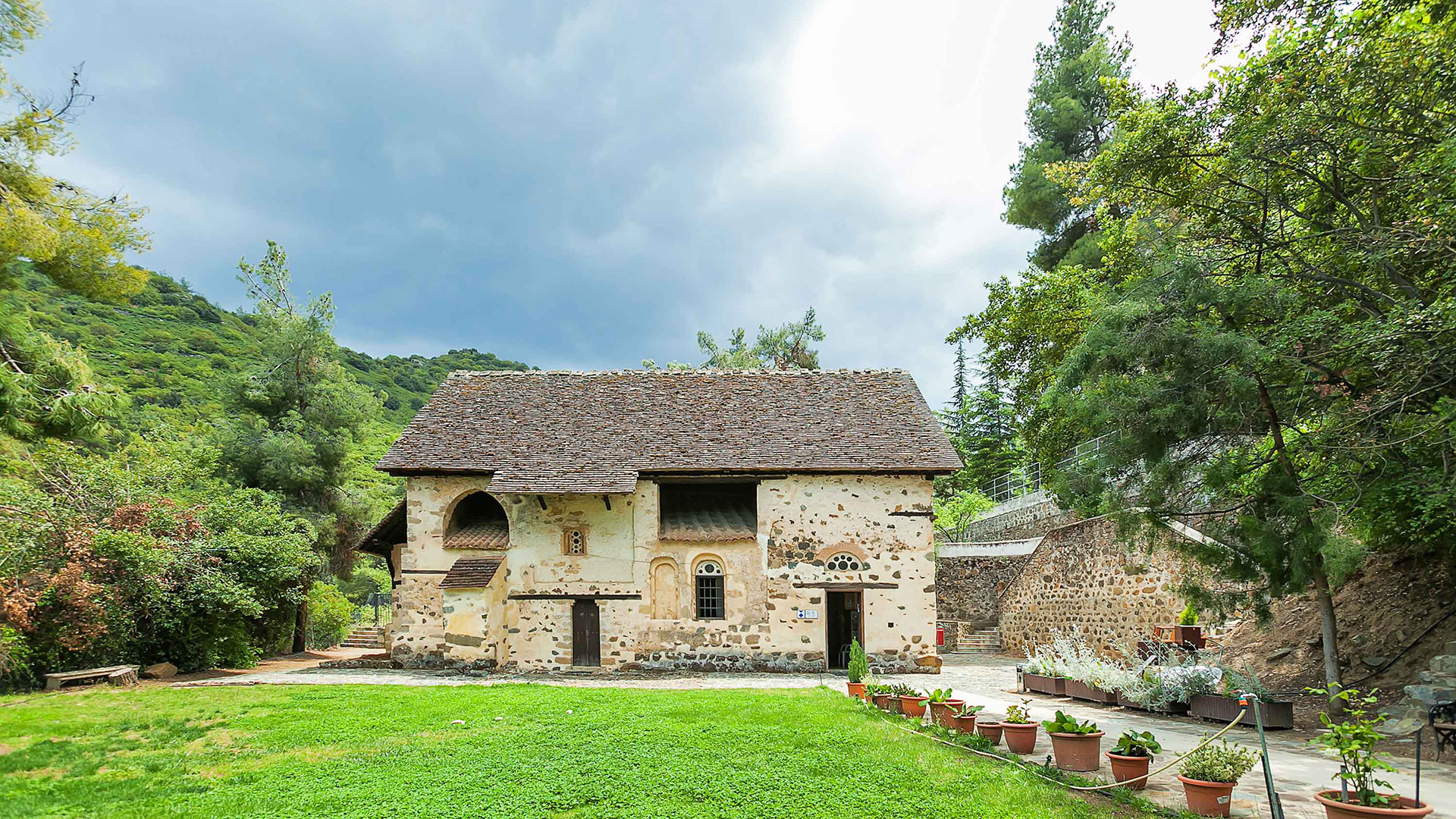
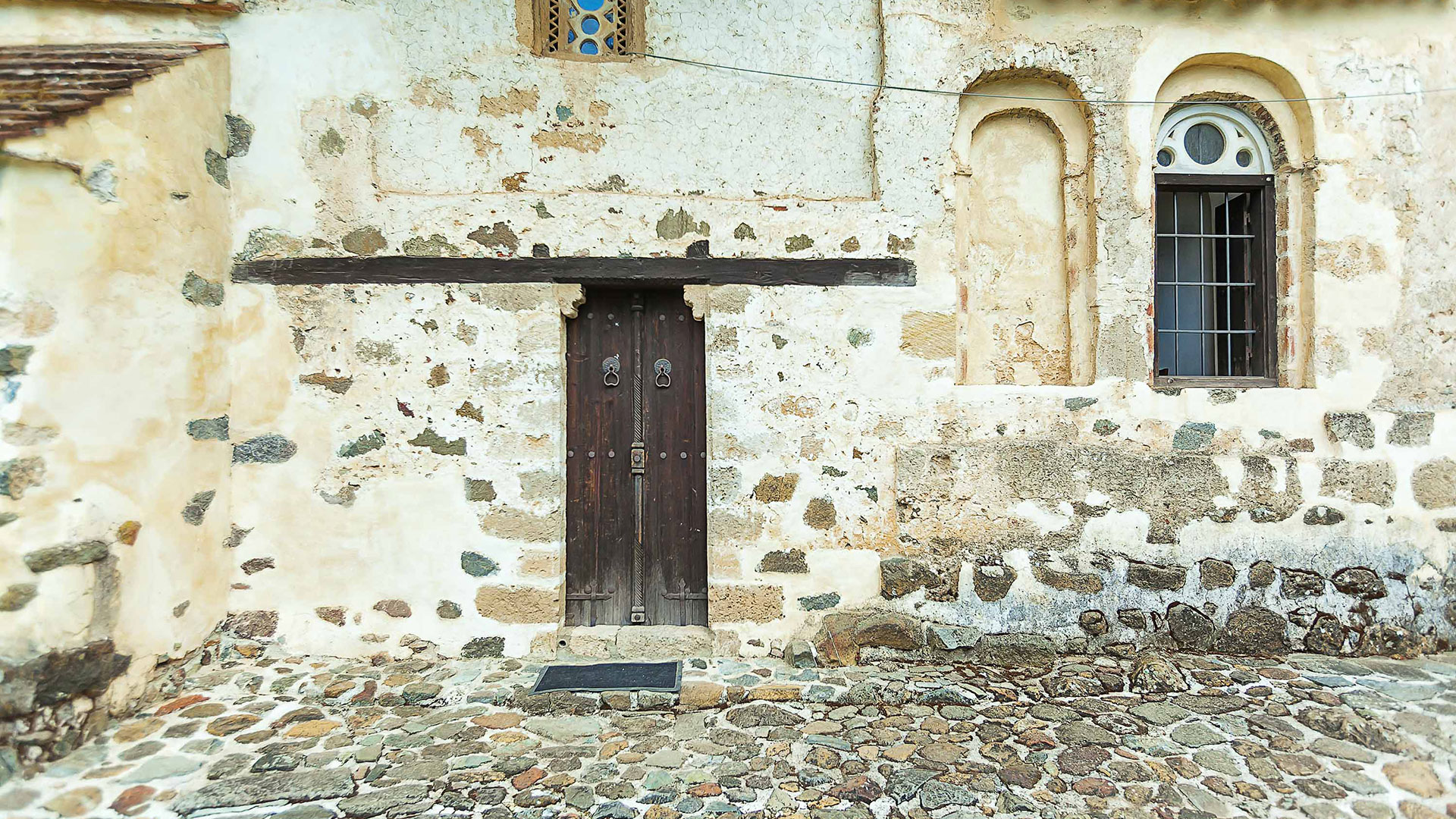
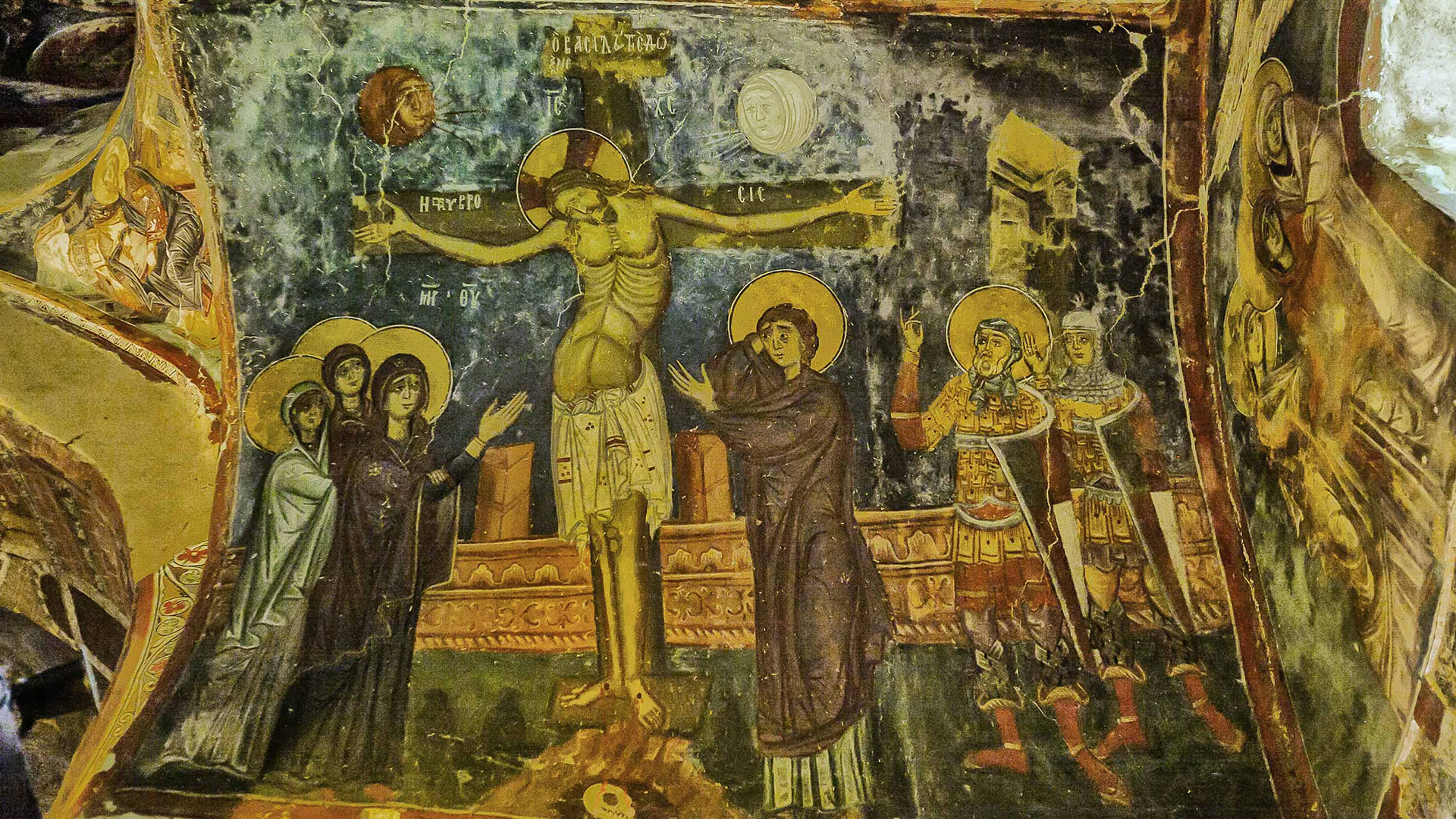
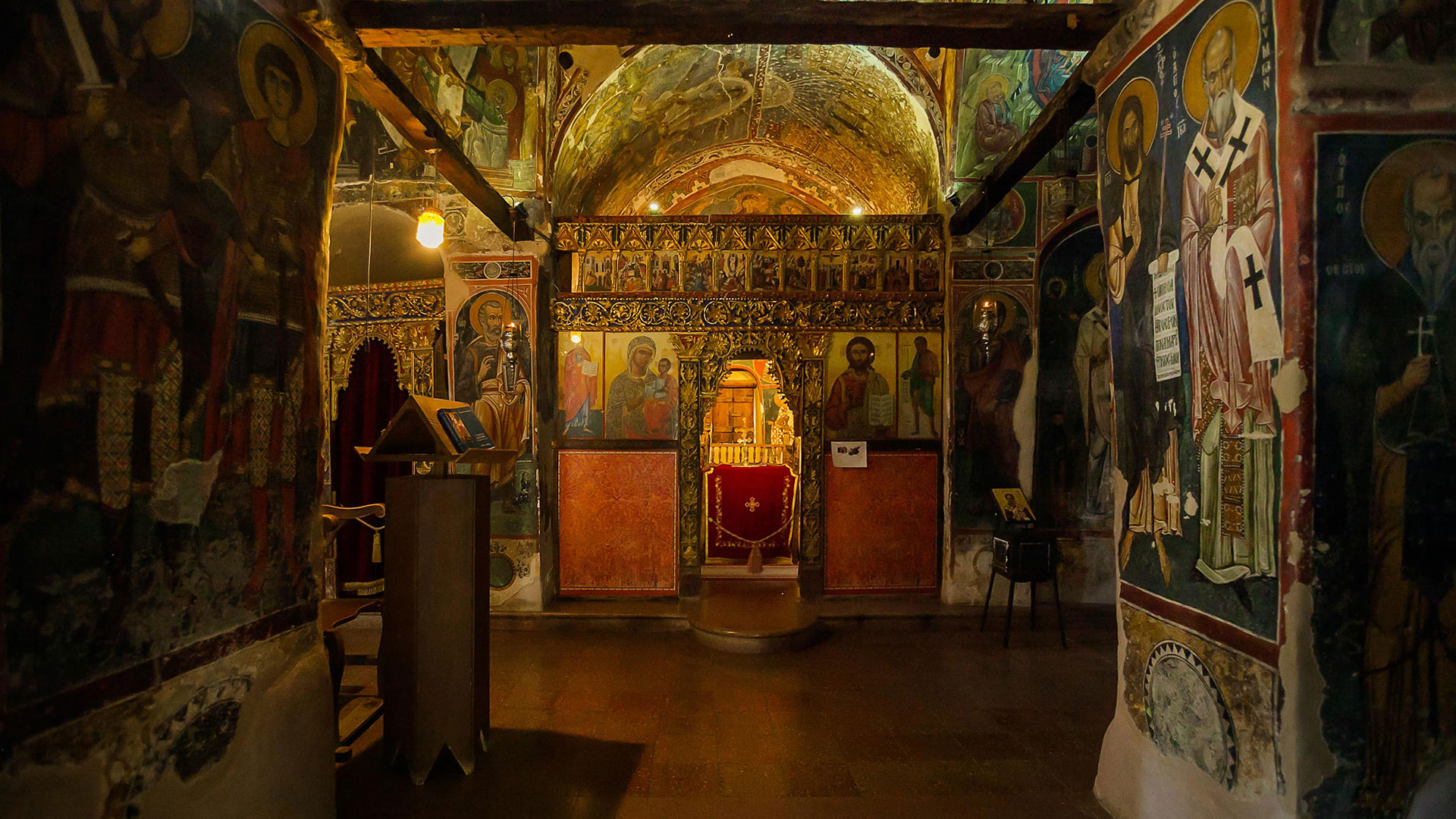
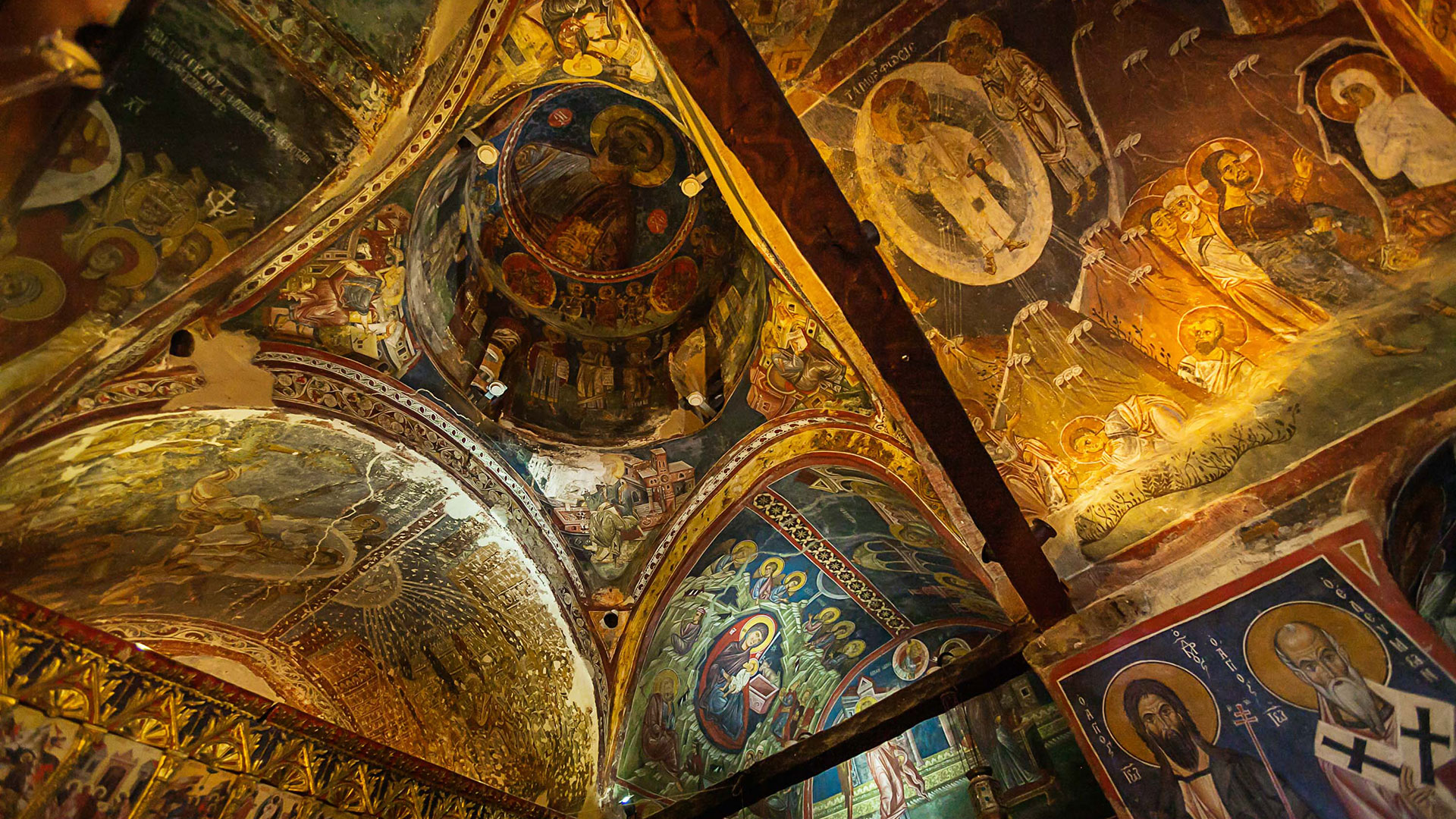
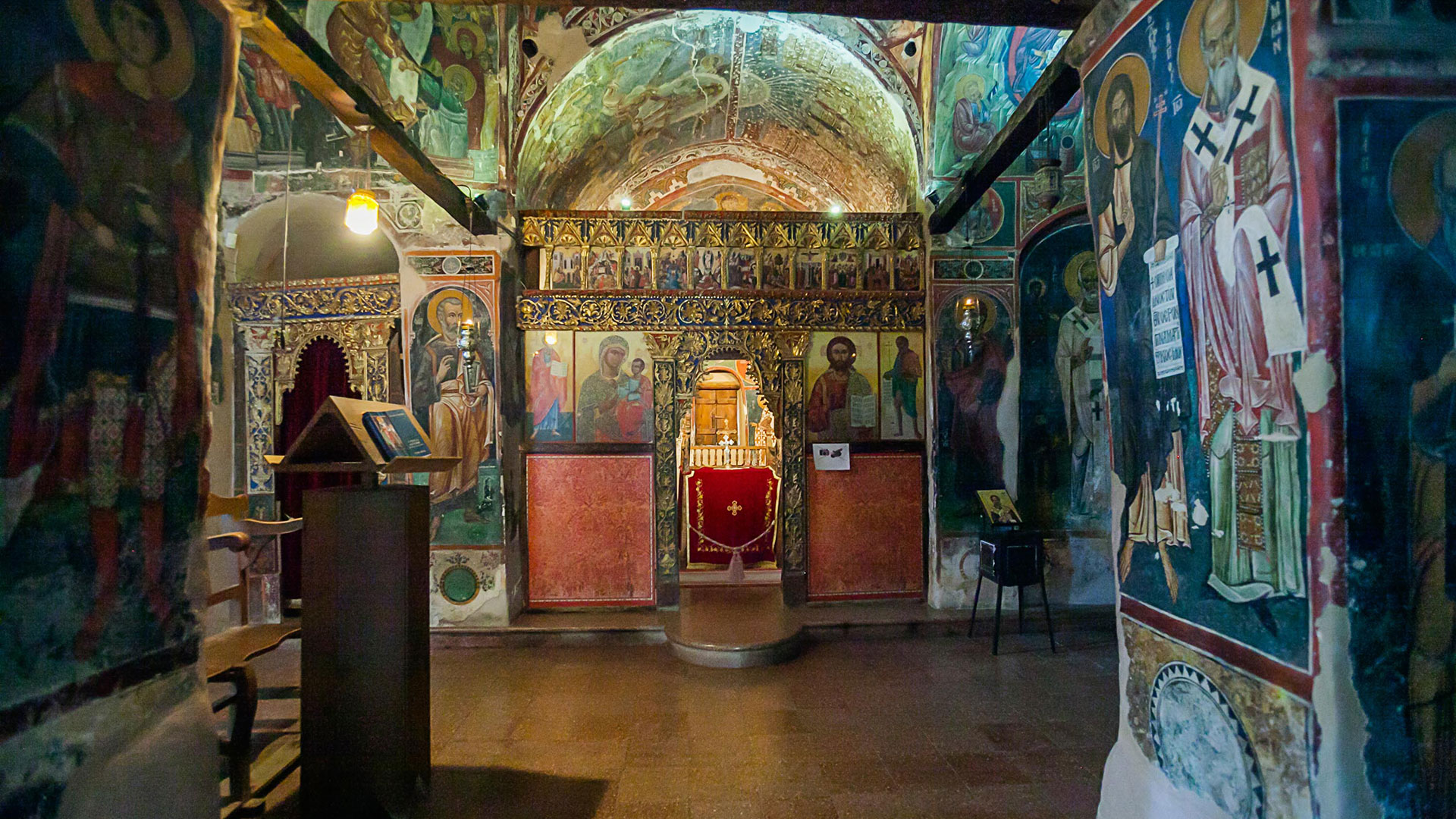
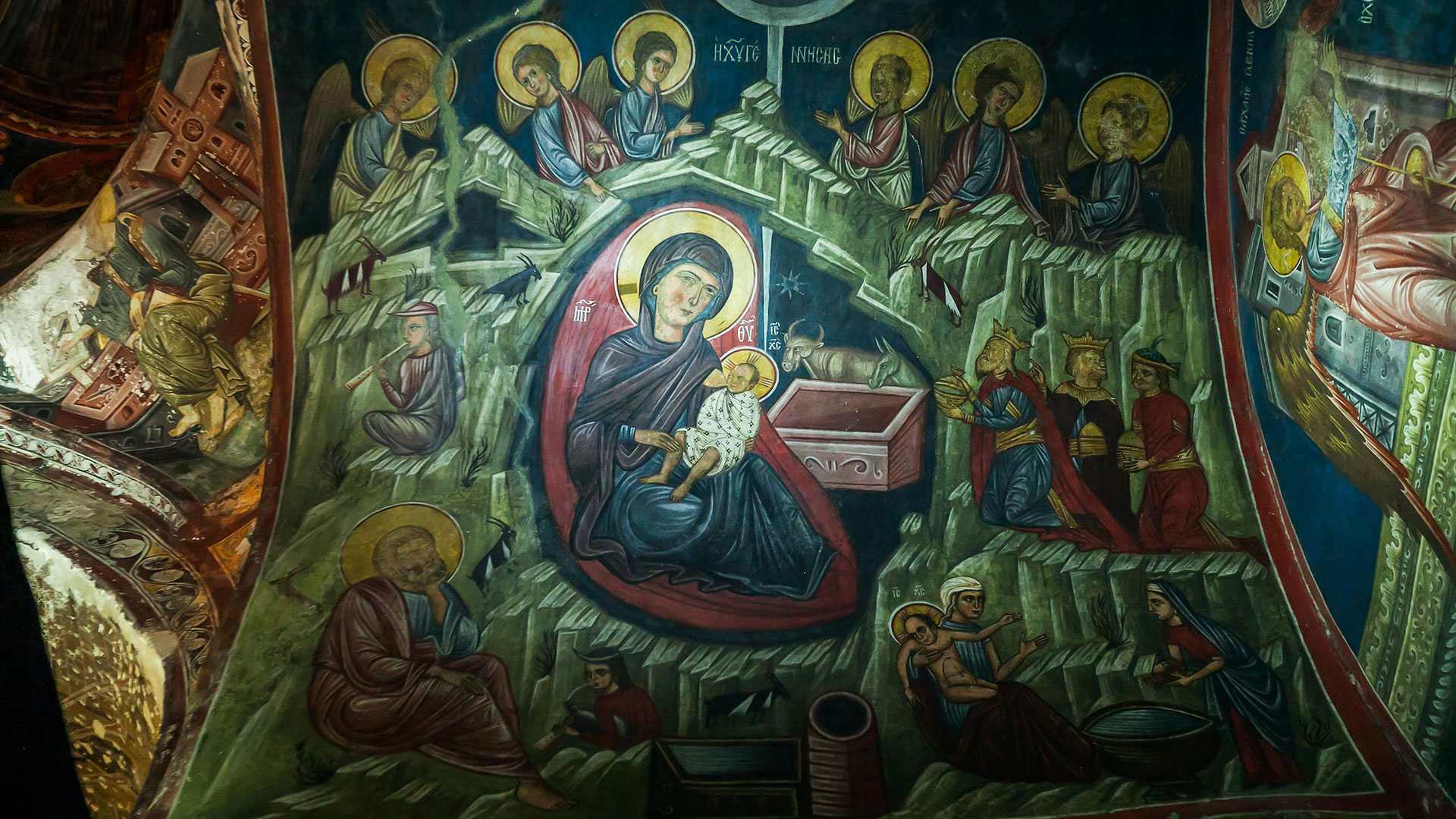
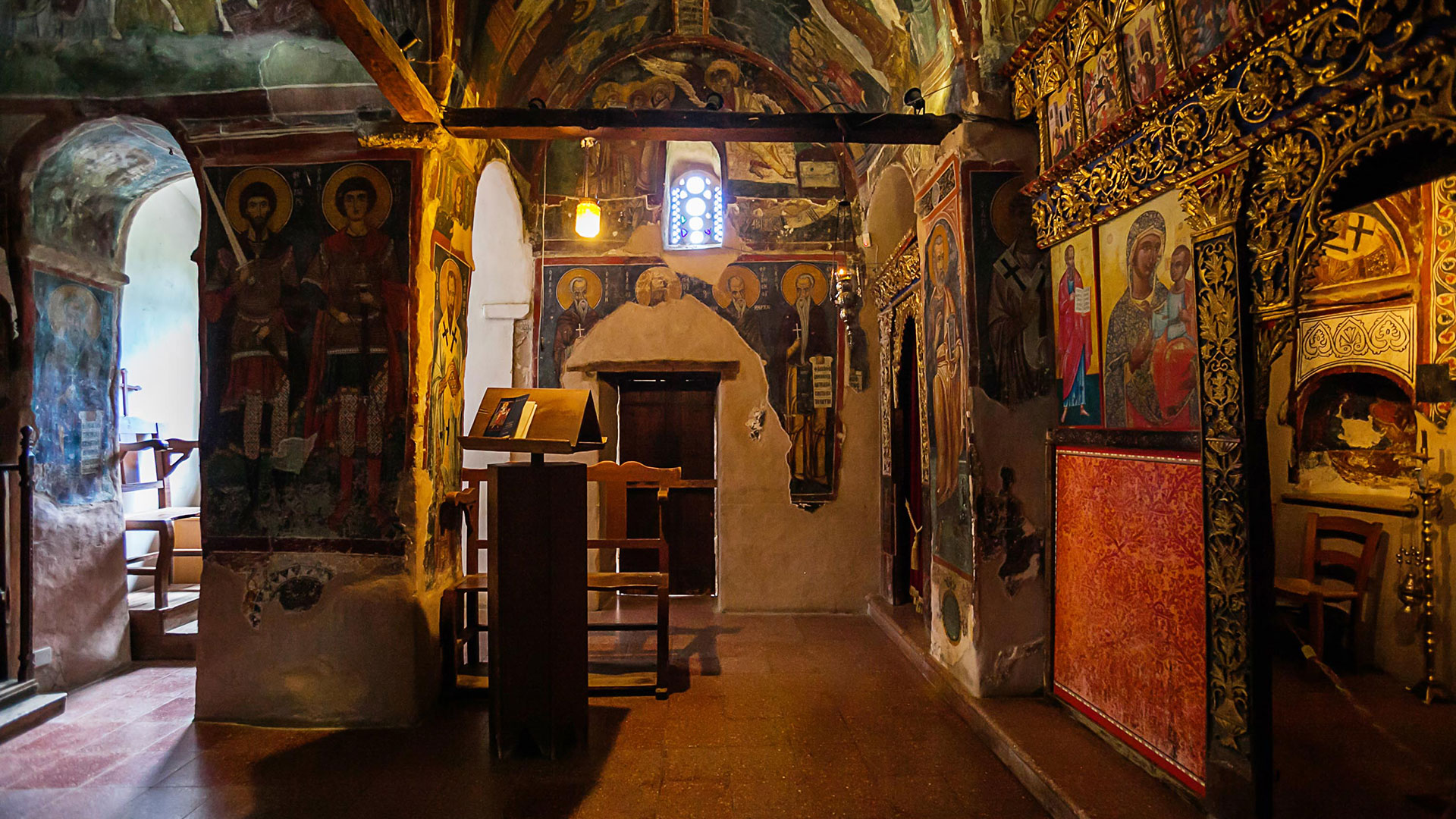
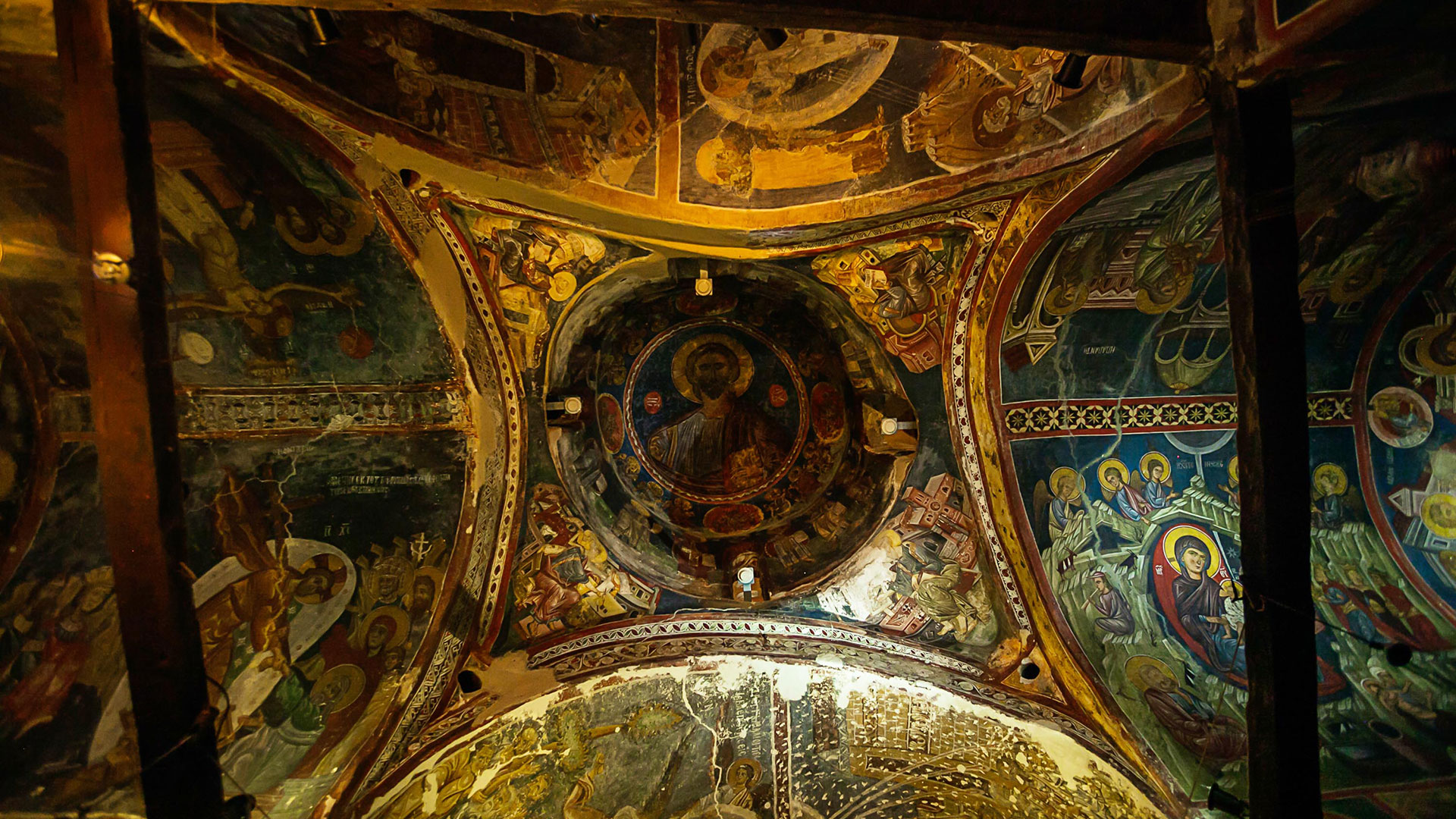
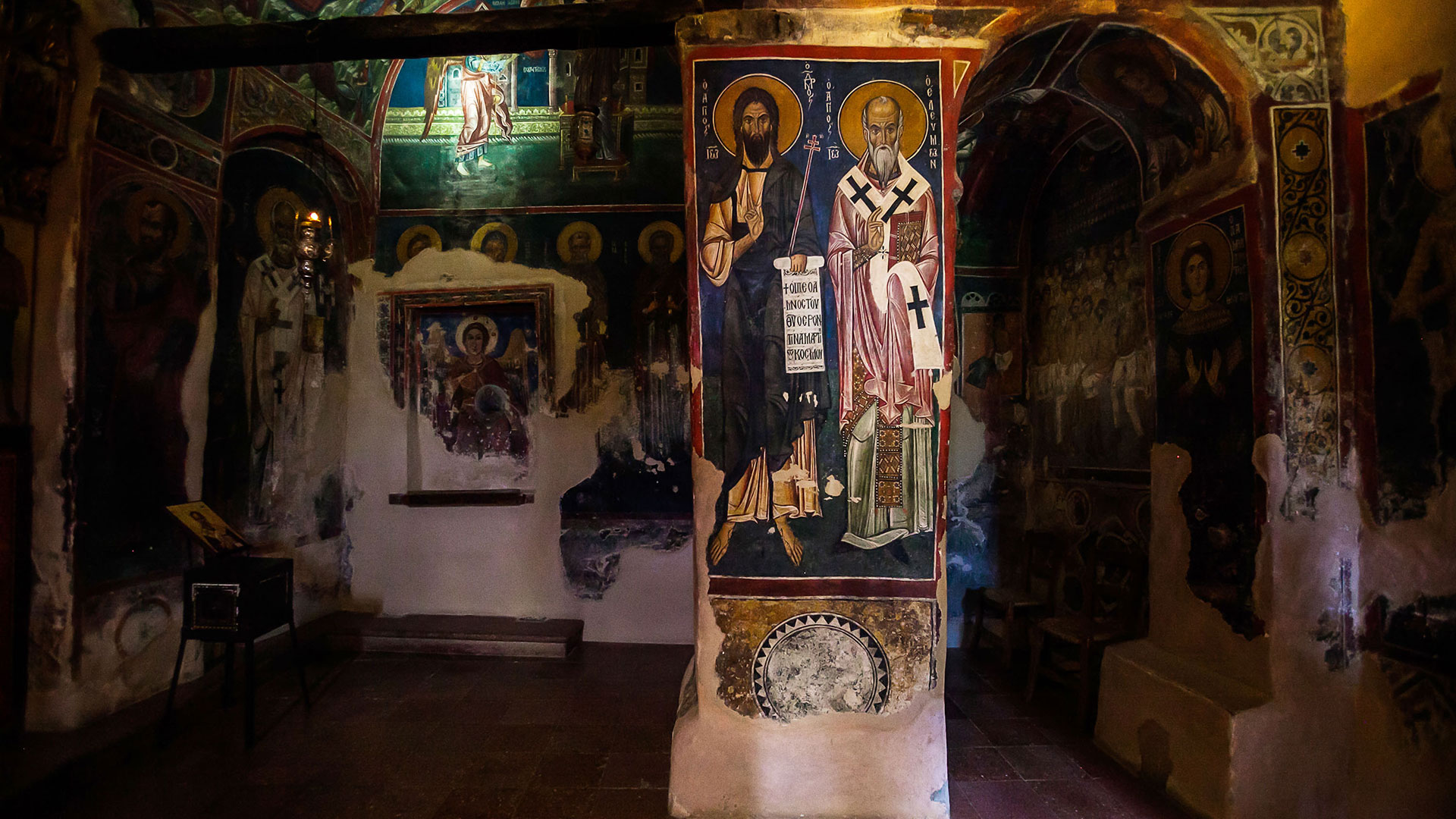
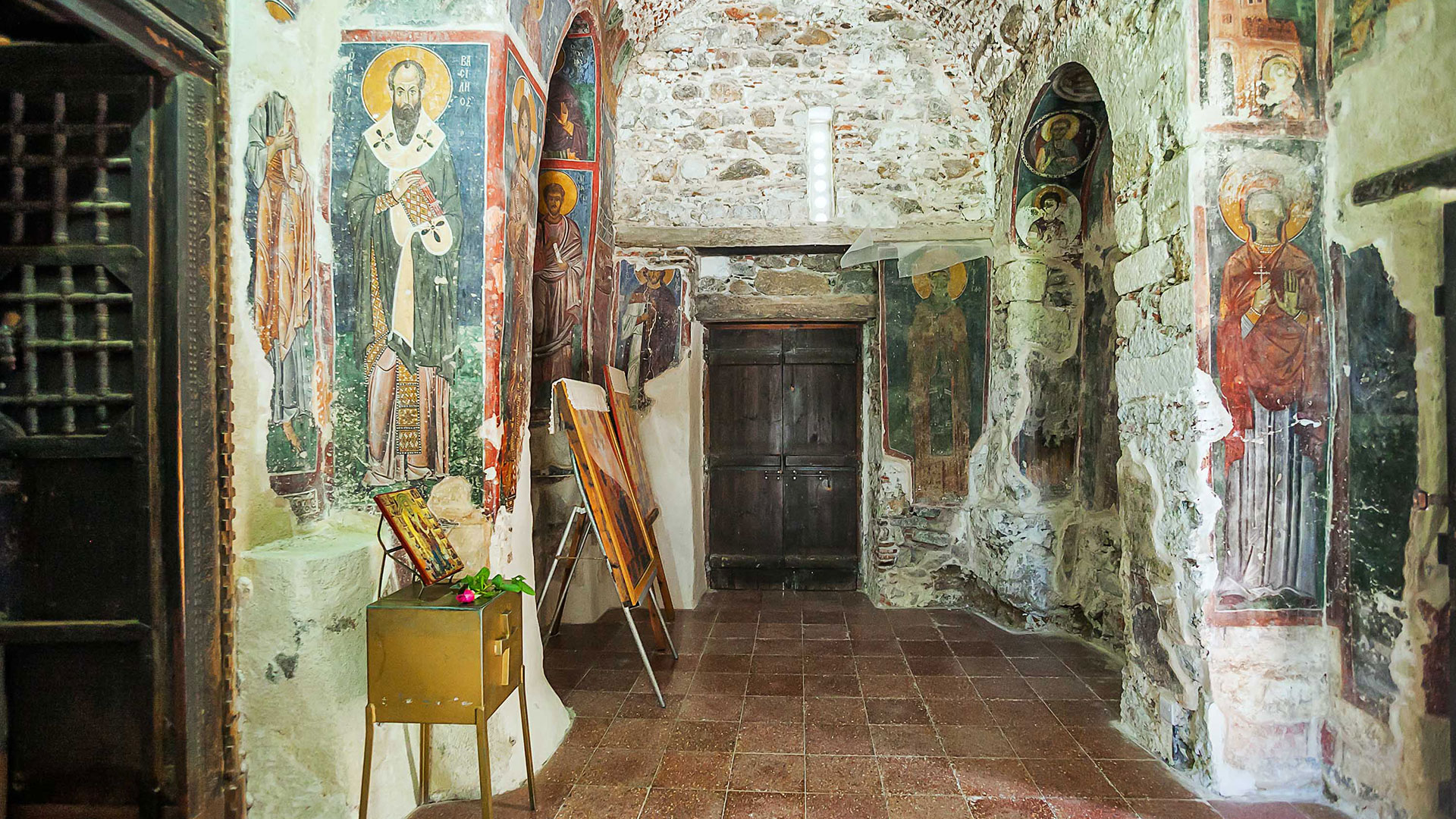
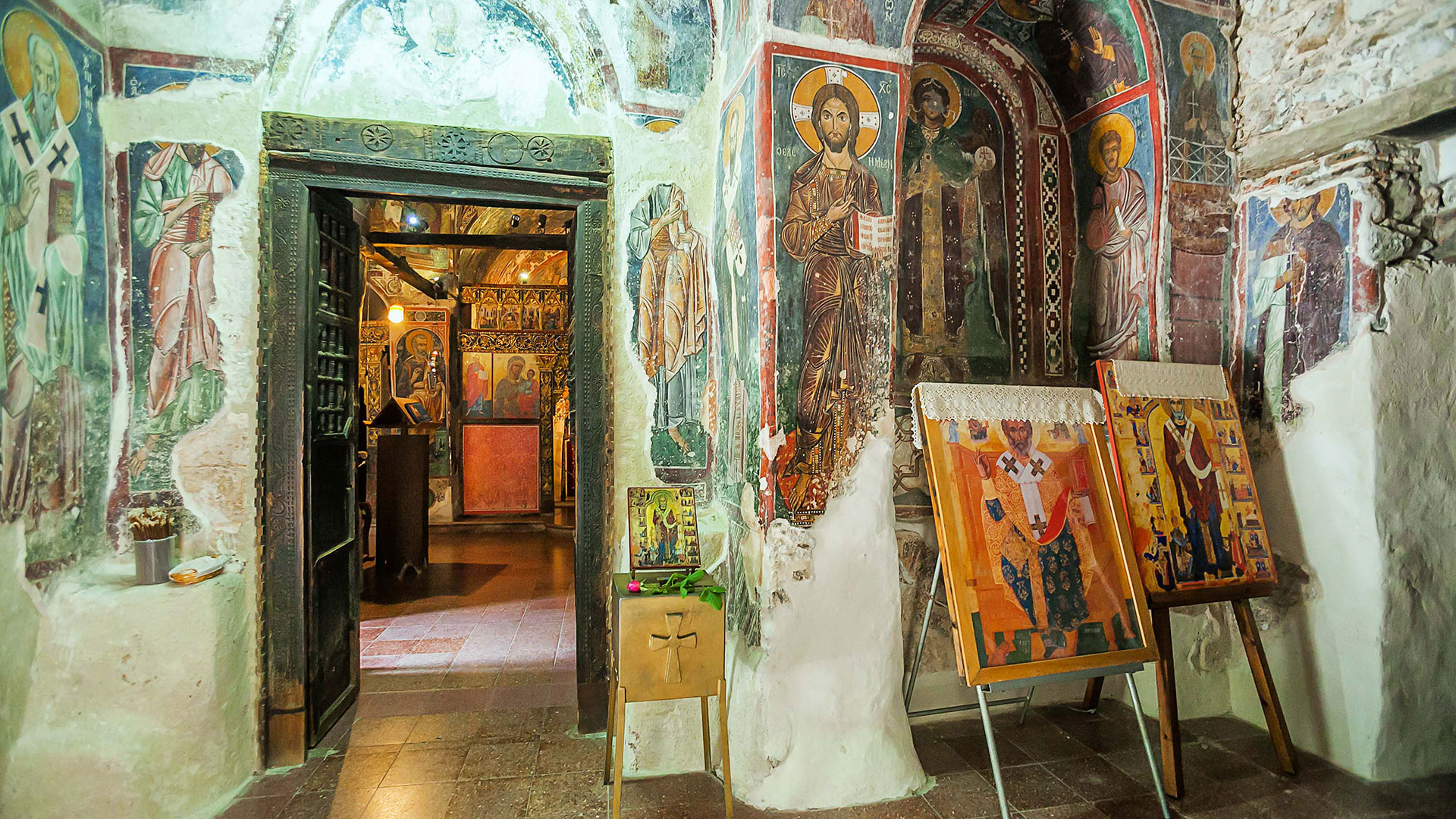
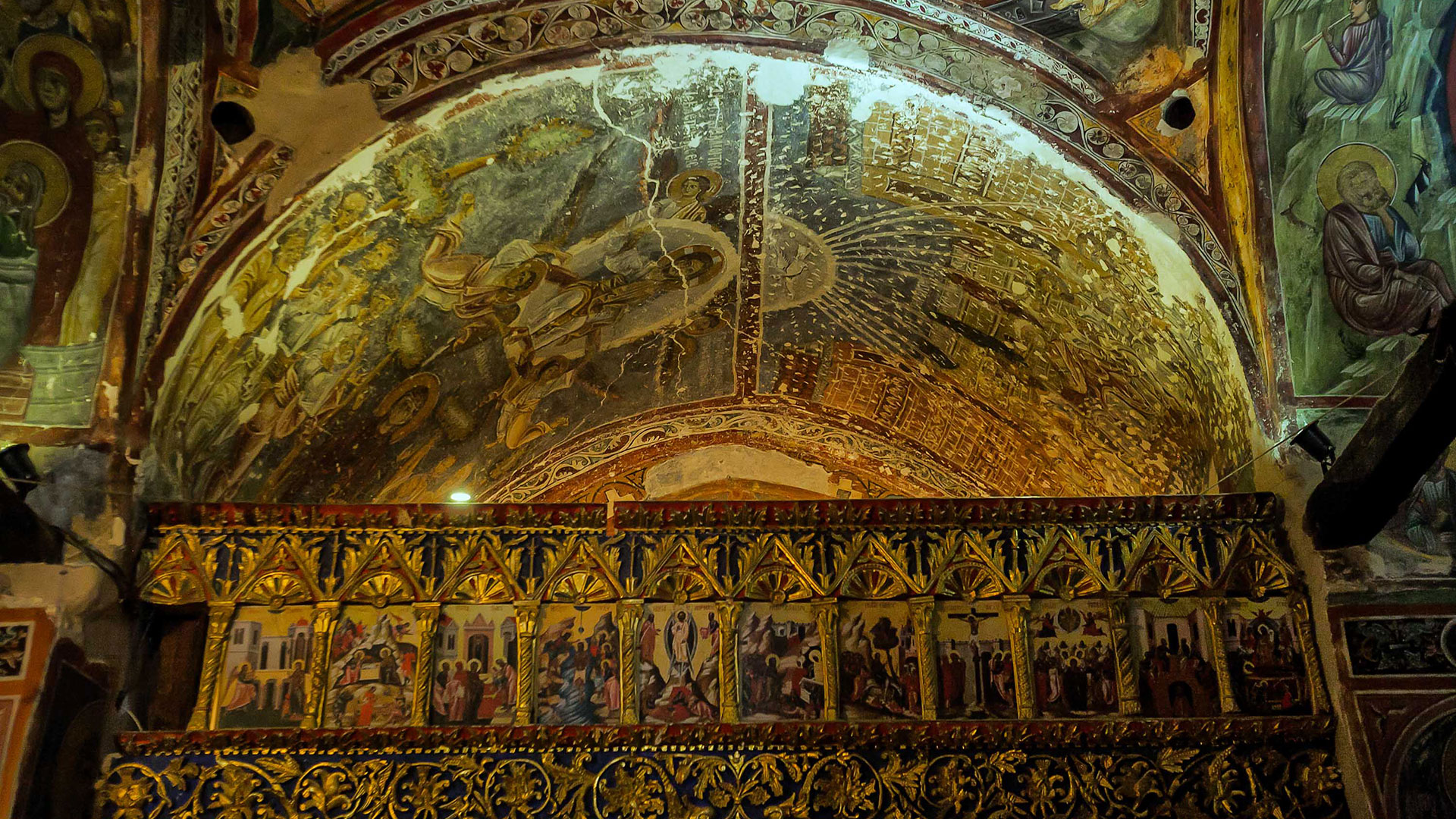
Saint Nikolaos of Stegi (Kakopetria)
The church of Ayios Nikolaos tis Stegis is situated in a central area of the Troodos mountain range, in the upper Solea valley. It is built on the west bank of the river Klarios/Karkotis, at a distance of about two kilometers southwest of the village of Kakopetria. In 1985 it was inscribed on the UNESCO World Heritage List which includes nine other painted Byzantine churches of the Troodos range. Agios Nikolaos tis Stegis is the only surviving katholic (monastery church) of an 11th century Byzantine monastery in Cyprus. The church itself is dated to the 11th century, whilst the earliest written sources that mention the monastery are dated to the end of the 13th or the beginning of the 14th century. This monastery flourished from the Middle Byzantine period up to the period of Frankish rule. It declined during the 18th century and ceased to function as a monastery by the end of the 19th century. Ever since, it seems to have functioned as a simple country church and a pilgrimage site. Apart from the church, no other monastic buildings survive today.
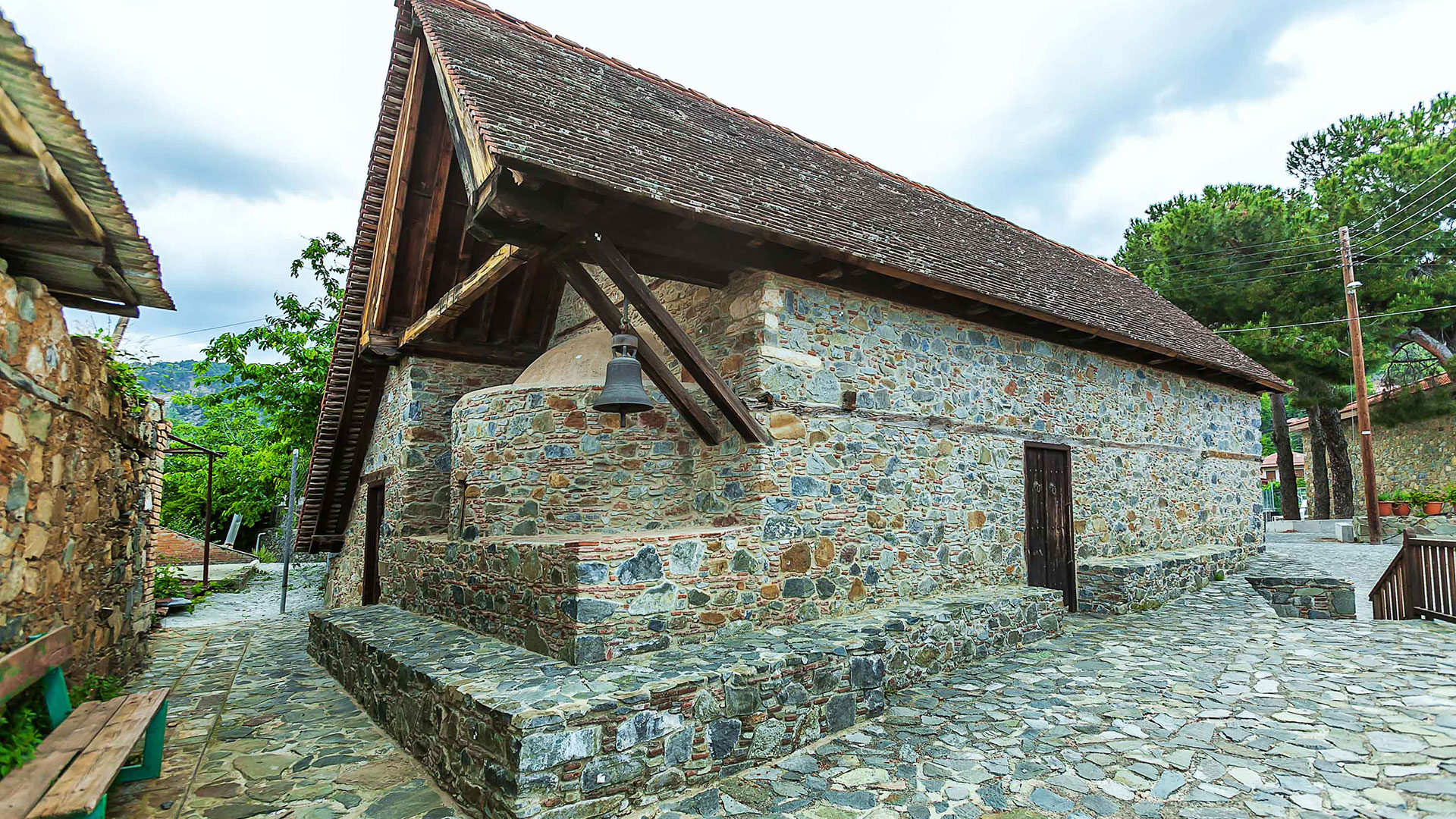
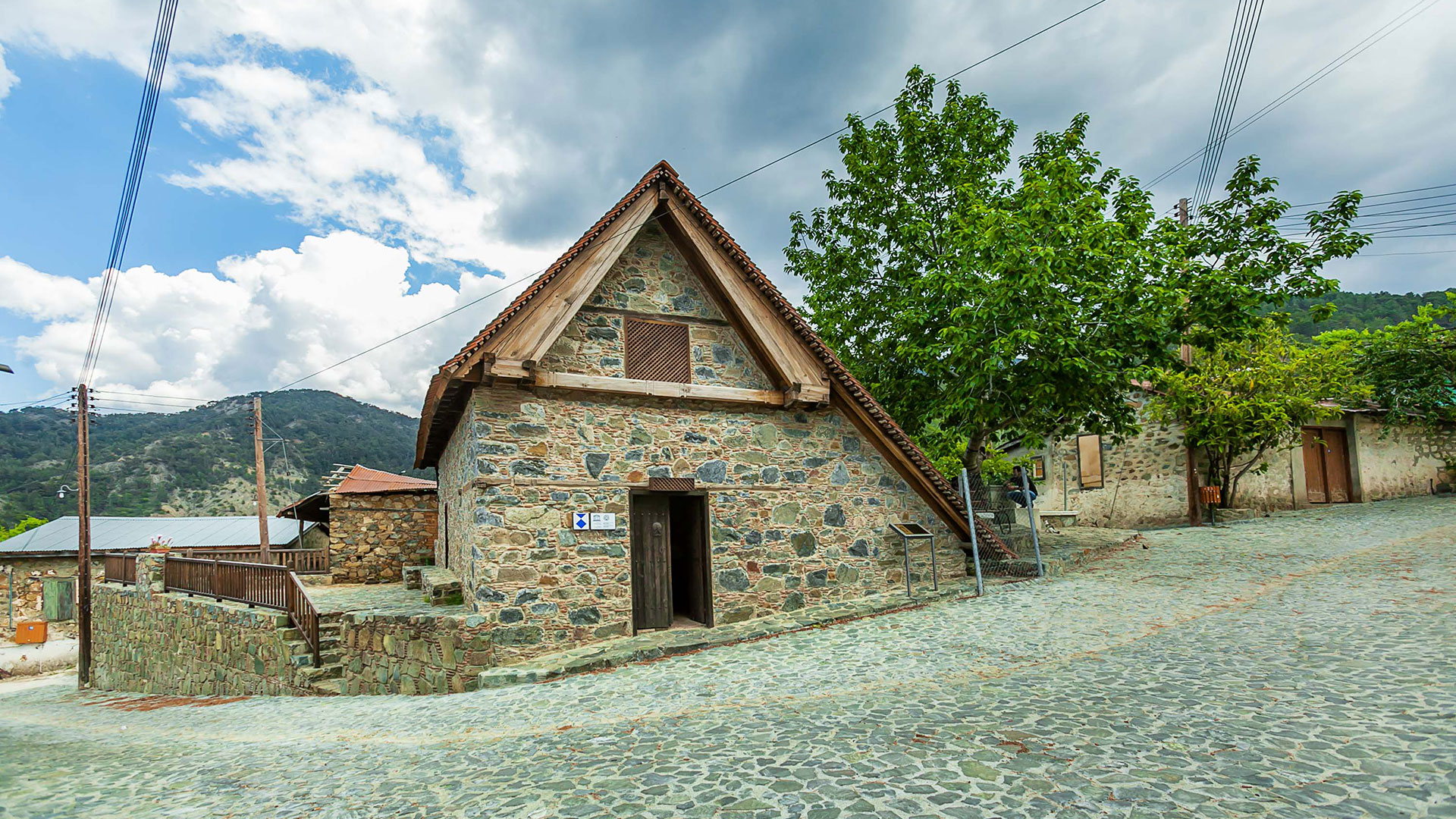
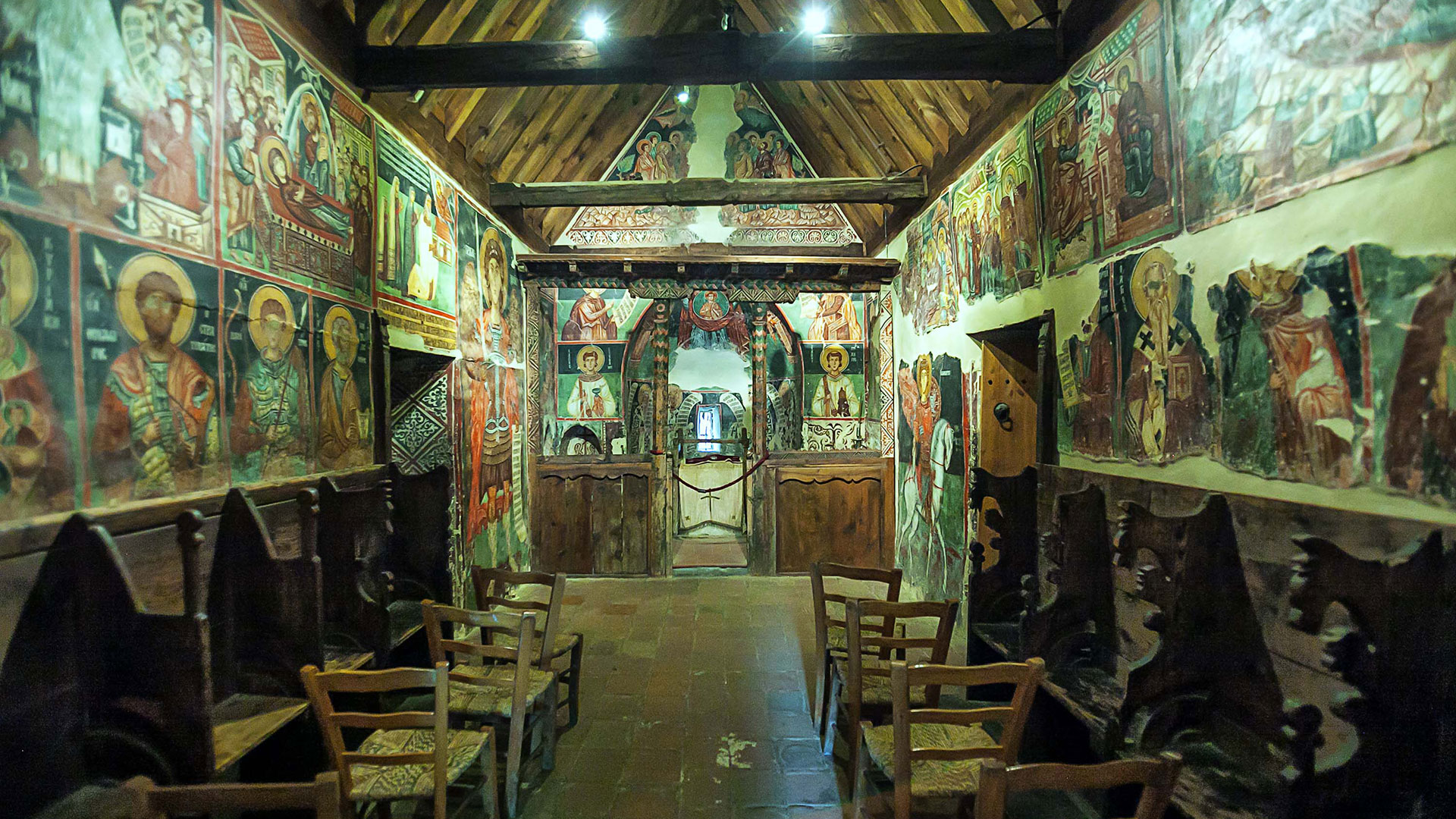
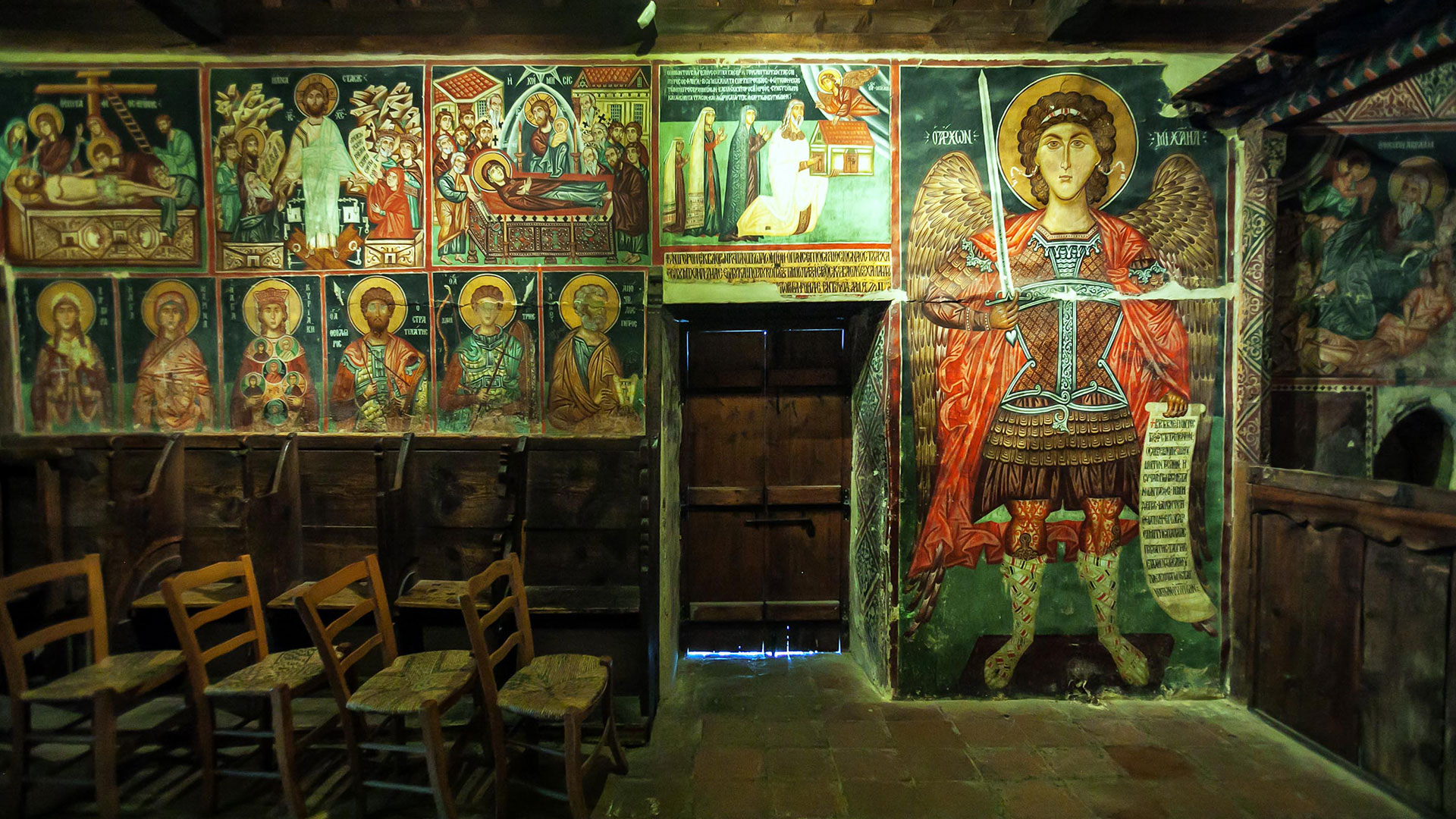
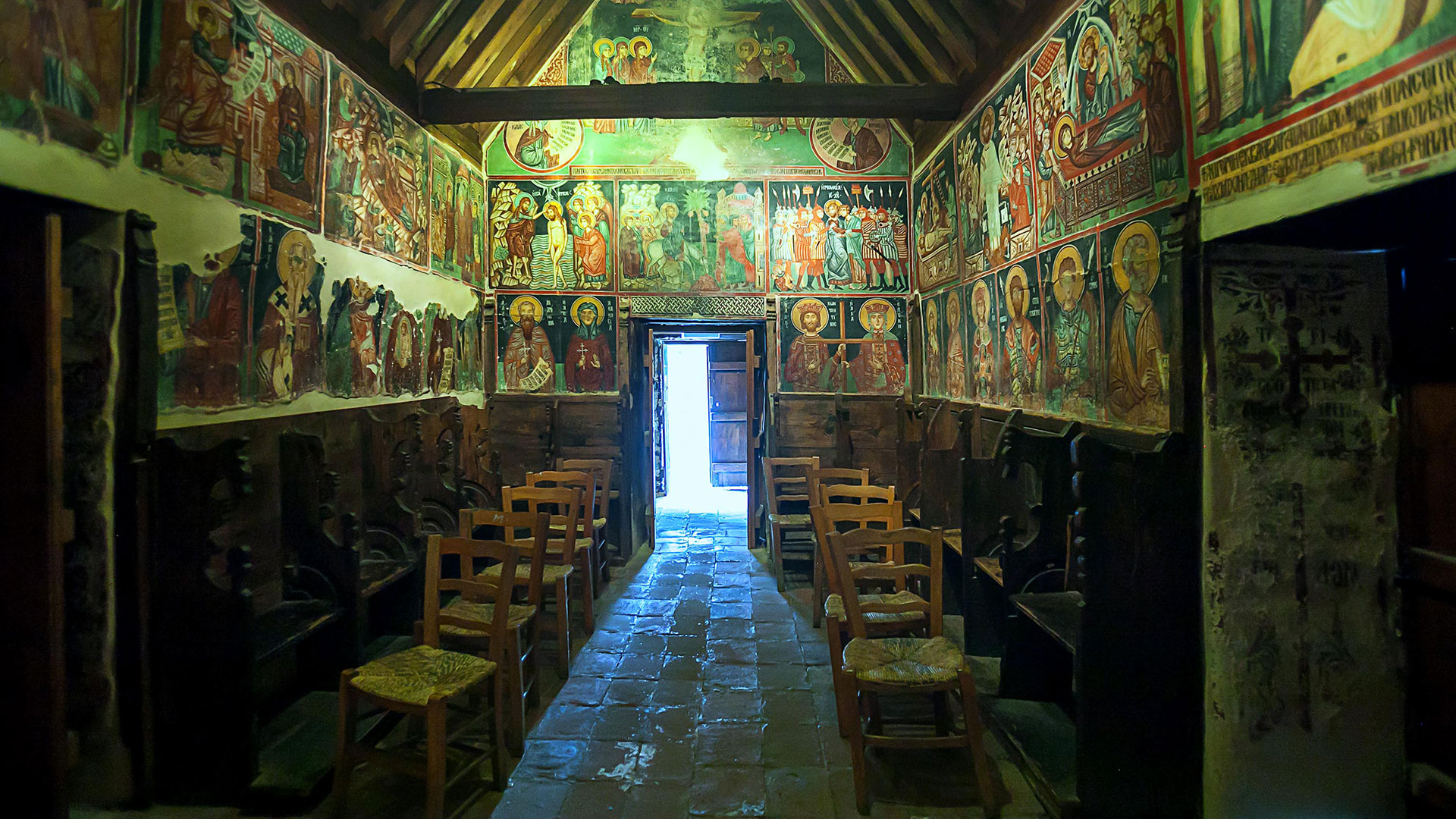
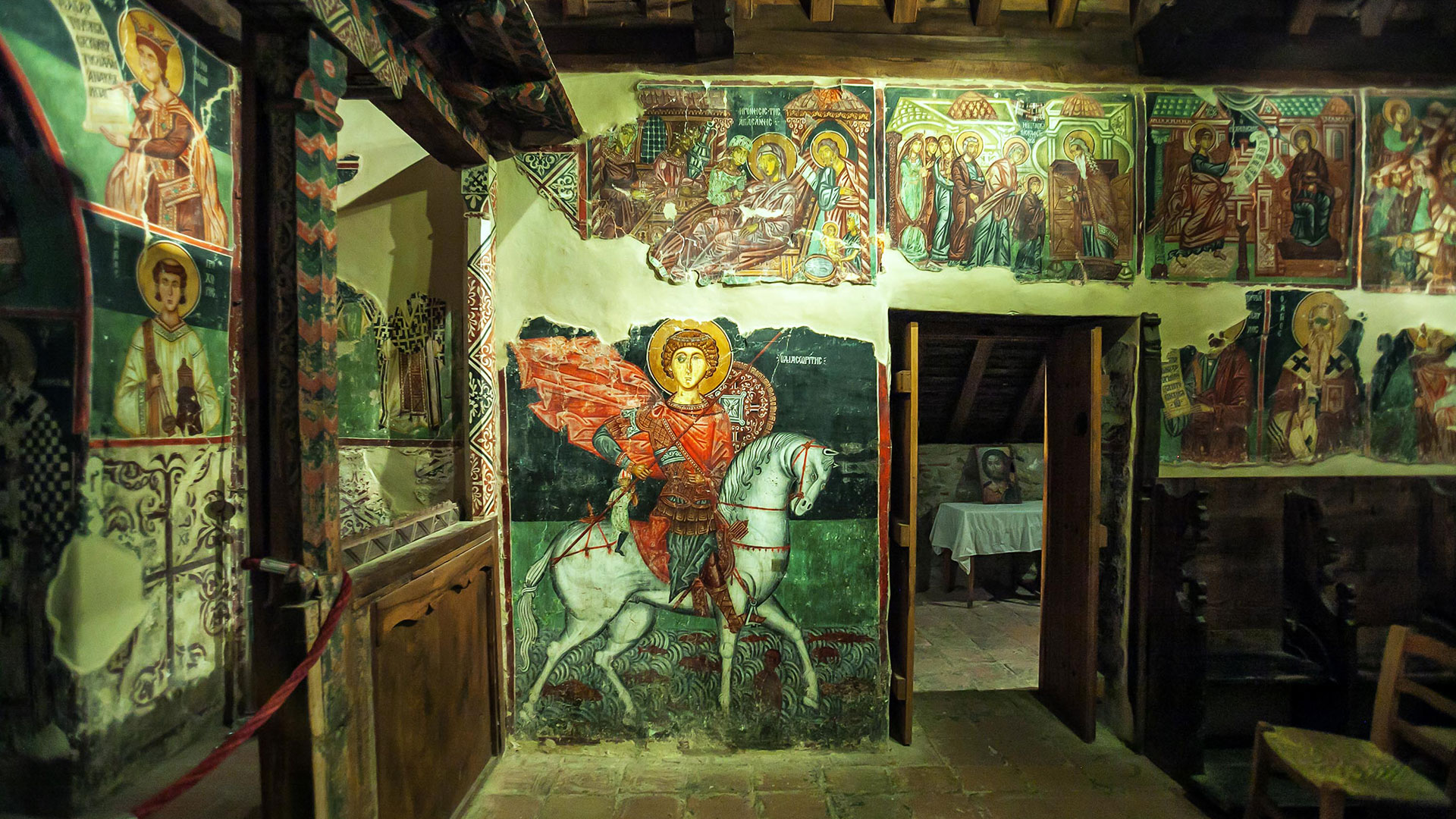
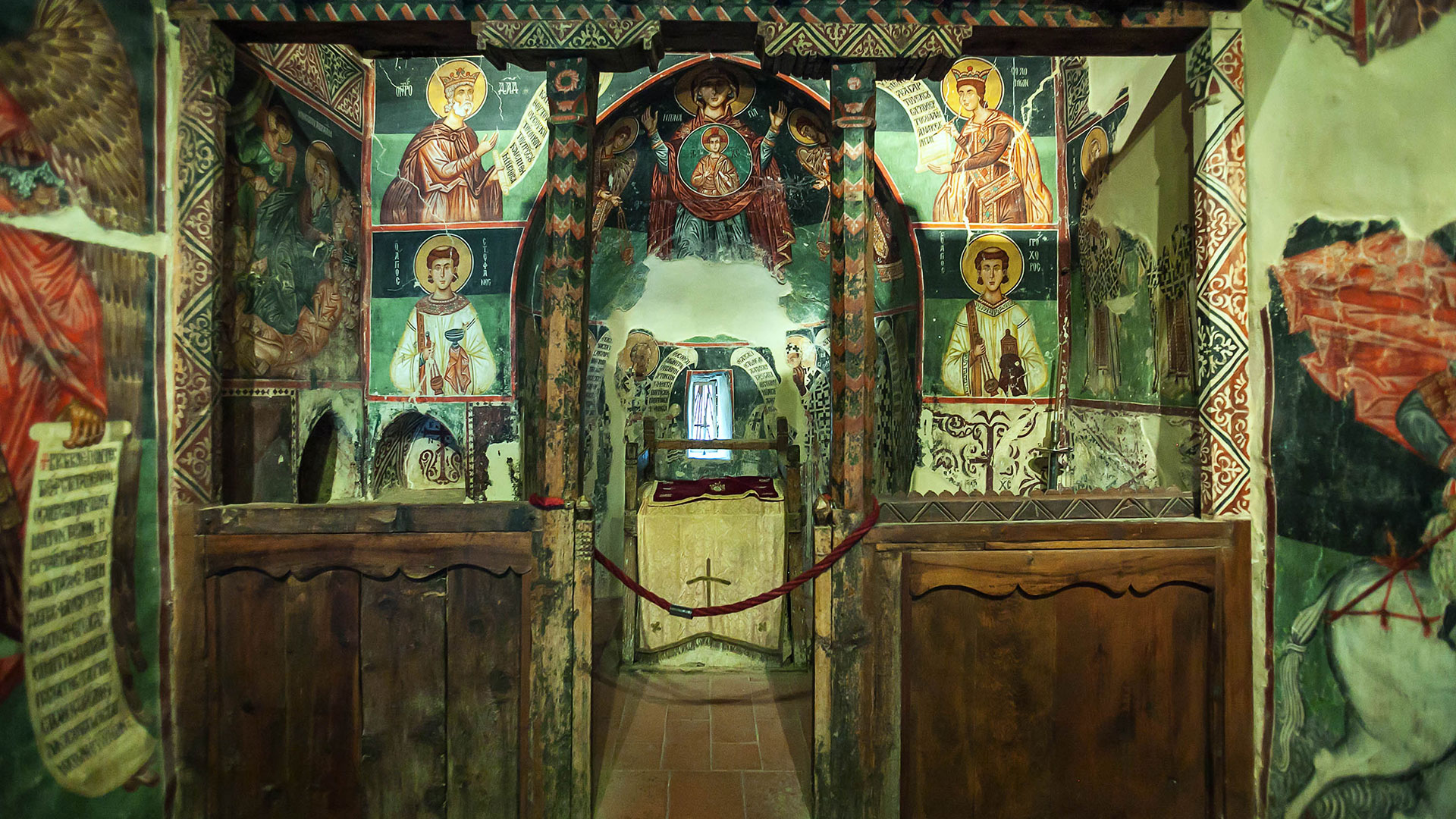
Archangel Michael (Pedoulas)
The church of the Archangel Michael is located in a central area of the Troodos Mountains, in the valley of Marathas. It is built in the village of Pedoulas. It has been on the UNESCO World Heritage List since 1985, along with nine other frescoed Byzantine churches in Troodos. According to the founding inscription located above the northern entrance, the church was built and frescoed in 1474 at the expense of the priest Vassilios Hamados. The priest is depicted above the founding inscription, accompanied by his wife and two daughters, offering a model of the church to the Archangel Michael.
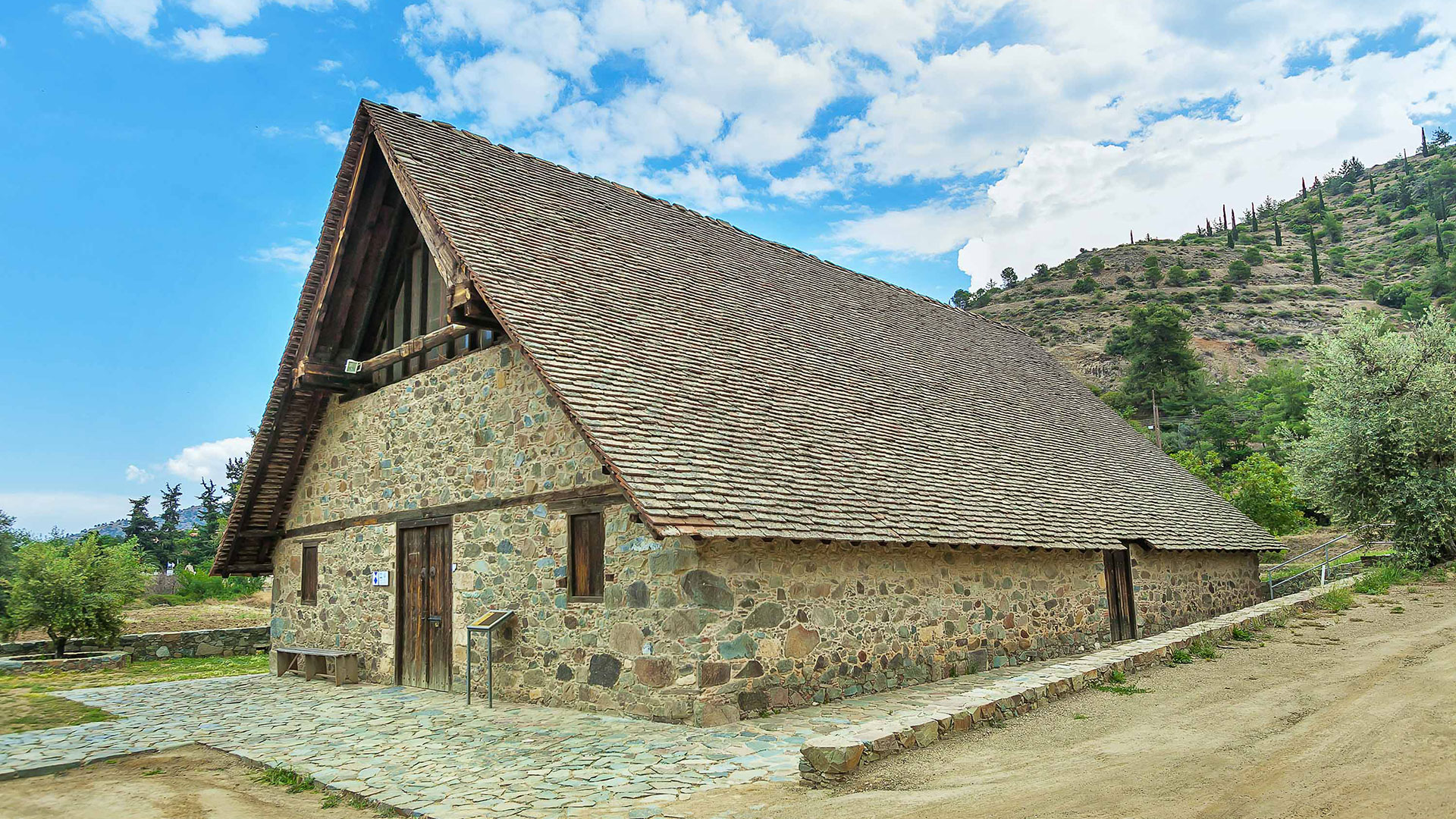
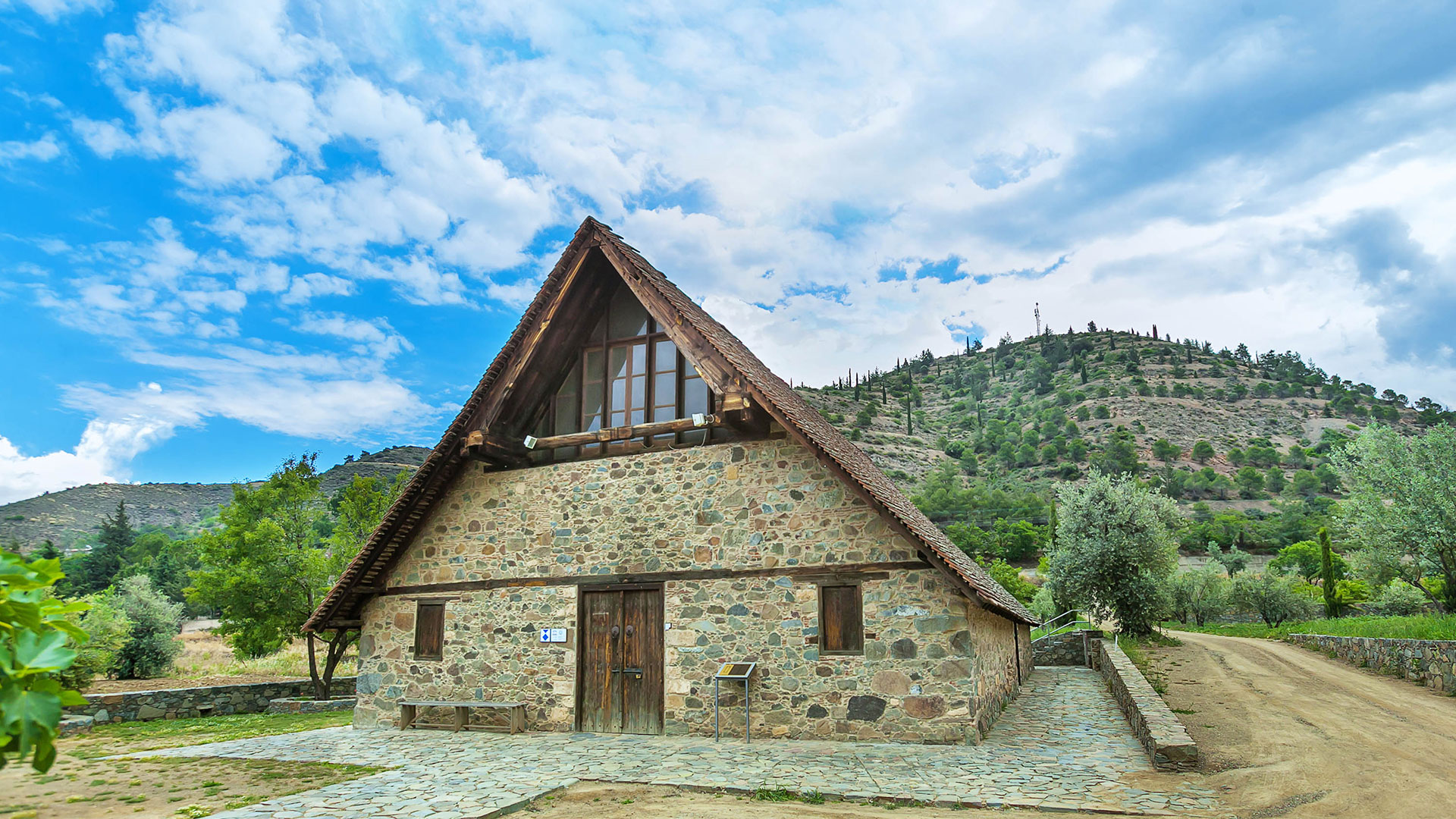
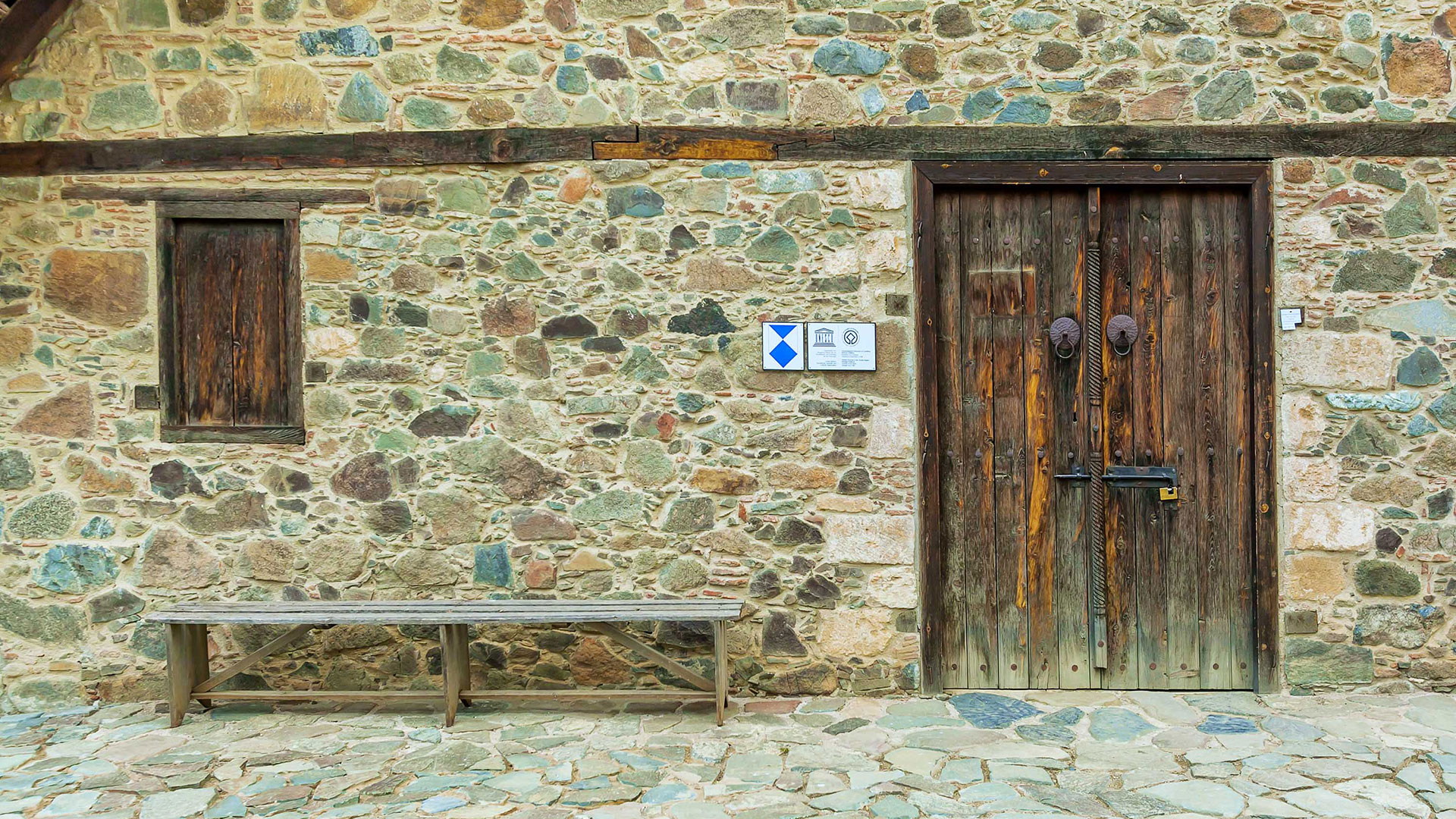
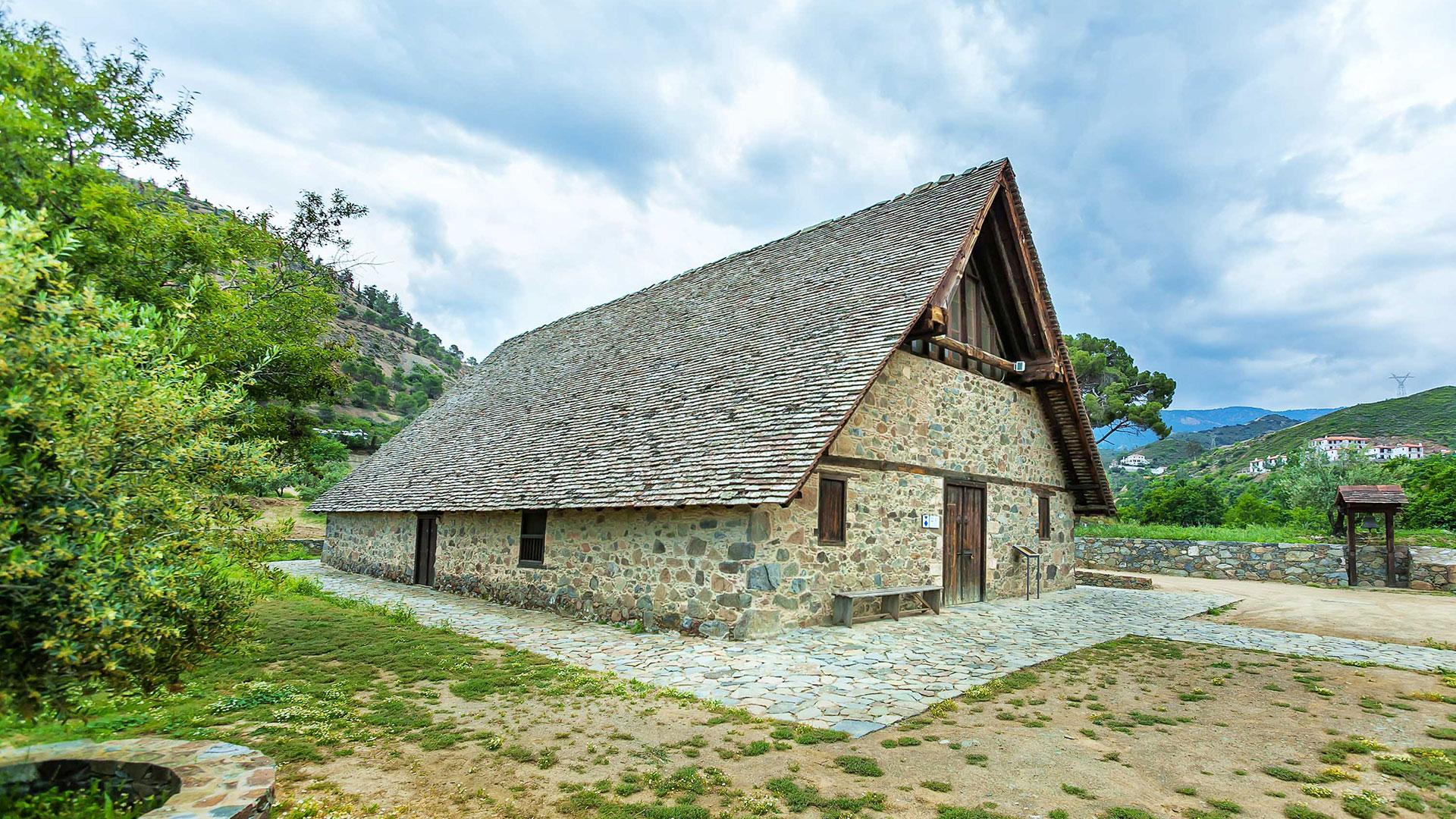
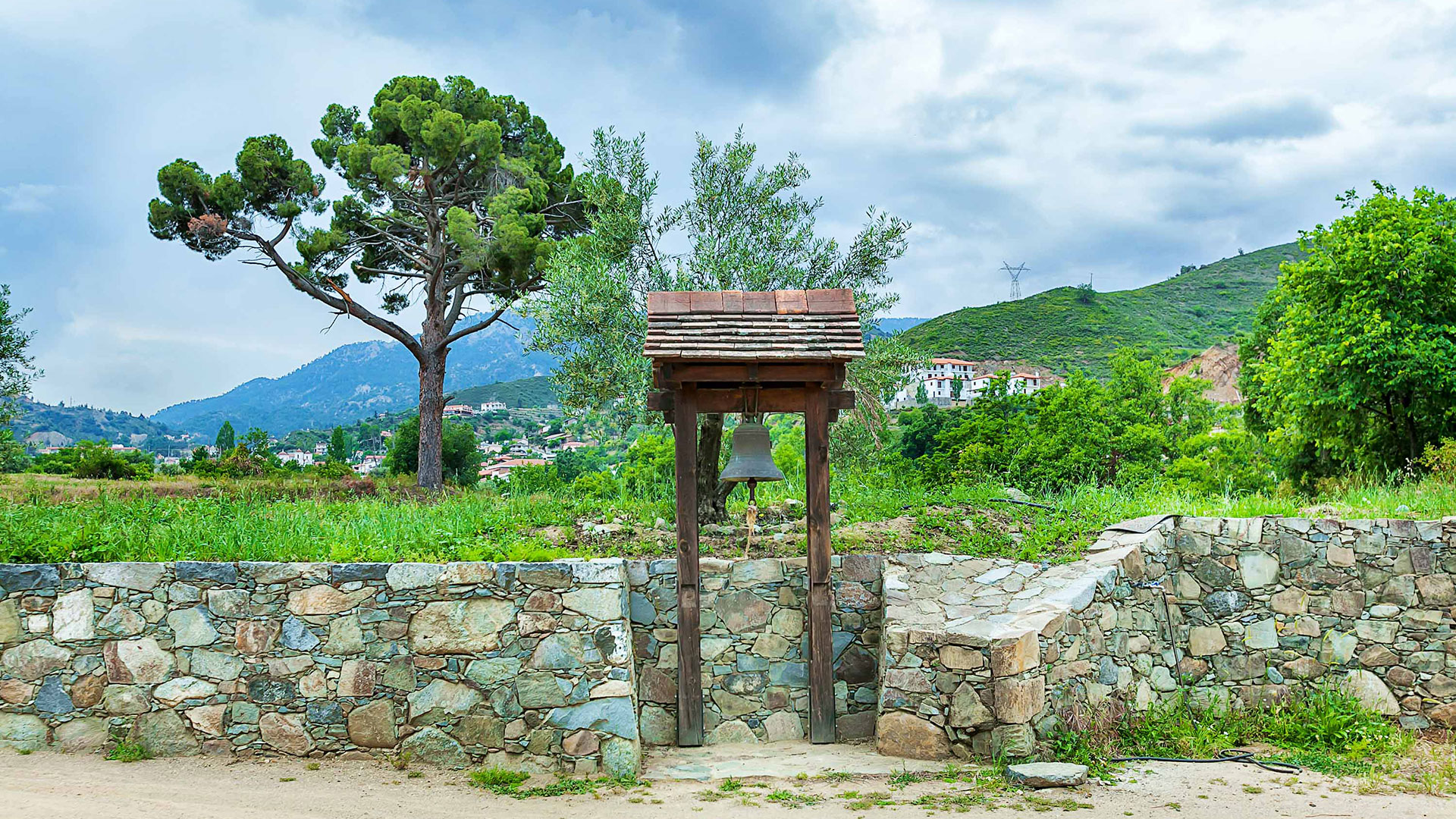
Panagia Podithos (Galata)
The monastery of Panagia Podithos or Podithos is located near the village of Galata west of the river Klarios (Karkoti). According to the founding inscription, his church, which is dedicated to the Virgin Eleousa, was built in 1502 by the Greek soldier Demetrios de Coron (before 1456-1502 or later) who had served as an official of the last king of Cyprus, James II. ΄ (1460-1473), and his wife Eleni. The church of Panagia Podithou has a rectangular shape and on its eastern side ends in a prominent semicircular arch. The walls of the church are built of raw stones and mud. The north and south walls are internally shaped with two blind arches each. The church has three doors, one in the middle of the north, west and south walls. High on the gable of the east wall there is a small rectangular window that retains its original material. The small, rectangular window in the middle of the arch was originally wider and arched.
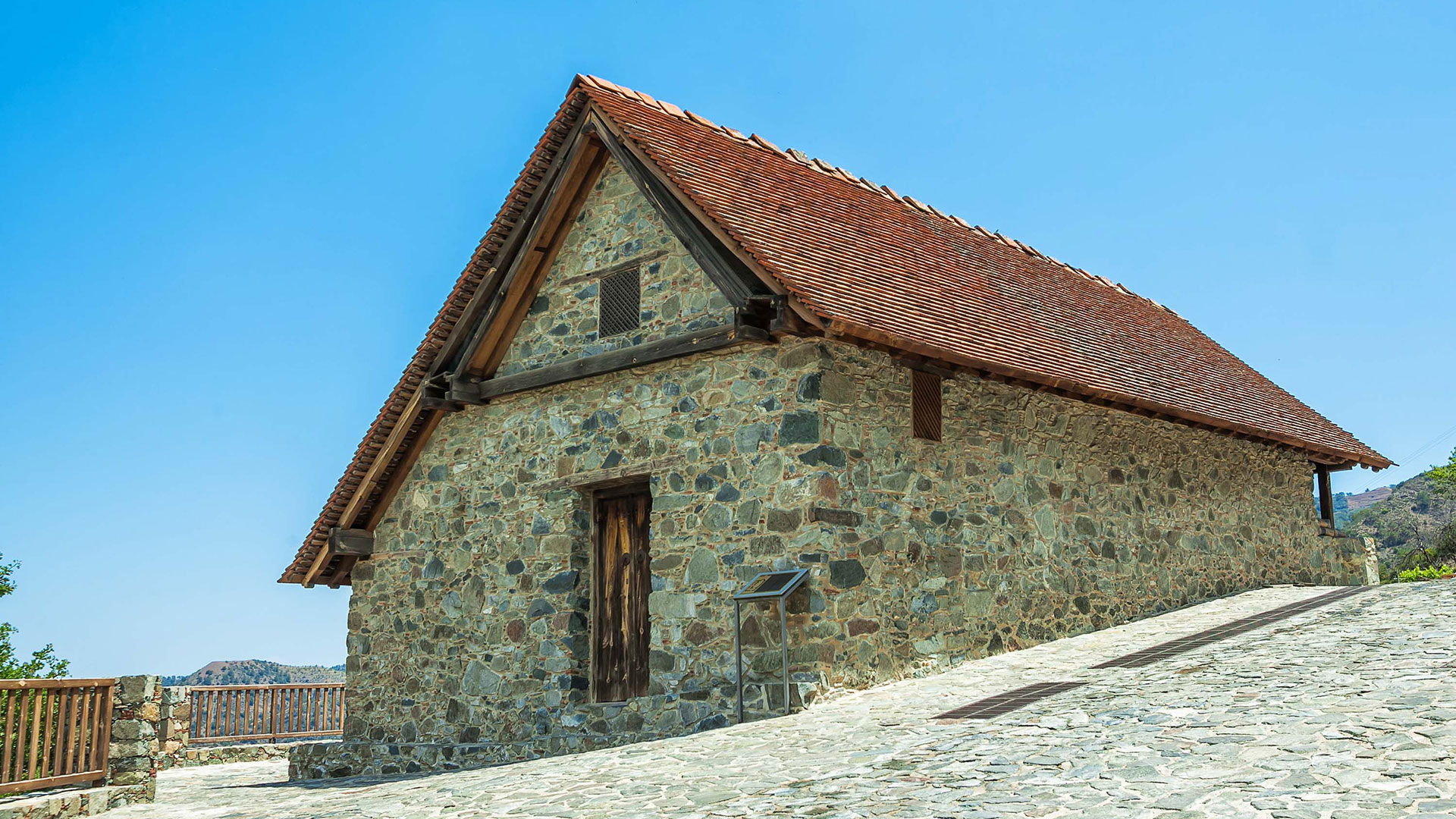
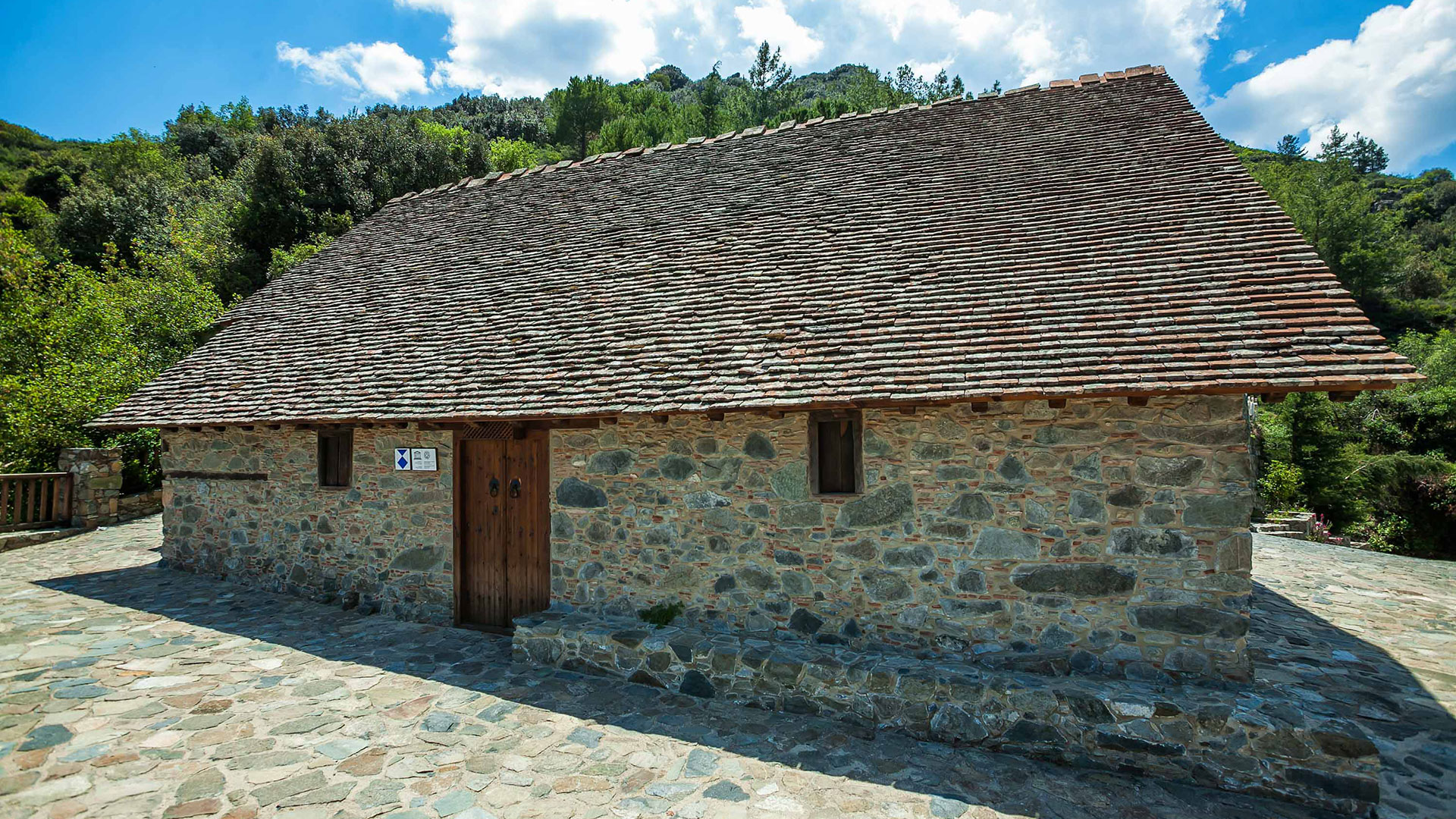
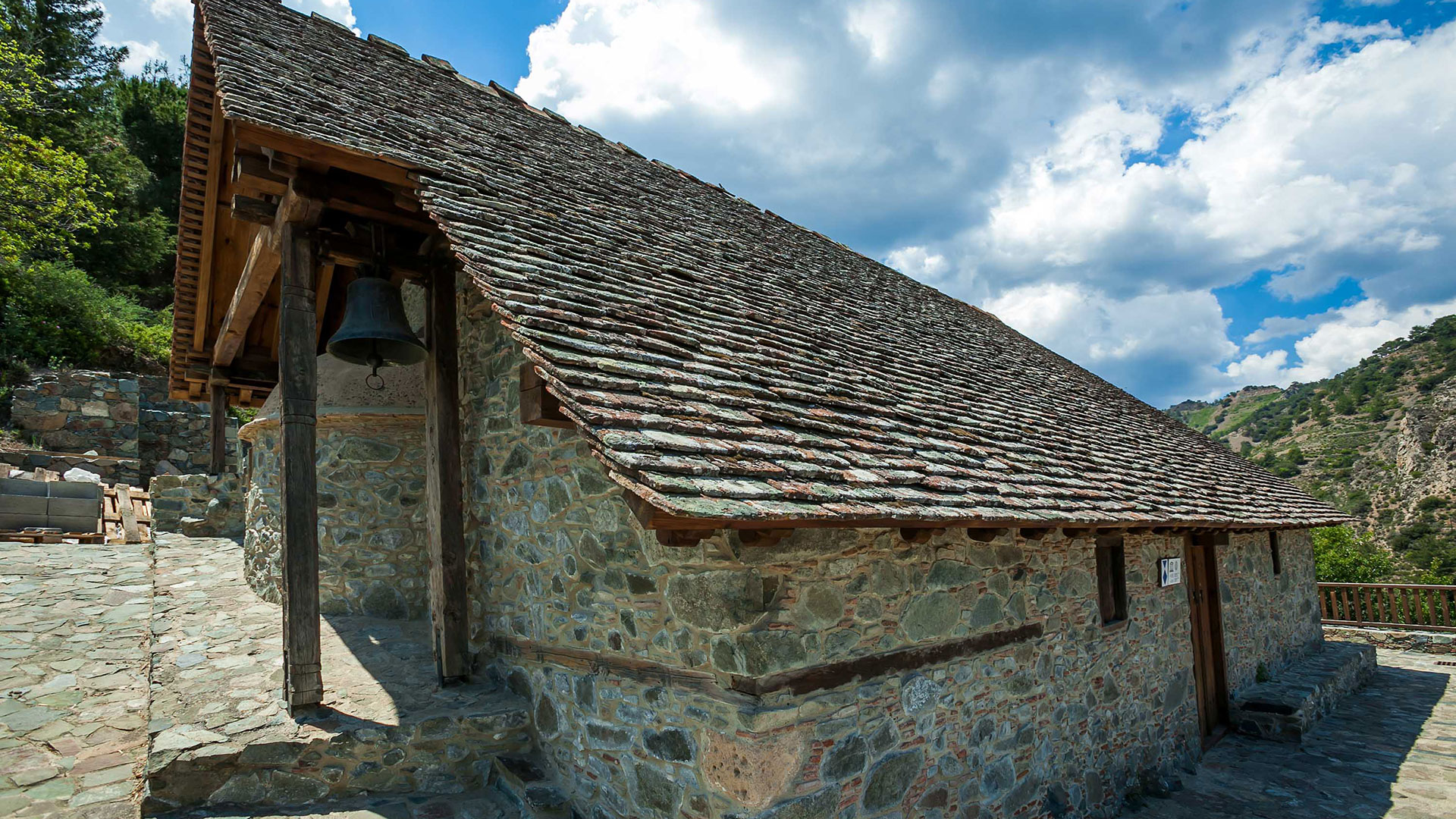
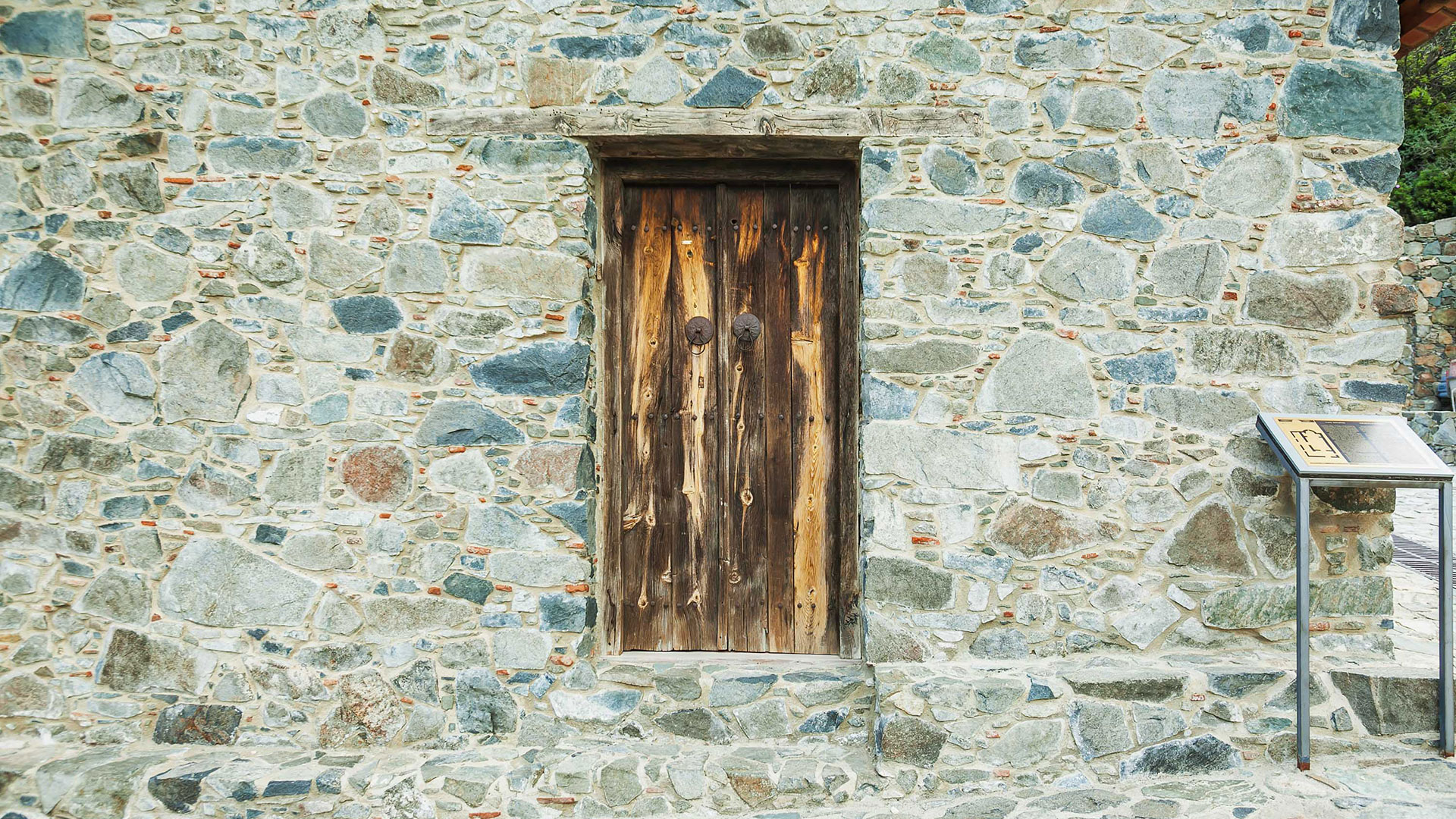
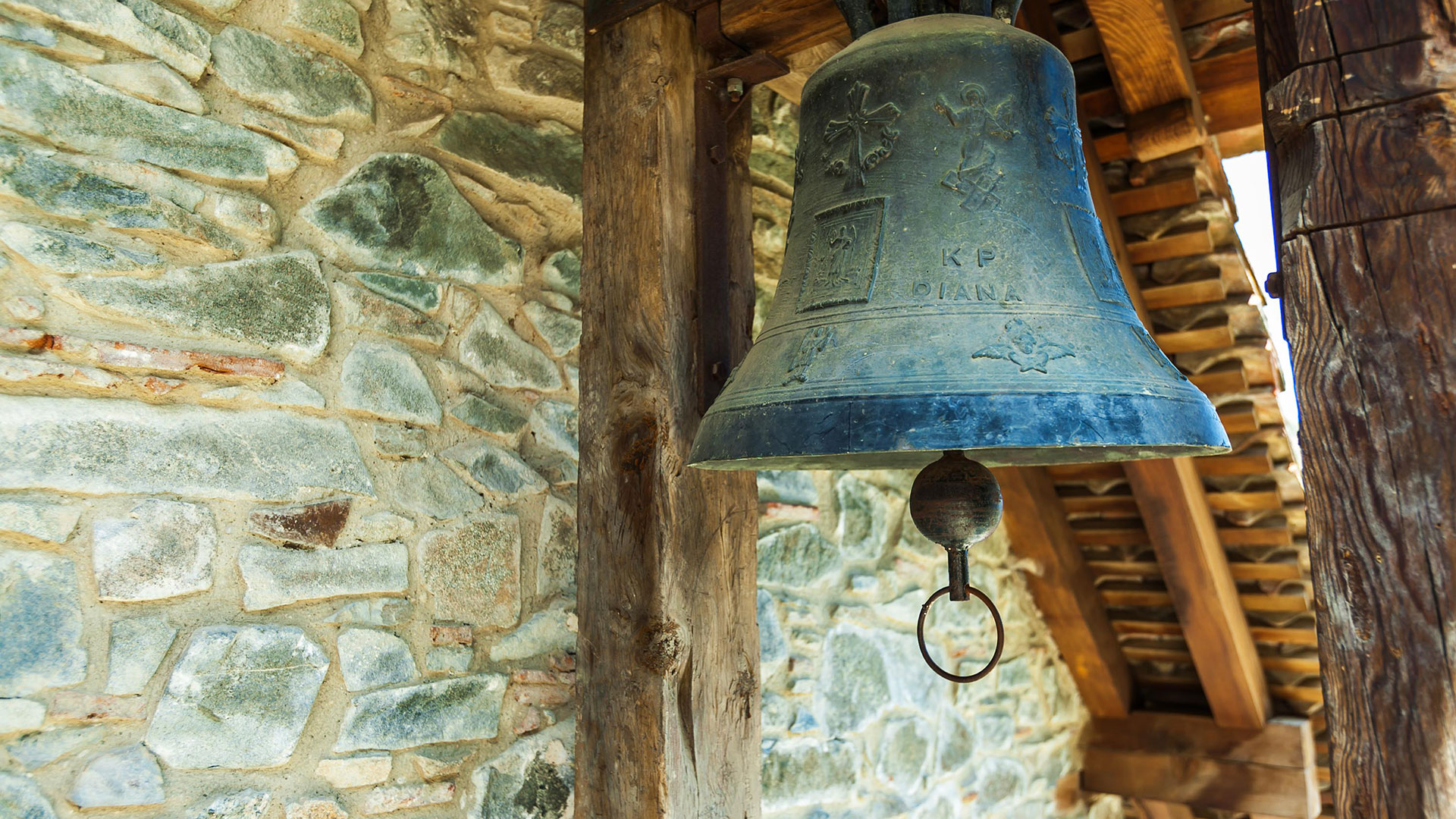
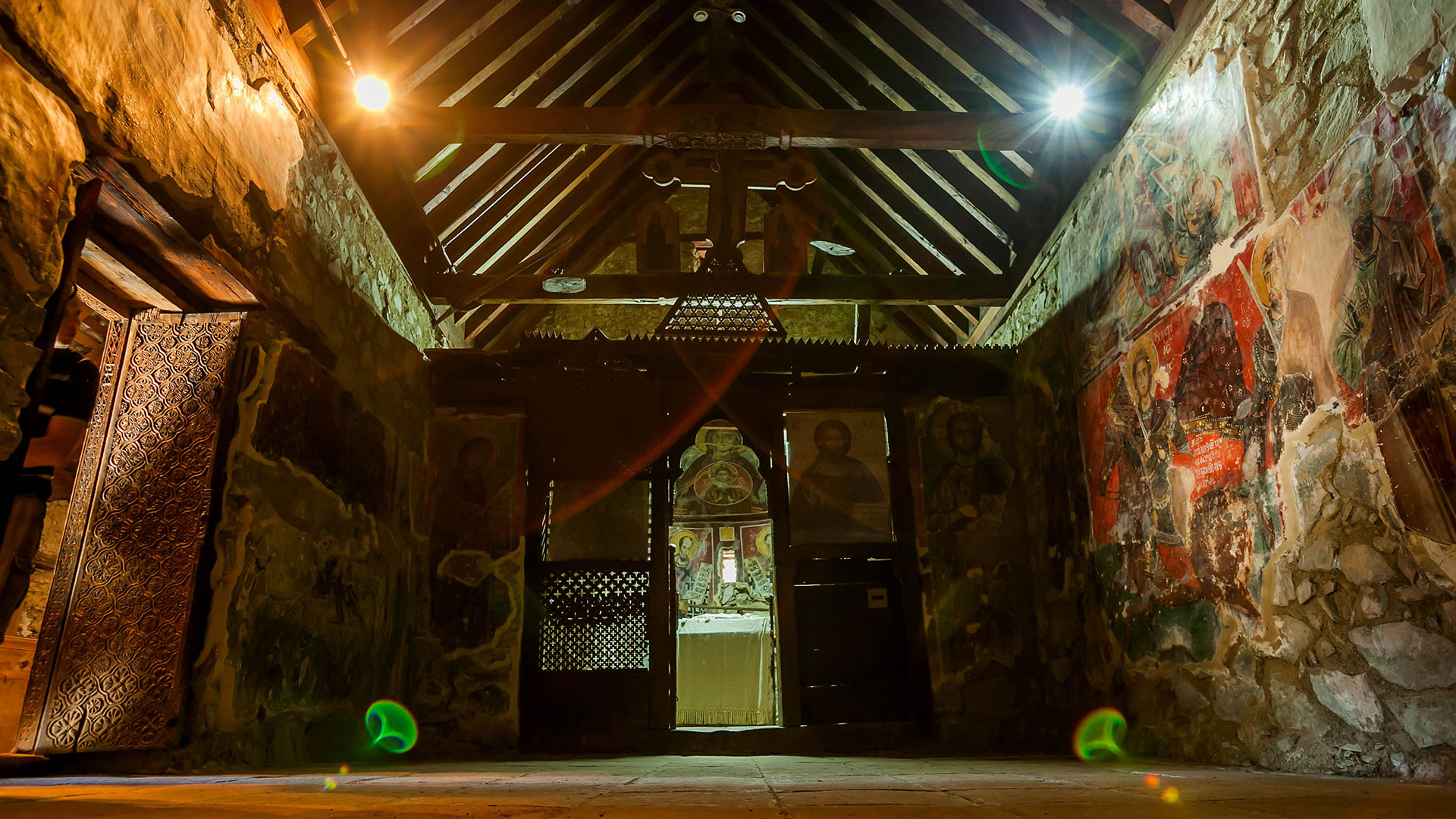
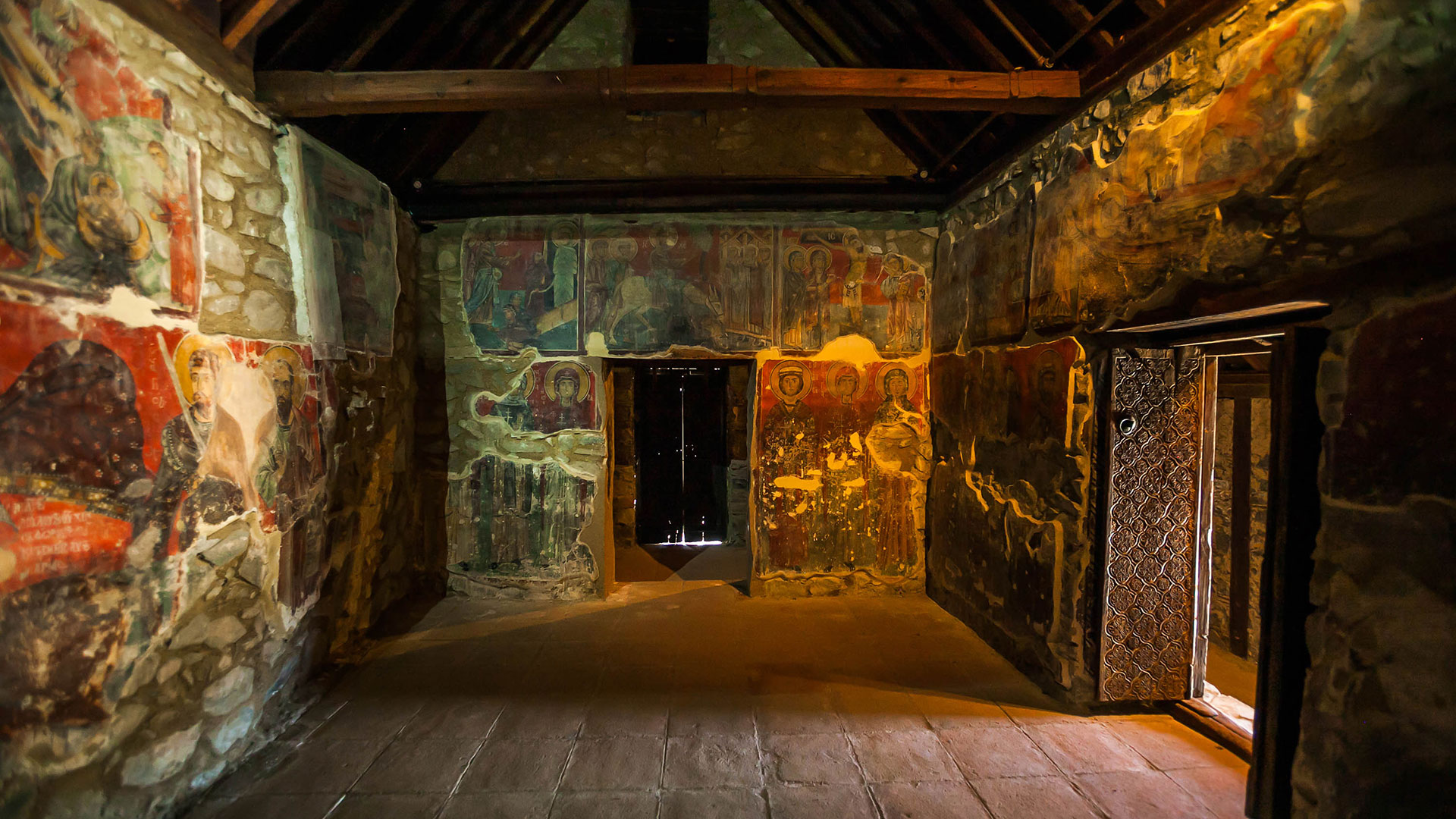
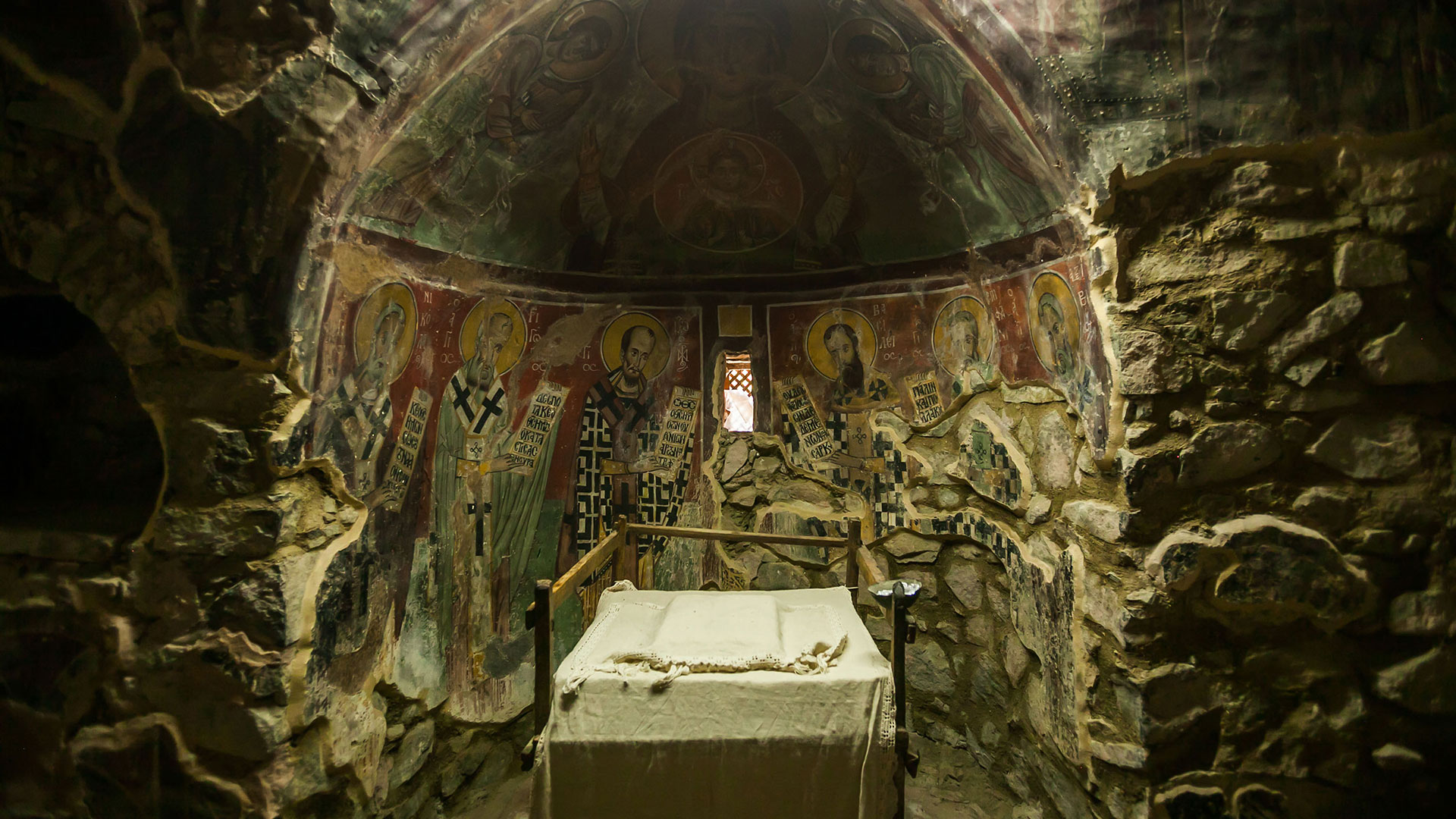
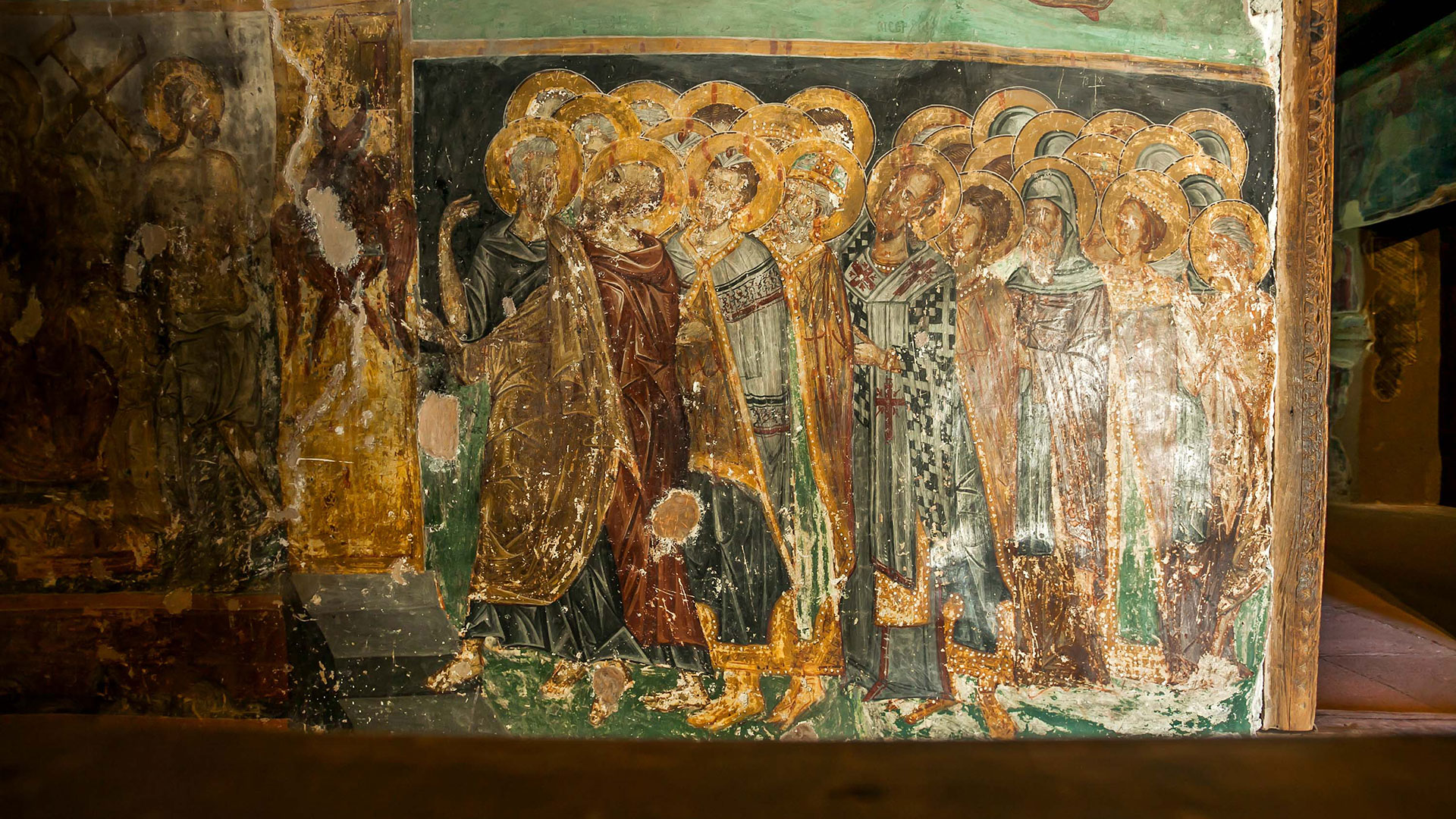
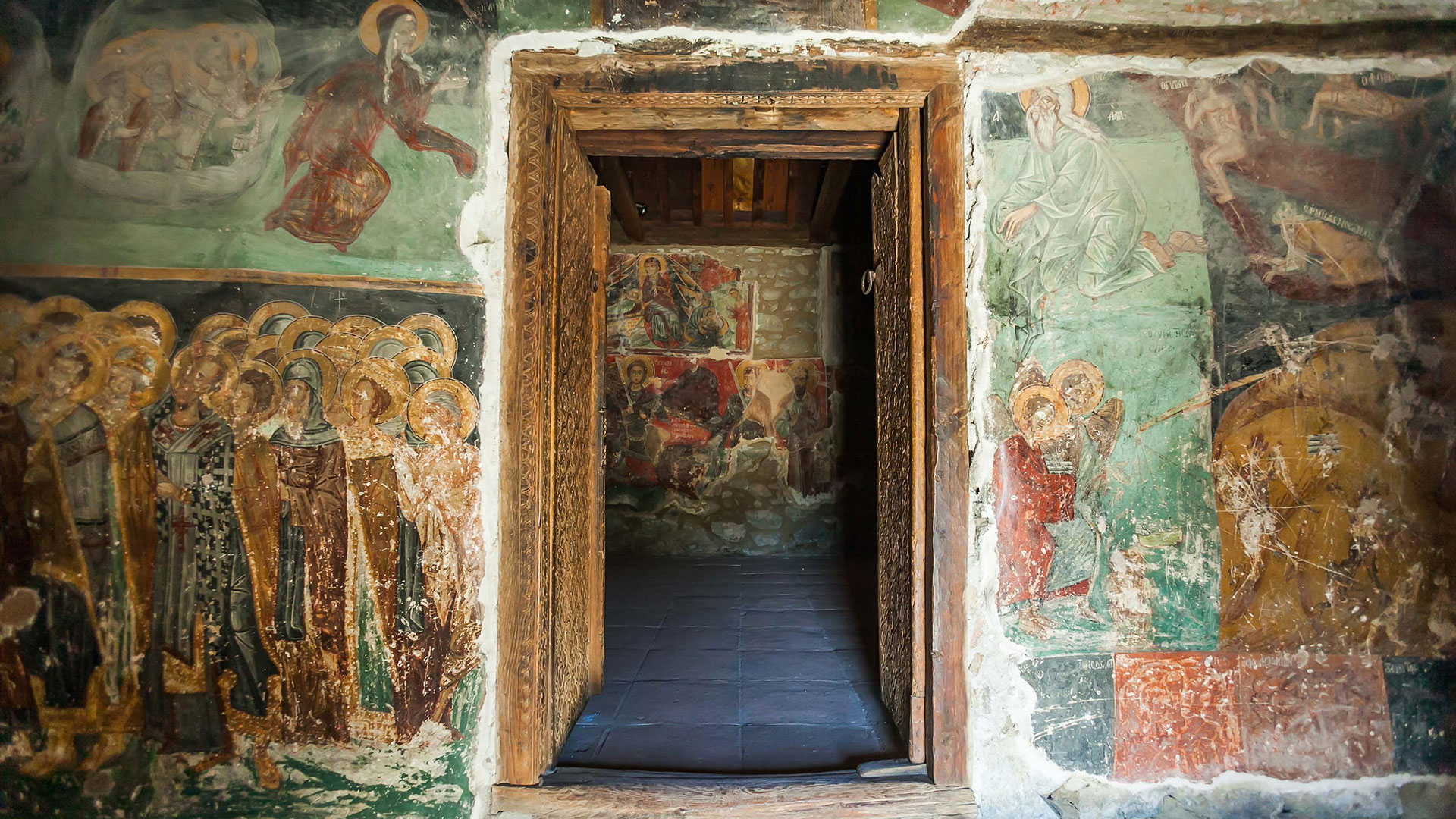
Panagia Moutoullas (Moutoullas)
The church of Panagia is located in the central area of the Troodos mountain range, in the valley of Marathas. It is built on a hill above the village of Moutoullas. It has been on the UNESCO World Heritage List since 1985, along with nine other frescoed Byzantine churches in Troodos. According to the founding inscription on the north wall of the Holy Step, the church was built and frescoed in 1280 at the expense of "John of Moutoullas" and his wife Irene, who are depicted holding the statue of the church. It may, therefore, be a private chapel. The church belongs to the well-known architectural type of the wooden single-aisled temples of the Troodos mountain range. The narthex was added later, after the beginning of the 16th century, and surrounds the west and north sides of the church. The wooden bifurcated roof also covers the splint.
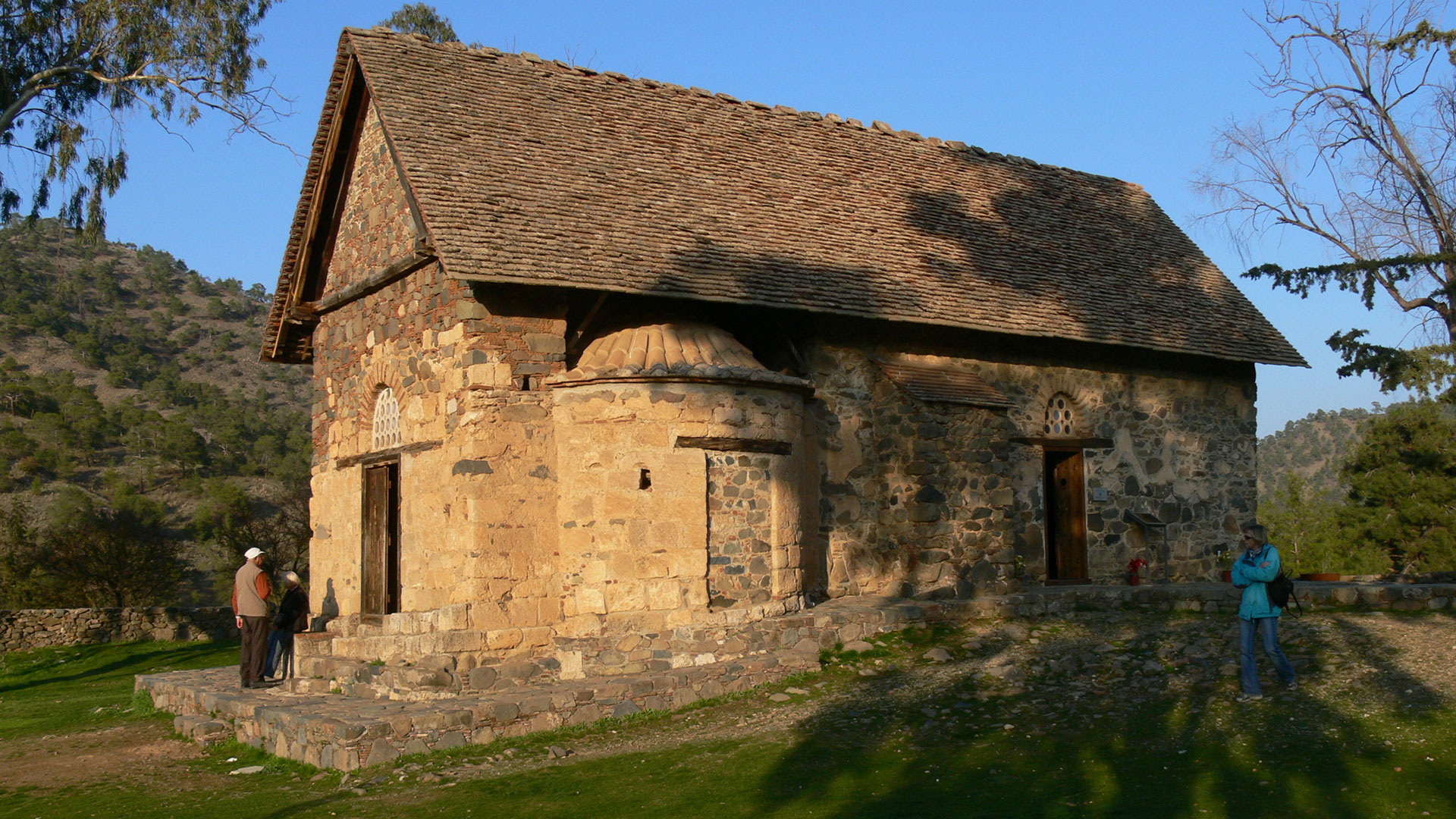
Panagia tis Asinou
Panagia tis Asinou or Panagia Forviotissa is a Christian church of the early 12th century, a catholic of a dissolved monastery, near Nikitari, Cyprus. The church is one of the nine frescoed churches in Troodos that have been declared UNESCO World Heritage Sites since 1985. The church is one of the churches with a slate roof in the Troodos Mountains, about five kilometers south of Nikitari. The name Forviotissa may come from the plant euphorbia, which is abundant in the area, and the name Asinos, may come from the ancient settlement of Asini in Argolida. The church was a catholic monastery. The monastery was known as Forbion Monastery and was founded in 1099. The monastery continued to operate until the Turkish occupation, and was abandoned in the 18th century. Today only the catholic is saved. The vaulted church of the church with the arch dates from the beginning of the 12th century and the vaulted narthex with arches to the south and north from the end of the 12th century. The church had a wooden roof from the beginning. The current wooden roof was built in 1959. [3] The frescoes date partly from the early 12th and partly from the 14th century. In a place on the south wall, the founding inscription is preserved: “The church of Agios Theotokos was painted after an urgent request and through the judge (official) Nikolaos Ischiriou when the Emperor was Alexios Komninos.
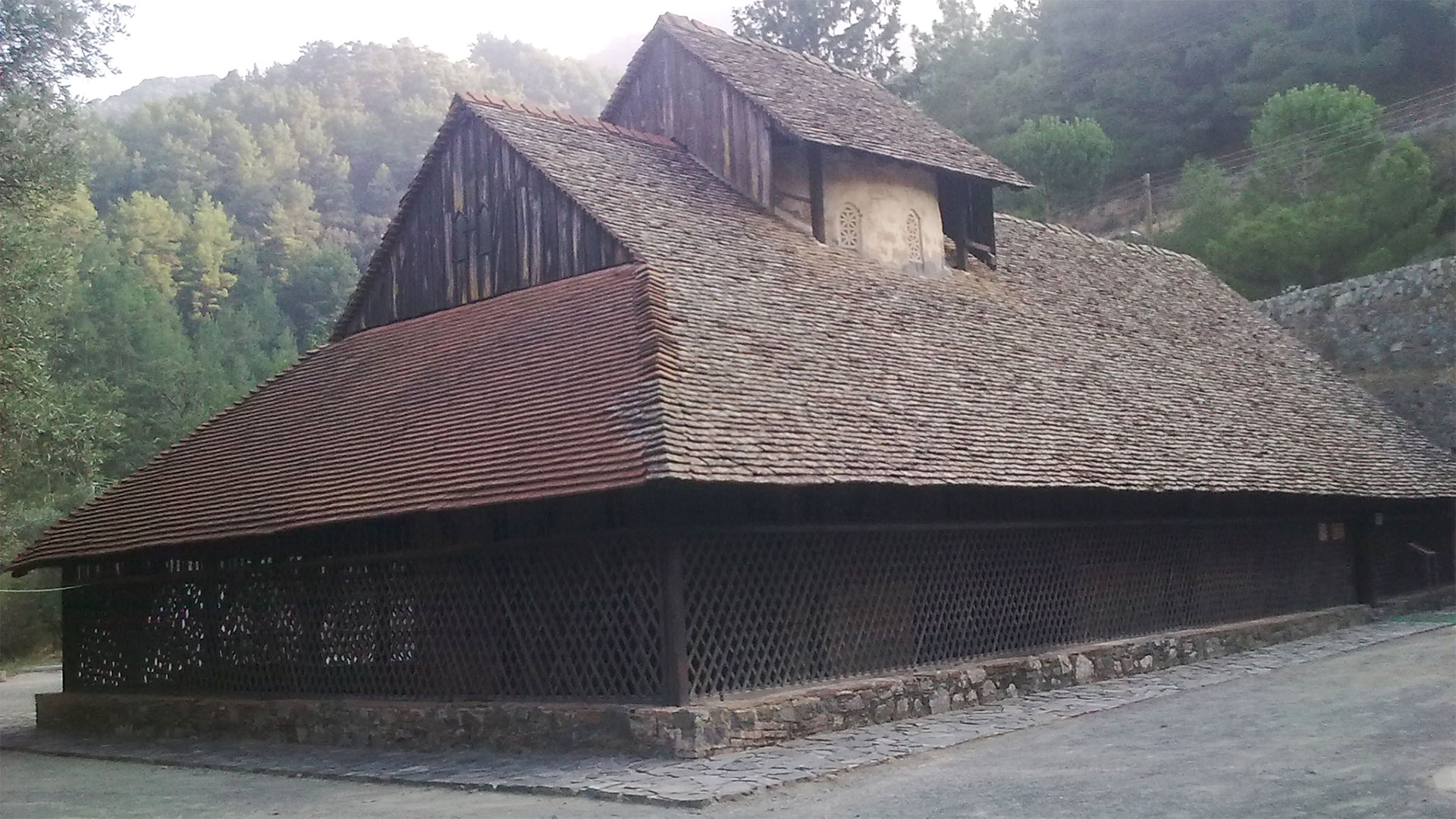
Panagia of Araka (Lagoudera)
The church of Panagia of Araka is located in a central area of the Troodos mountain range, in the geographical region of Pitsilia, between the villages of Lagoudera and Sarandi. It has been on the UNESCO World Heritage List since 1985, along with nine other frescoed Byzantine churches in Troodos. This is the katholikon of the homonymous Monastery that was built in the second half of the 12th century, at a time when the monastic life was flourishing in Cyprus. When the Russian monk Vassily Barsky visited the place in 1735, the monastery was in decline. Barsky states that only three monks lived there. According to other written sources, the monastery continued to operate until the first decades of the 19th century. Today, in addition to the church, a two-storey monastery building on its north side is preserved, which is used as the priest's residence. However, it is not clear that the church was founded as a monastery - it may have originally been a private chapel. The origin of the surname "Arakos" is doubtful: according to one version it comes from the pea plant, while according to a tradition saved by Barsky, the nickname of the Monastery comes from the word "hierarch", meaning hawk.
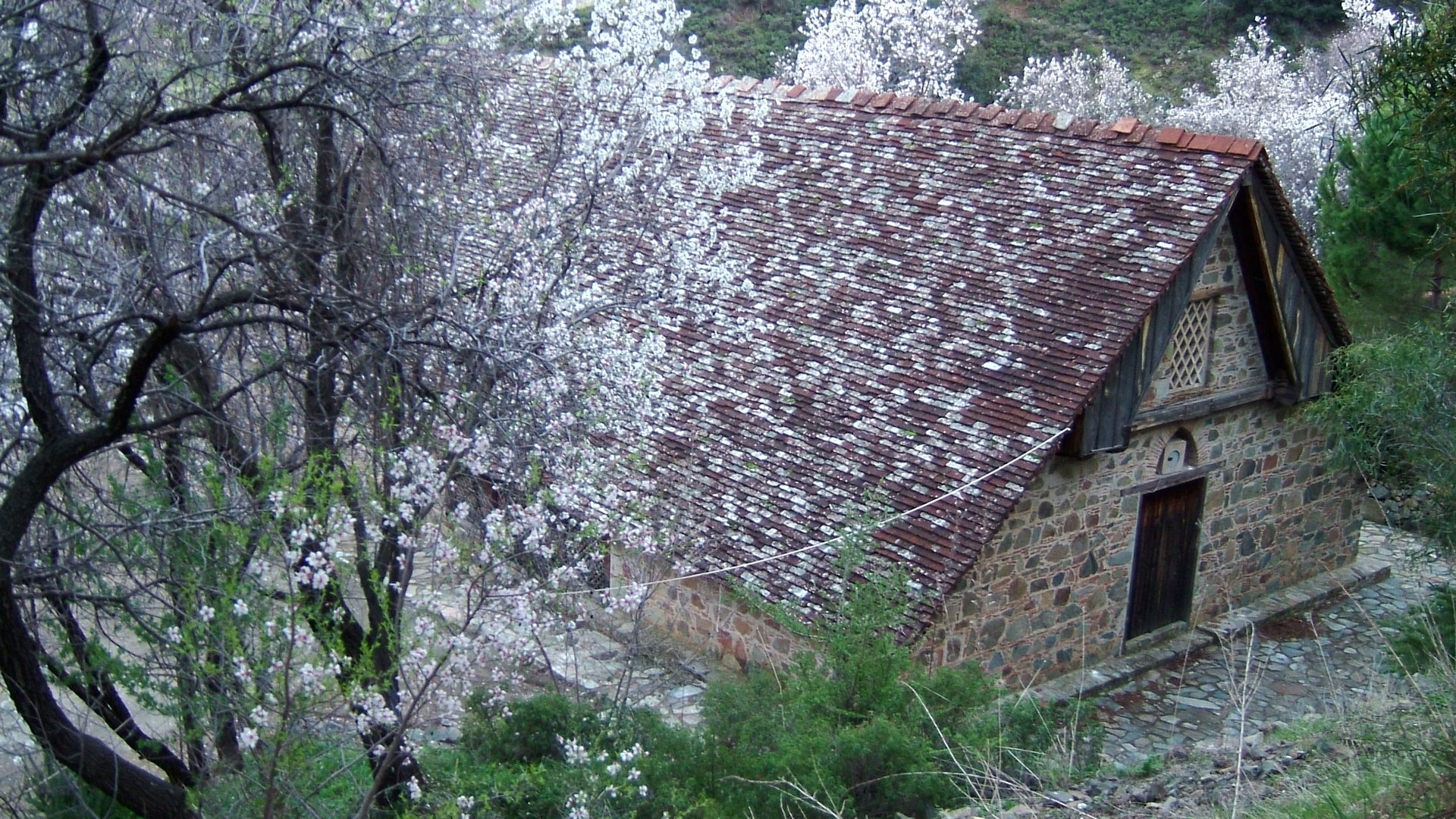
Holy Cross of Agiasmati (Platanistasa)
The church of the Holy Cross of Agiasmati is located in the eastern part of the Troodos Mountains, in the geographical region of Pitsilia, about five kilometers northeast of the village of Platanistasa. It has been on the UNESCO World Heritage List since 1985, along with nine other frescoed Byzantine churches in Troodos. This is the katholikon of the homonymous monastery that was built at the end of the 15th century. The Russian monk Vassily Barsky, who visited the island in 1735, states that the monastery has since been abandoned and only one monk, who was also abbot, and a lay servant lived there. According to some researchers, the name "Agiasmati" comes from the word Agiasma. Another version connects the name with the region of Agiasmati in western Asia Minor, a site mentioned in connection with the fall of Constantinople in 1453. One possibility is that refugees from this region fled to Cyprus and later founded a monastery in its mountains. of the island, giving it the same name as that of their particular homeland. Of the other monastic buildings, only a few ruins of cells in the southern part of the church survive today.
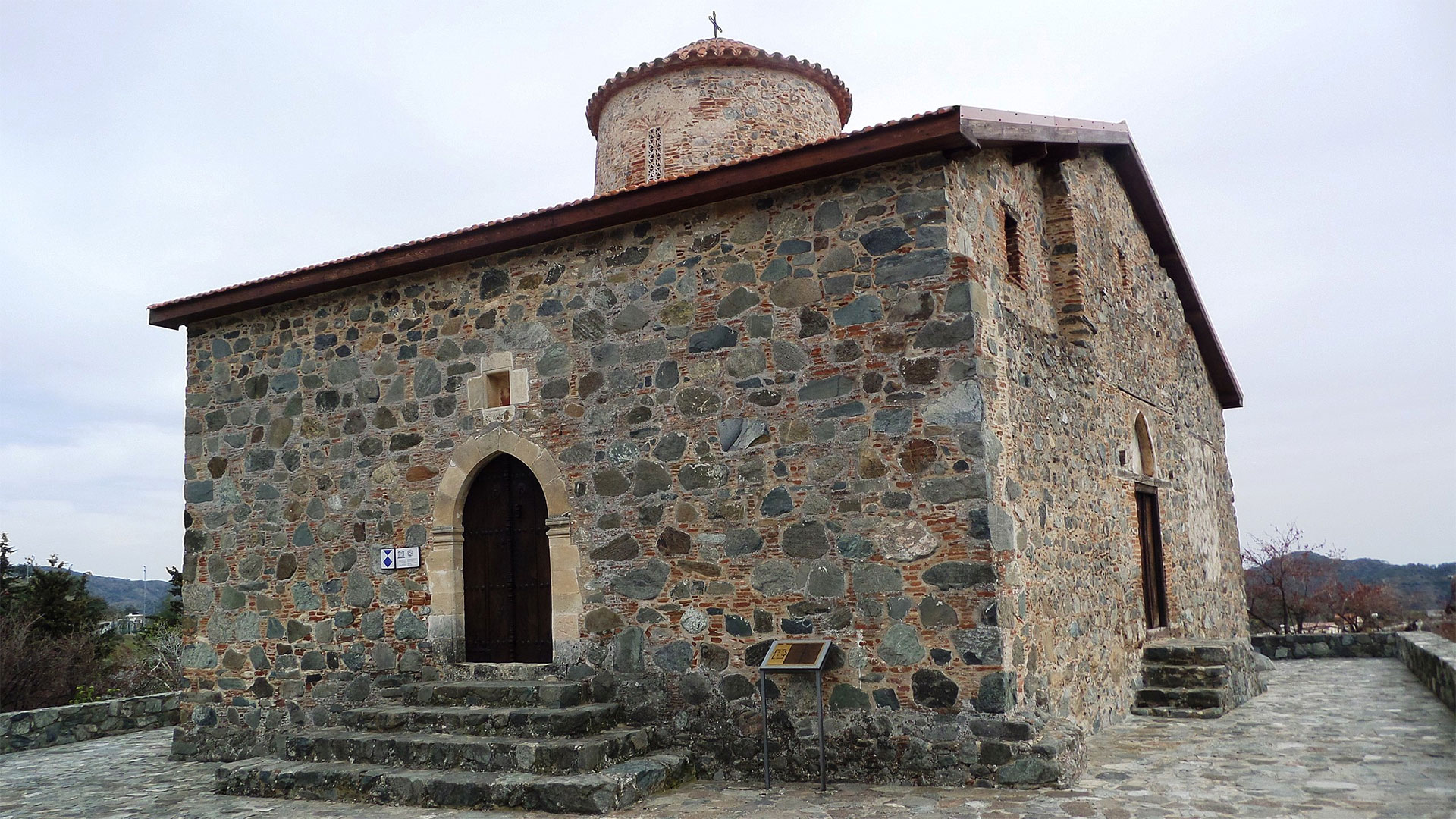
Holy Cross (Pelendri)
The Church of the Holy Cross in Pelendri is located in a central area of the Troodos Mountains, at the southern end of the village of Pelendri, whose existence is attested from the end of the 12th century. Since 1985 it is included in the list of UNESCO World Heritage Sites, along with nine other frescoed Byzantine churches in the Troodos Mountains. The current form of the church of the Holy Cross is due to additions and interventions of different eras. Its initial phase dates back to the middle of the 12th century and probably belonged to the type of single-aisled church with a dome. It may even have been a cemetery. The first architectural phase was destroyed for reasons unknown to us. Only the arch of the Holy Step survived this destruction, which was then integrated into a new building of the same type that was erected in the late 13th or early 14th century. A series of interventions followed, during which parts of the temple that collapsed were either rebuilt or removed and replaced in an enlarged form. The northern aisle is a little later and clearly dates before the middle of the 14th century, while the southern aisle was added in the 16th century. The end result is a three-aisled building with harmonious proportions, which hide its turbulent architectural history. Church of the Holy Cross, Pelentri According to the inscription preserved in the arch of the Holy Step, the original illustration of the church dates back to 1171/2. Parts of this phase are preserved in the arch of the Sanctuary, under the layer of 14th century frescoes. This is a rare 12th century style for the churches of Cyprus, which resembles modern examples from churches in Greece, Cappadocia and Crete.

Trails
Around our hotel there are 4 known paths. The path Persephone is a path with rich vegetation. On the Atalanti path you will admire one of the largest invisible trees, 800 years old! On the Artemis trail you will have the opportunity to explore the forest: the two centuries-old black pine trees over 500 years old, the rich and rare flora and rocks of the area. The path Caledonia that is known for the waterfall with exceptional beauty. And the path of Teisia of Madari where, in addition to the contact with nature, offers a panoramic view of Troodos, the lowest points of Solia, Mesaoria and the closest plan to the villages of Kannavia and Agia Irini.
LEARN MORE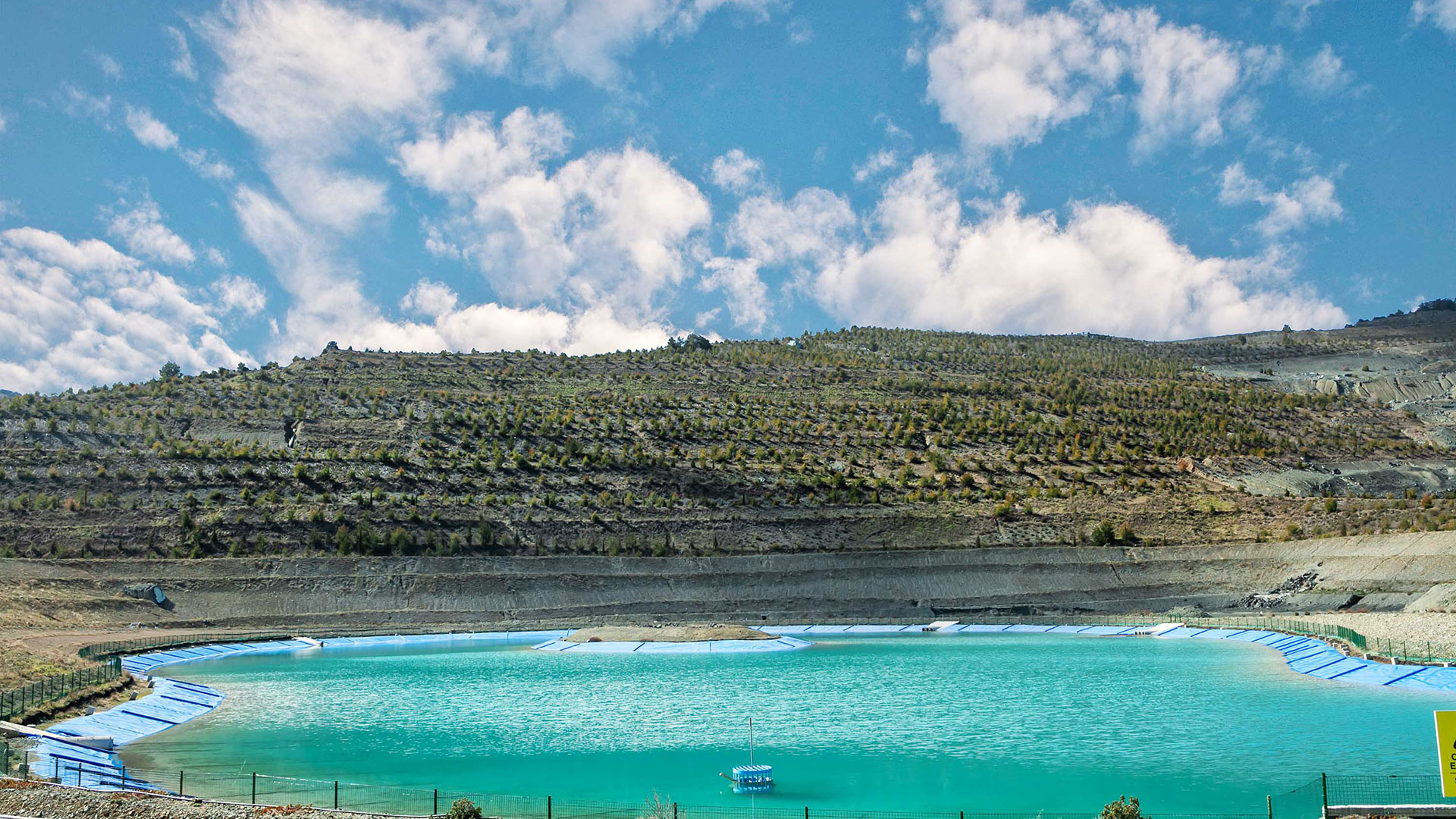
GEOPARK
The Troodos Geopark Visitor Center is an area of 1,147 km2 and is located in the old mine of Asbestos. The old mine has a special historical value and now houses a beautiful Botanical Garden with information about the flora of the area, Seed Bank of endemic species and a wealth of evidence for the previous action of the mine, its life and people. The Visitor Center of the Geopark is housed in the old Primary School of the Mine, an excellent building of old architecture, which exhibits, among other things, collections of rocks and minerals from the Troodos Mountains, while promoting information and educational material on its geological importance. For more information please visit the website of Geopark.
OPENING HOURS: Daily 09: 00-16: 00, except Monday
ENTRY: Adults € 3 Children € 2. Special price for groups of 10 people or more.
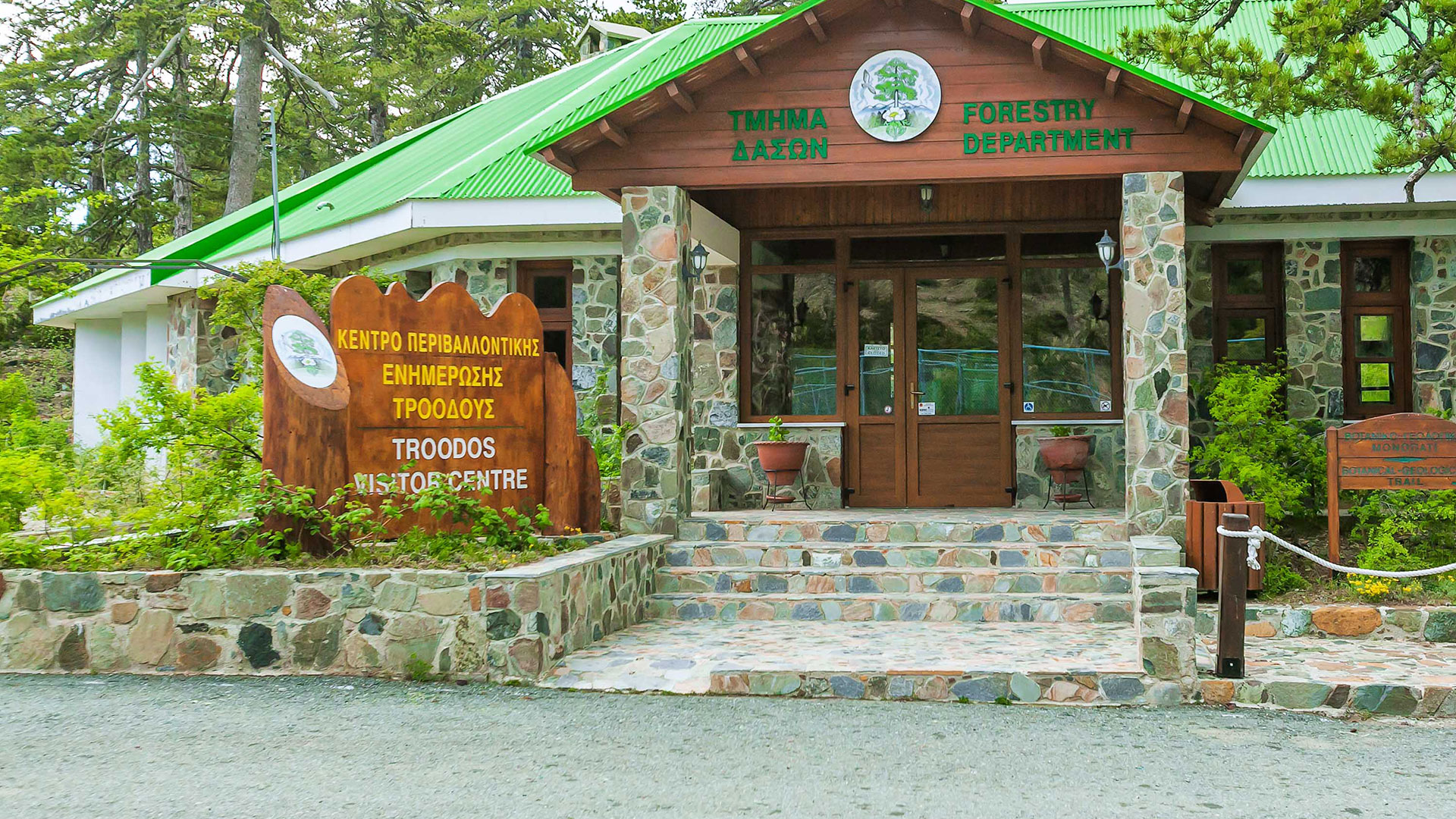
Environmental Center
The Environmental Information Center is located 200m west of Troodos Square. The purpose of the Environmental Center is to highlight the importance and uniqueness of the Park and to inform visitors about environmental issues. It operates daily with a set schedule and there is a small entrance fee. Includes exhibit room, projection and lecture hall and small shop. Outside the center there is a circular botanical and geological path.
LEARN MORE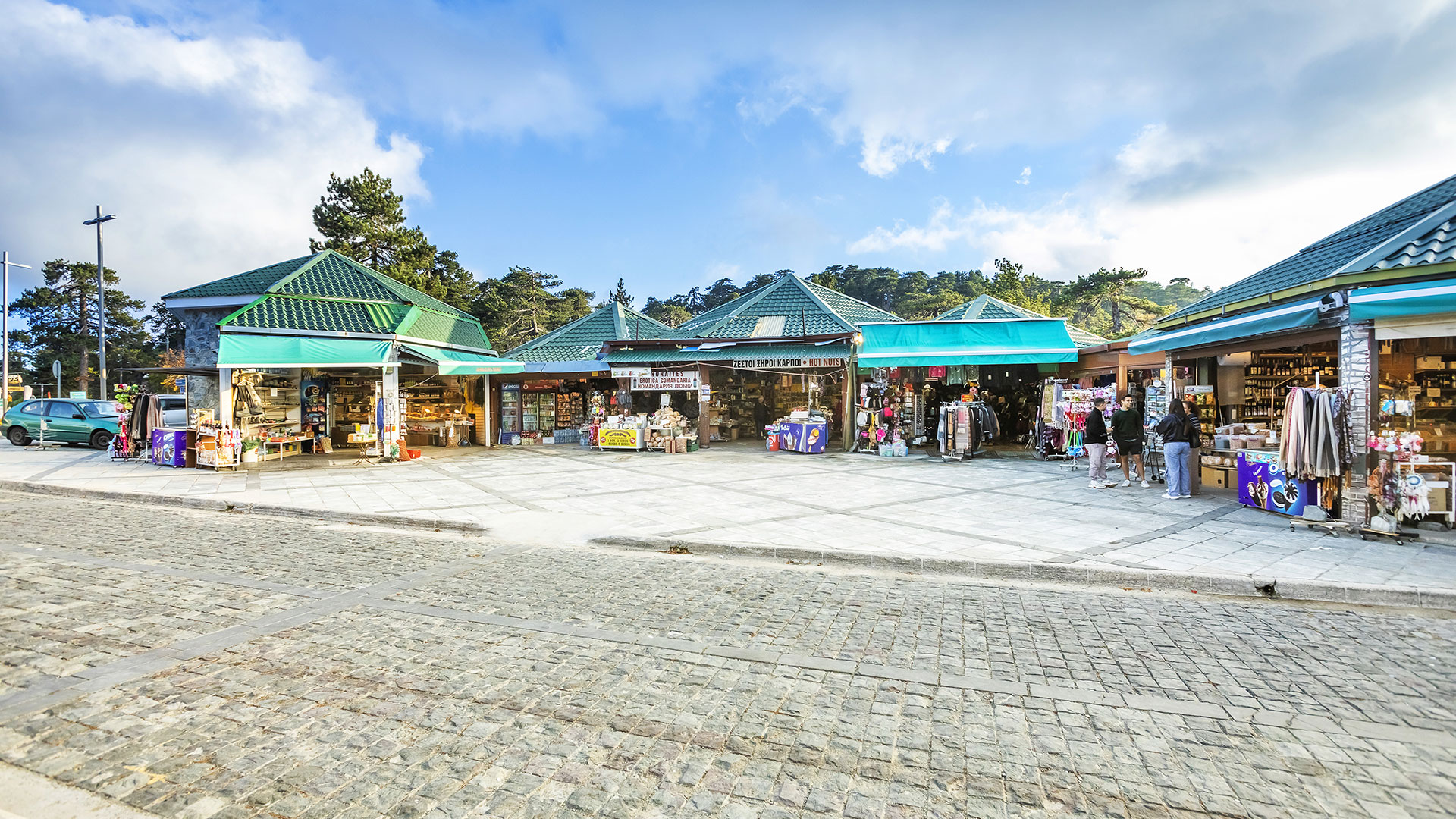
Square
Troodos Square is a picturesque traditional square that is also an ideal tourist destination. In the square there are two cafe bars that also operate as restaurants. In the area there are 8 kiosks from which visitors can get souvenirs and traditional products of the wider area (grape products, nuts). The square also has a park for children to have fun.
LEARN MORE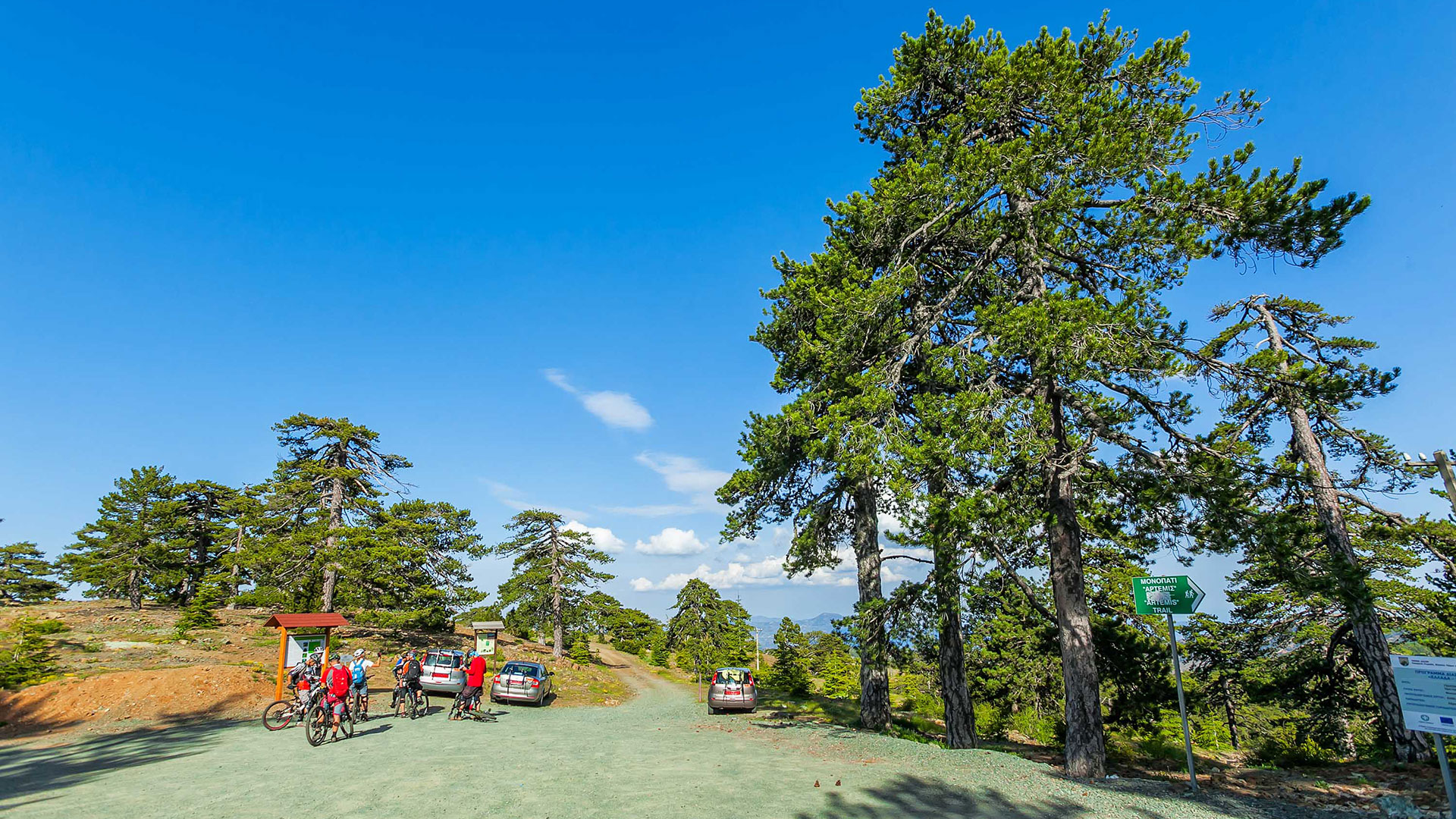
Cycling routes
If the term "mountain biking" brings to mind images of arduous uphill routes, forget it! The reality on Troodos bike paths is very different. The Troodos network of bicycle routes is synonymous with roads and paths of unique natural beauty and low degree of difficulty. Like everything on the island of Aphrodite, cycling in Troodos is an experience of love. In the natural cycling network of Troodos (length 57km) the altitude difference between two points never exceeds 400m.
Route table
Route Starting point End point Distance
Tall Tree (Platres) - Karvounas Pano Platres (Tall Tree), height 1200m Karvounas, altitude 1180m 16.2 km
Karvounas - Prodromos Karvounas, h. 1180m Prodromos, altitude 1380m 22.7 km
Prodromos - Tall Tree (Platres) Pano Platres (Tall Tree), h. 1200m Pano Platres (Tall Tree), height 1200m 18.2 km
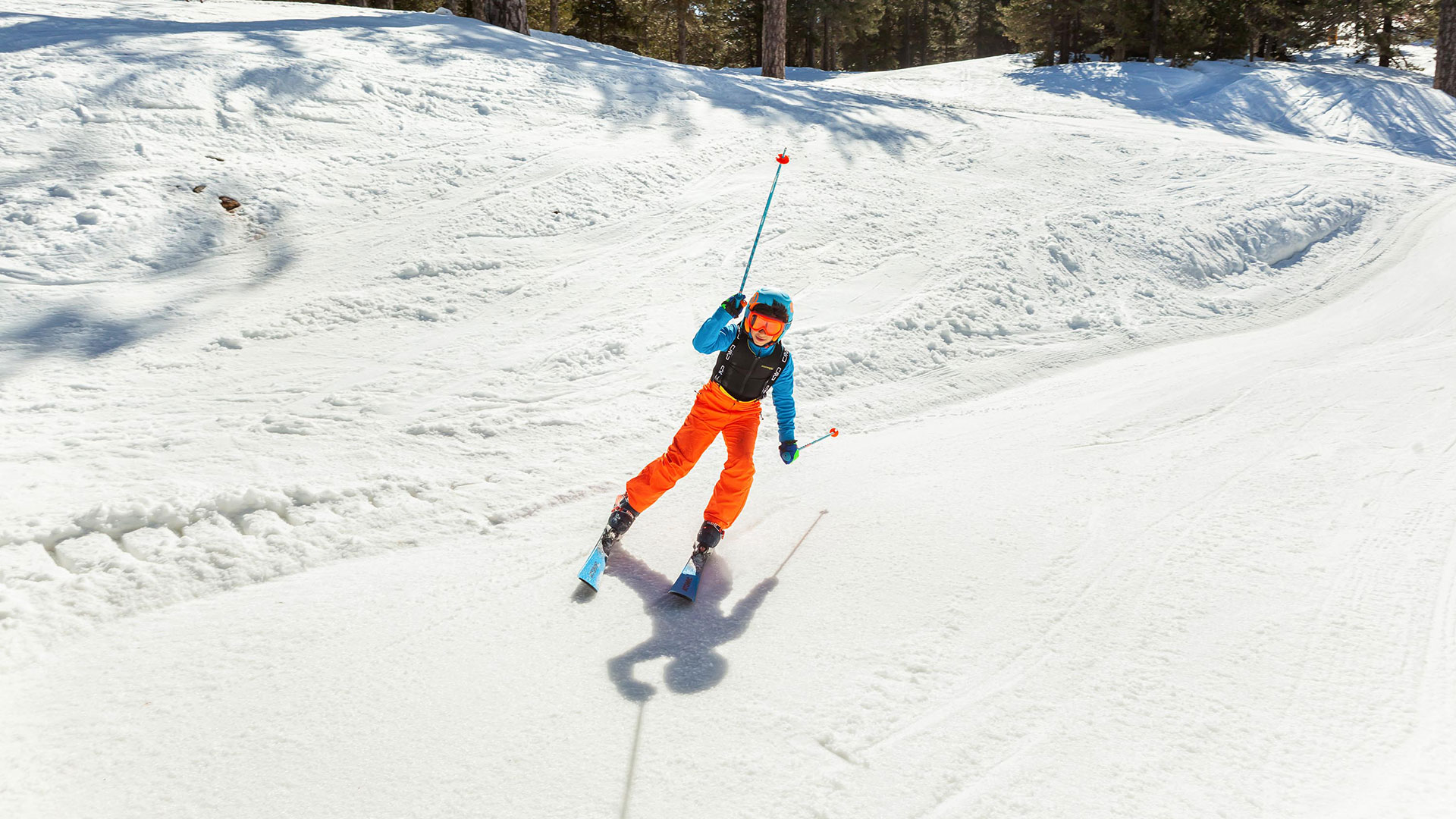
Ski Center
Cyprus Ski Club is the only ski resort on the island of Cyprus. It has 3 ski lifts and a chair lift at the top of the Olympus or Chionistra mountain range, from which 8 different routes start. The routes are suitable for all levels of experience: for beginners, intermediate people, but also "masters" of the sport. There are two slopes in the Sun Valley area, Sun Valley I (Venus) and Sun Valley II (Mercury). They are the starting point of 4 routes and have two type T ski lifts. Type T ski lifts can carry two people at the same time. On the north side of Olympus are the tracks North Face I (Jupiter) and North Face II (Hera), from which another 4 routes start. The two ski lifts that lead to the slopes are type T and chairlift (3 people). These ski lifts carry more than 400 people per hour. Each ski lift has its own base with a small cafeteria, while everything is connected in a single trail network. The opening hours of the lifts are 09.00-16.00.
LEARN MORE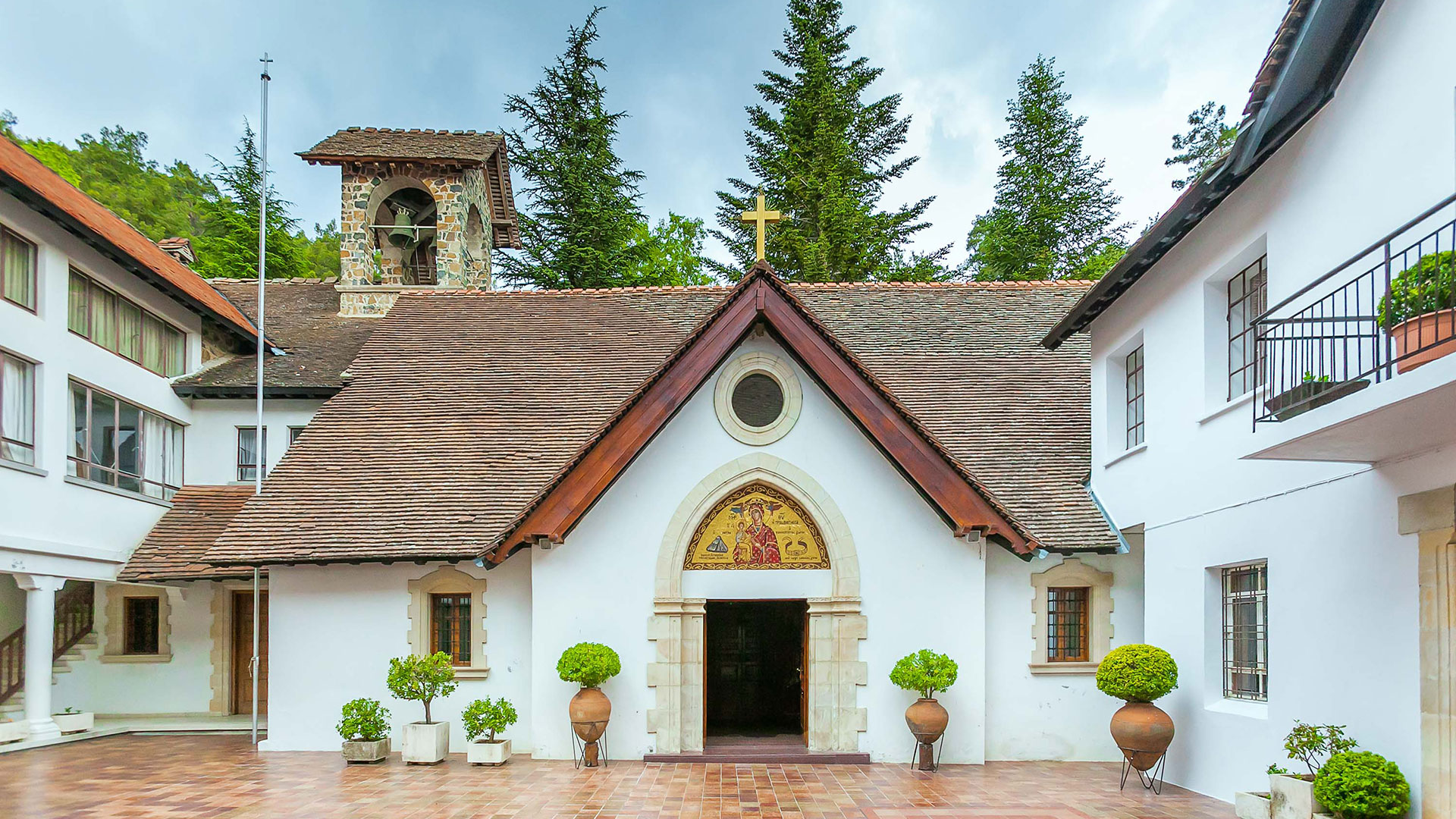
Monasteries
At a short distance from the hotel there are numerous monasteries worth visiting. The Monastery of Trooditissa, the Monastery of Panagia Trikoukkiotissa, the Monastery of Timios Prodromos, the Holy Monastery of Kykkos are some of the many Monasteries that you must visit.
LEARN MORE
Churchies of Unesco
In the mountains of the Troodos Mountains, in the central part of Cyprus, are some of the most important monuments in the history of Byzantine painting. These are frescoed churches that preserve to this day excellent samples of the various currents of Byzantine and post-Byzantine monumental painting, from the 11th to the 19th century.
LEARN MORE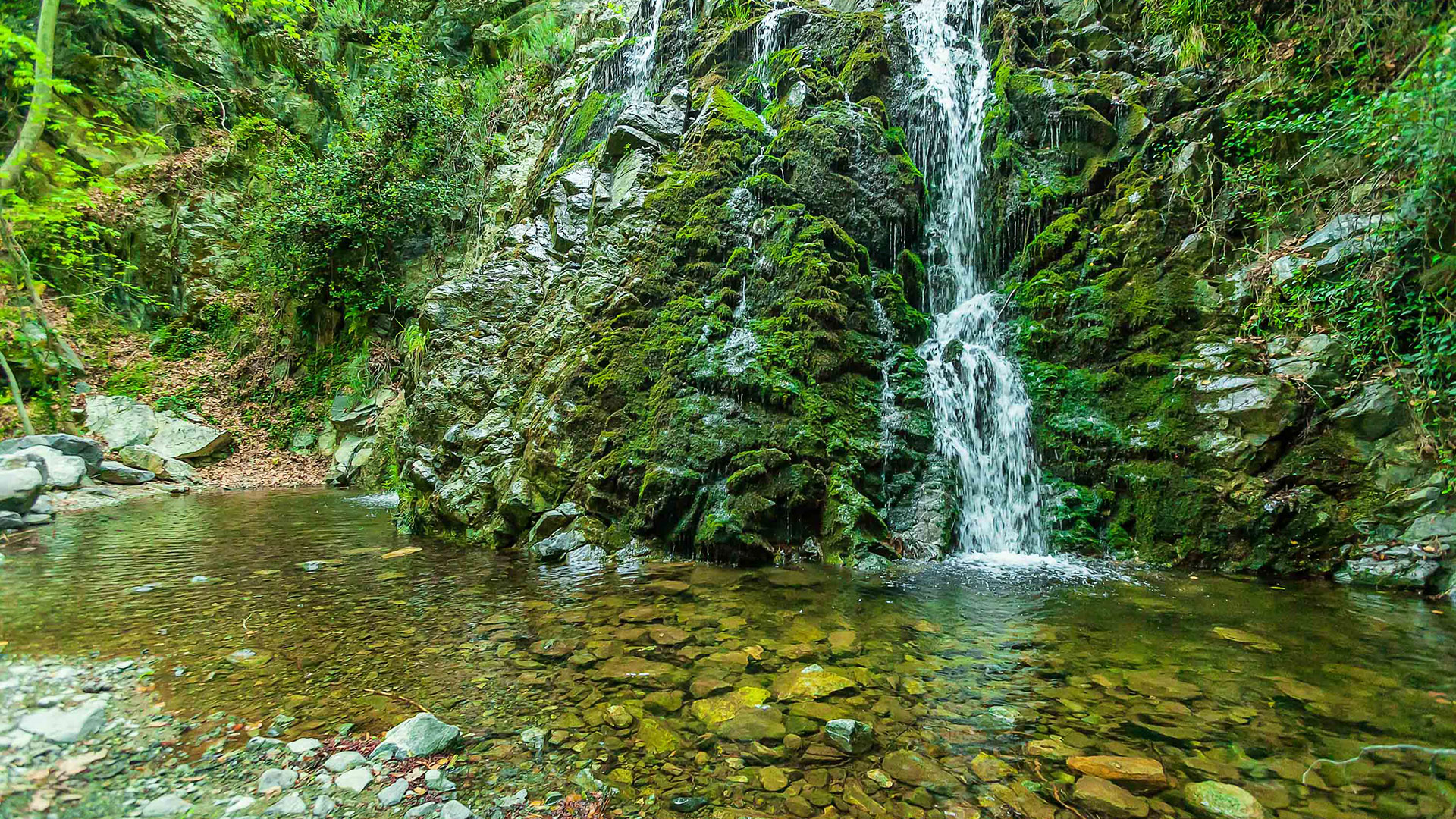
Waterfalls
The Troodos mountain range is the environmental treasure of Cyprus, as it hosts valuable habitats of animals and plants. Among its admirable natural beauties are the waterfalls, which came through a series of complex geological processes. One of these waterfalls is that of Chantara and Millomeri.
LEARN MOREOUR NEWS
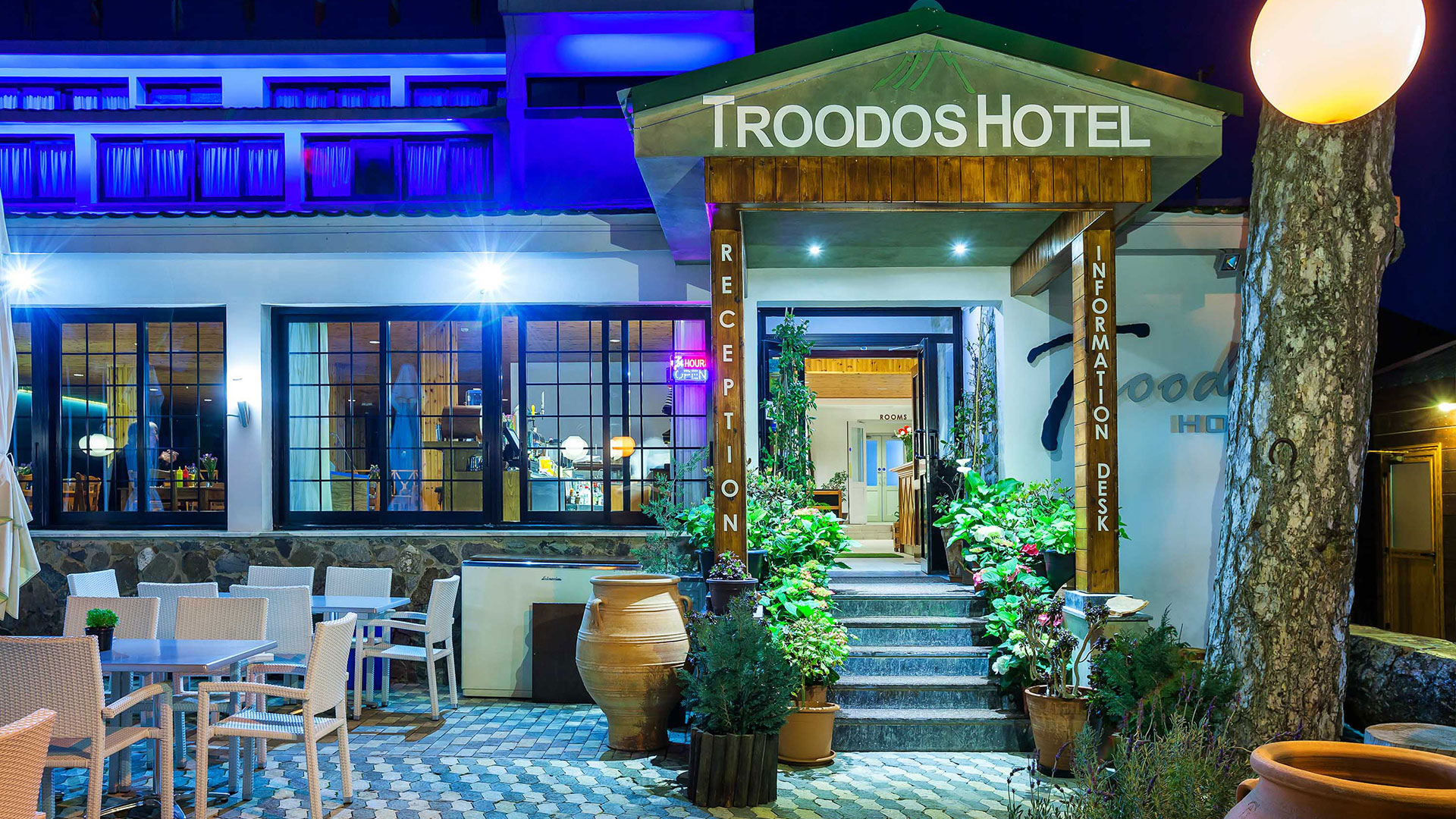
Welcome to our new digital facilities!
Take your time and browse our new website and be the first to know about the new facilities and services of Troodos hotel. VIEW MORE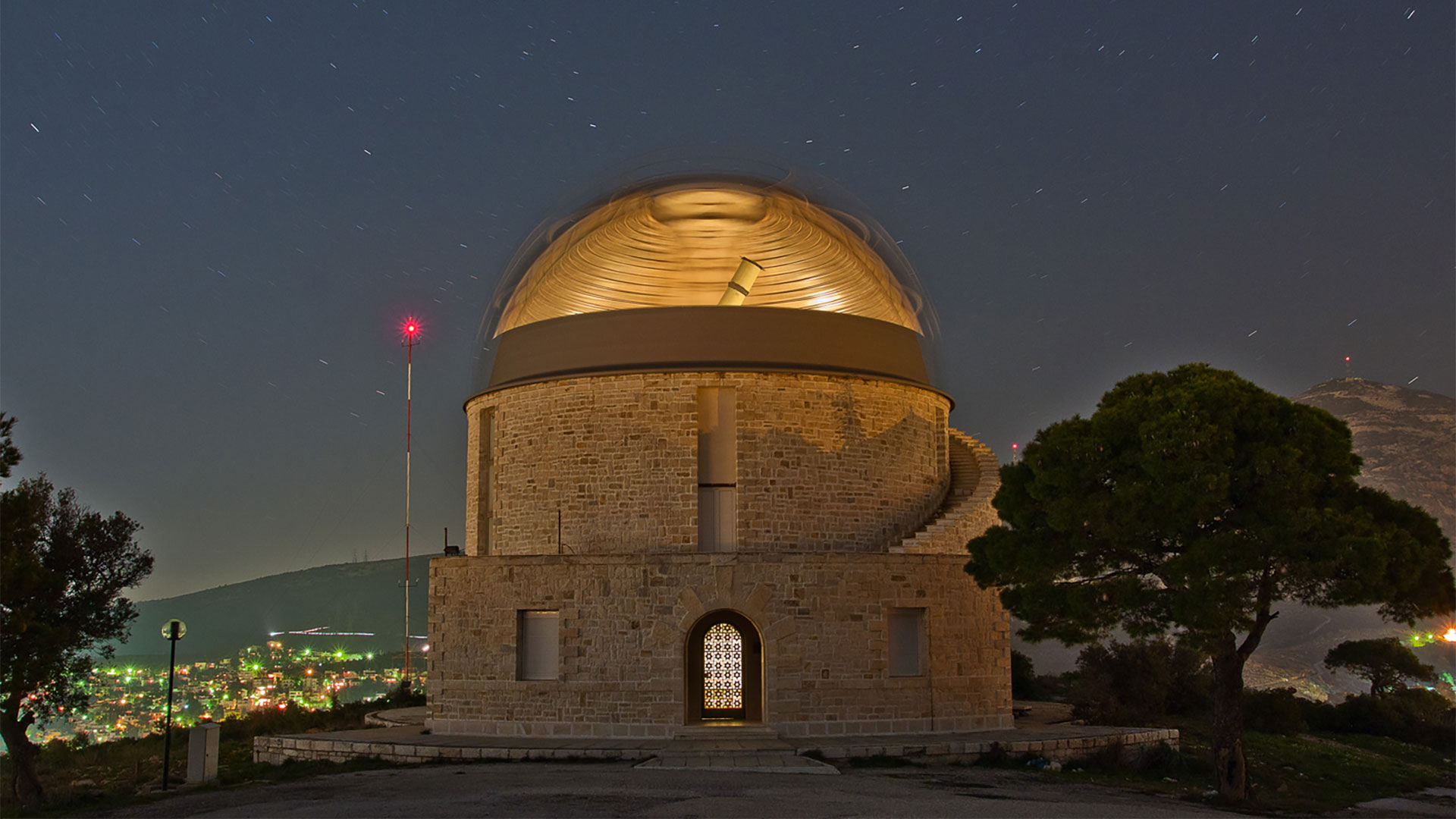
The construction of the Troodos observatory has started - An ornament for the Splash
The construction of the state-of-the-art Troodos observatory in Agridia began at the end of April, after seven years of preparations. "The time has come," said George Tzivas, Director of the Press Office of the Planetarium - Observatory of Cyprus VIEW MORE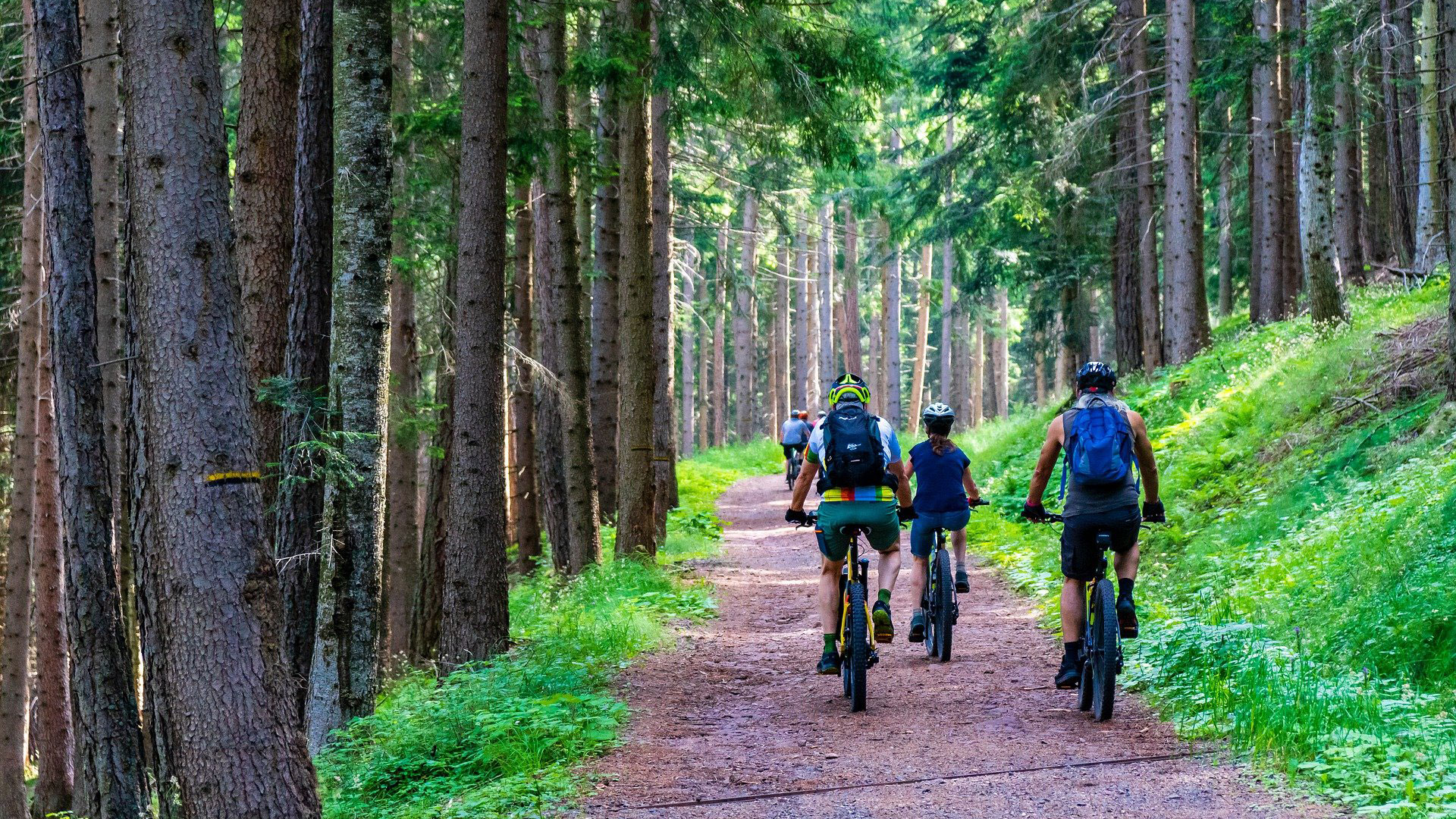
Bedrock Gravelfest Cyprus
We believe that Gravel is a Spirit, driven by adventure, the desire to explore and to discover, to exist out of your confort zone, to be bold, to immerse yourself in nature, to have a free plan, to ride free! VIEW MORE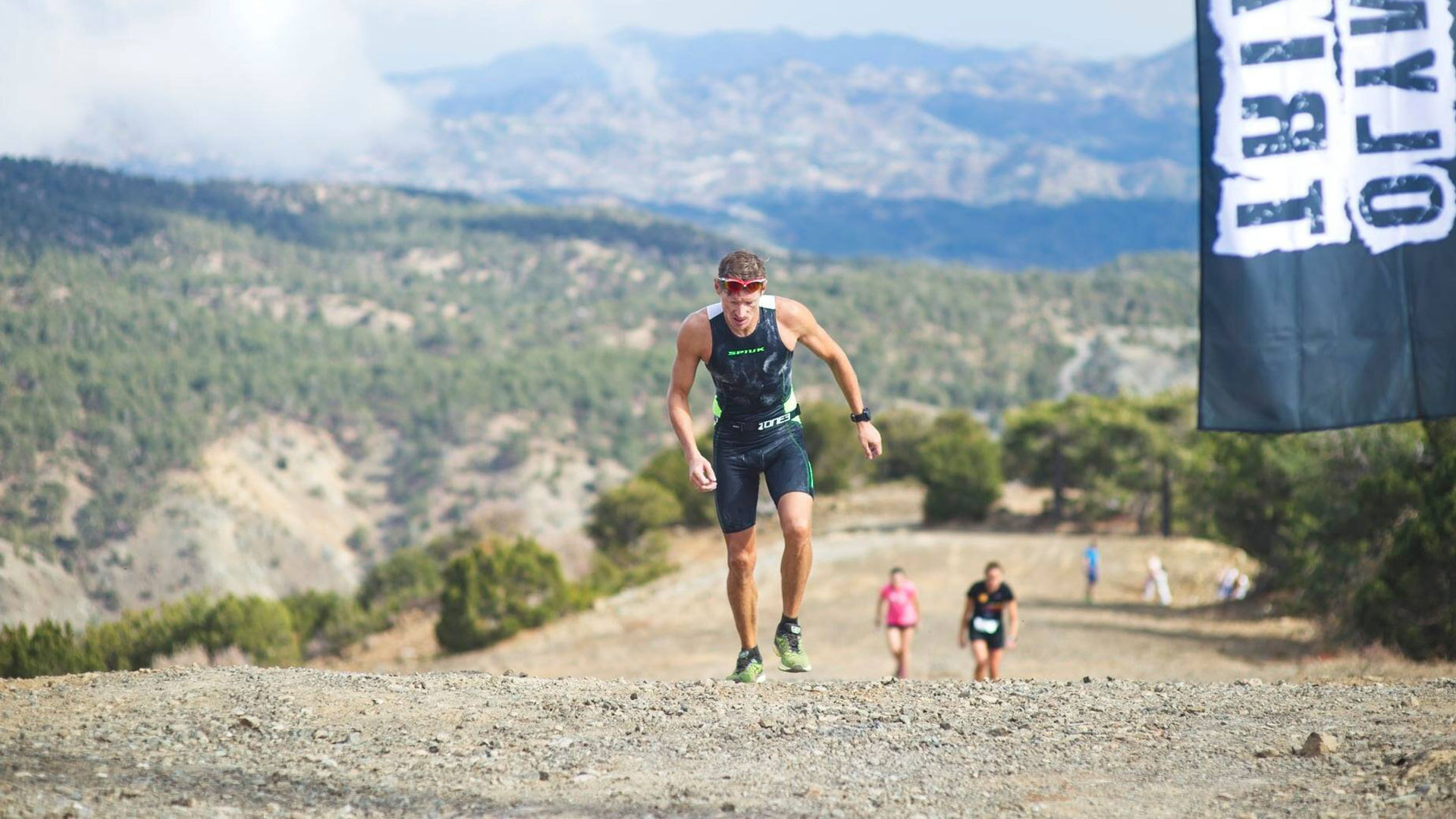
O3 Olympusman Triathlon. Do you have what it takes?
OlympusMan O3 is a one of its kind in Cyprus triathlon and one of those events every hardcore triathlete must have in his/her “bucket list”! VIEW MOREOUR REVIEWS

Troodos Hotel
Troodos Square 16
4800 Troodos
CY-Cyprus
Phone: +357 25420000
Fax: +357 25 420020
e-mail for reservations: [email protected]
e-mail for information: [email protected]
SUBSCRIBE TO OUR NEWSLETTER

Web booking Engine and Web Site development powered by Flexibook.
Do you like a similar website for your company? Click Here!
From
per day


Check-in
Check-out
Nights
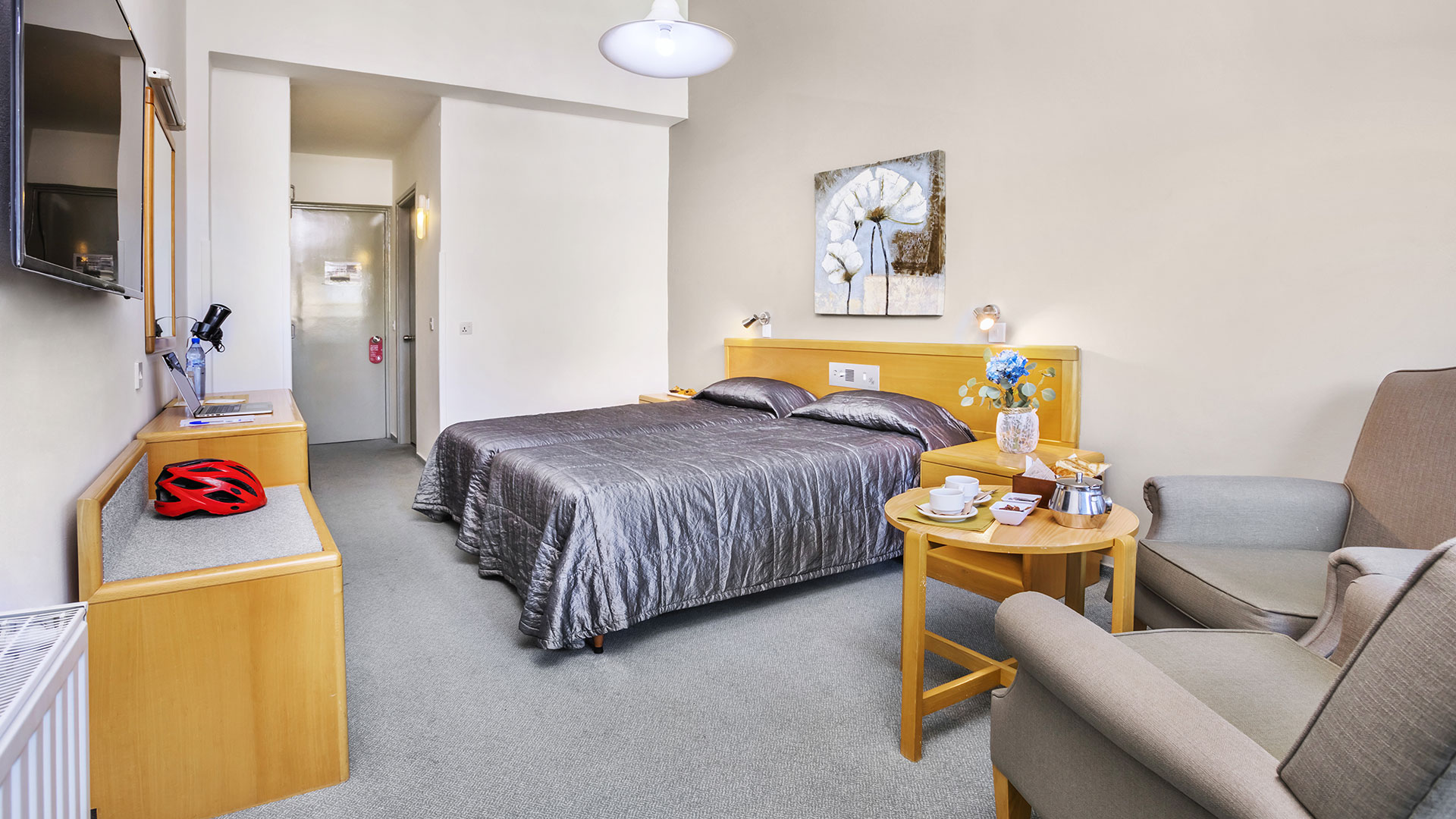
Select a room
New Eco Interior BB
New Eco Interior BB NR
New Eco Interior HB
New Eco Interior HB NR
New Standard BB
New Standard BB NR
New Standard HB
New Standard HB NR
New Standard Room with Balcony BB
New Standard Room with Balcony BB NR
New Standard Room with Balcony HB
New Standard Room with Balcony HB NR
New Superior BB
New Superior BB NR
New Superior HB
New Superior HB NR
New Superior Mountain View BB
New Superior Mountain View BB NR
New Superior Mountain View HB
New Superior Mountain View HB NR
New Executive Mountain View BB
New Executive Mountain View BB NR
New Executive Mountain View HB
New Executive Mountain View HB NR
New Family Basic BB
New Family Basic BB NR
New Family Basic HB
New Family Basic HB NR
New Family Moderate BB
New Family Moderate BB NR
New Family Moderate HB
New Family Moderate HB NR
Rent A Bike (2 Hours)
Safari Up to 8 Persons (4 Hours)
Troodos Walk & Talk & Indoor Psychotherapy per hour cost (for more info contact reception desk)
 Official Website Official Website |
|
|
|
€ 200 |
|
|
€ 200 |
|
|
€ 200 |
Reasons why book direct

Best Rate Guarantee

Upgrades and privileges

Save Money
Thank you I will definitely come again !!! - Agathaggelou





Source: 
Thanks to all the staff for their kindness. They were all willing and ready to serve you for anything. I had paid for a budget room with a balcony and was eventually given a room with a huge balcony overlooking the snowy mountains. Even though the hotel was full, our room was so noisy that you thought it was empty. The breakfast is excellent and rich !!! Amazing location. 10 ''
Very good hotel in a beautiful location - Michalis





Source: 
The hotel is very good in a beautiful location. The room was very clean with a great view, which of course depends on the type of room. The staff was friendly and helpful. Breakfast needs enrichment
The perfect location for relaxation - Marioschr





Source: 
The hotel is in a very good location. Staff polite, willing to serve. I highly recommend it to anyone who wants to relax and enjoy a hot chocolate while watching the endless green of Troodos. Thank you very much, we will visit you again soon. :)
Worthy! - Penny M





Source: 
Very good hotel in a beautiful place! The staff very polite and the room clean and with a wonderful view from the covered terrace. The location of the hotel is very convenient, on the main square of Troodos. Everything is perfect!
Pleasant stay - Nikolas M.





Source: 
PERFECT hotel !!! Friendly staff always willing to serve customers. Child friendly. Excellent view and location mainly in winter but also in summer. Delicious food !!
We will definitely prefer it again !!
Excellent!!!!! Georgia V.





Source: 
Everything was perfect. Fantastic location, service, cleanliness, lovely breakfast, clean room and comfortable bed, great staff. Very good food all hours at very reasonable prices and great bar with very good service. We will definitely visit you again !!!!!! Well done guys !!!
Powered by

